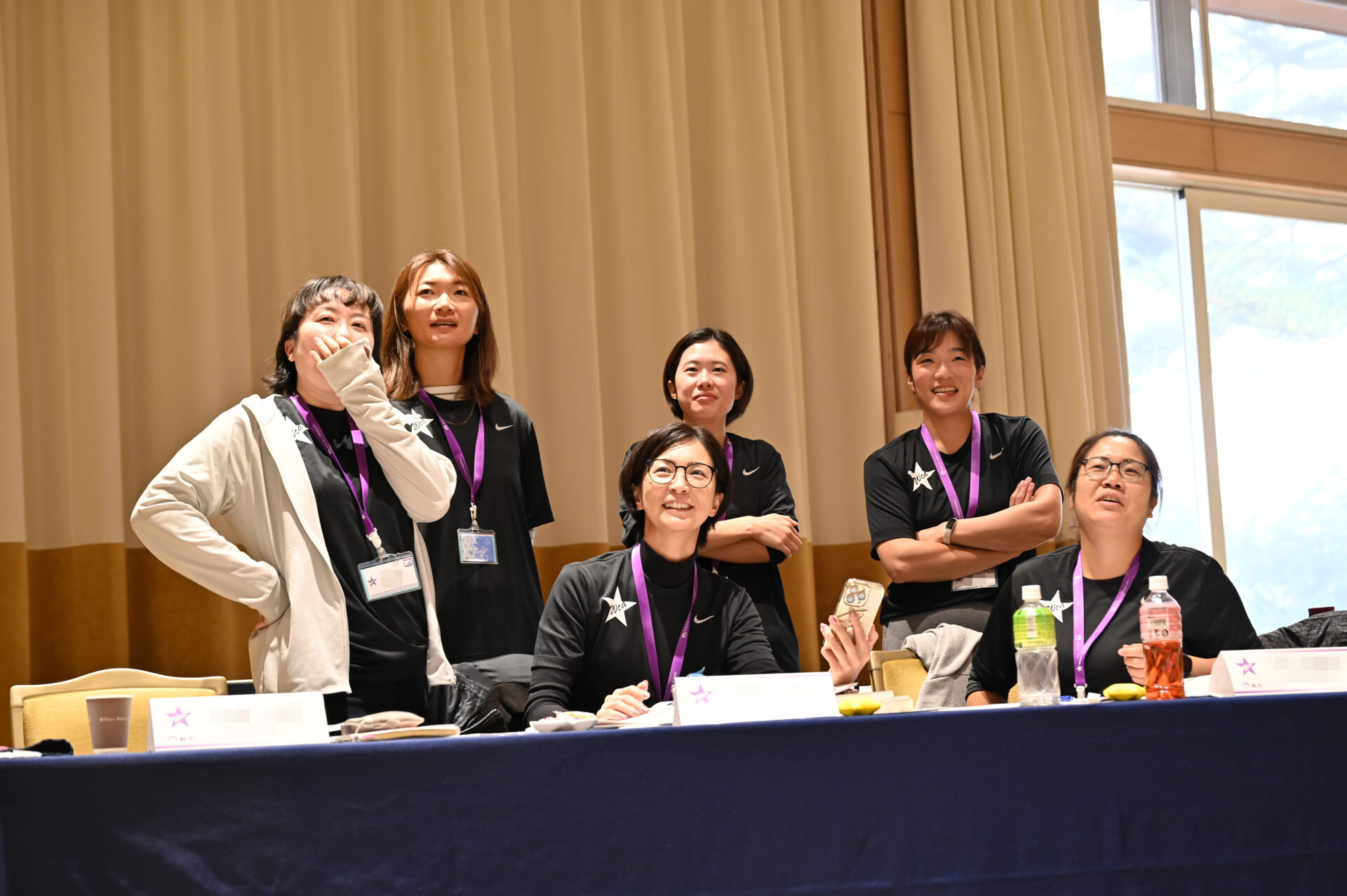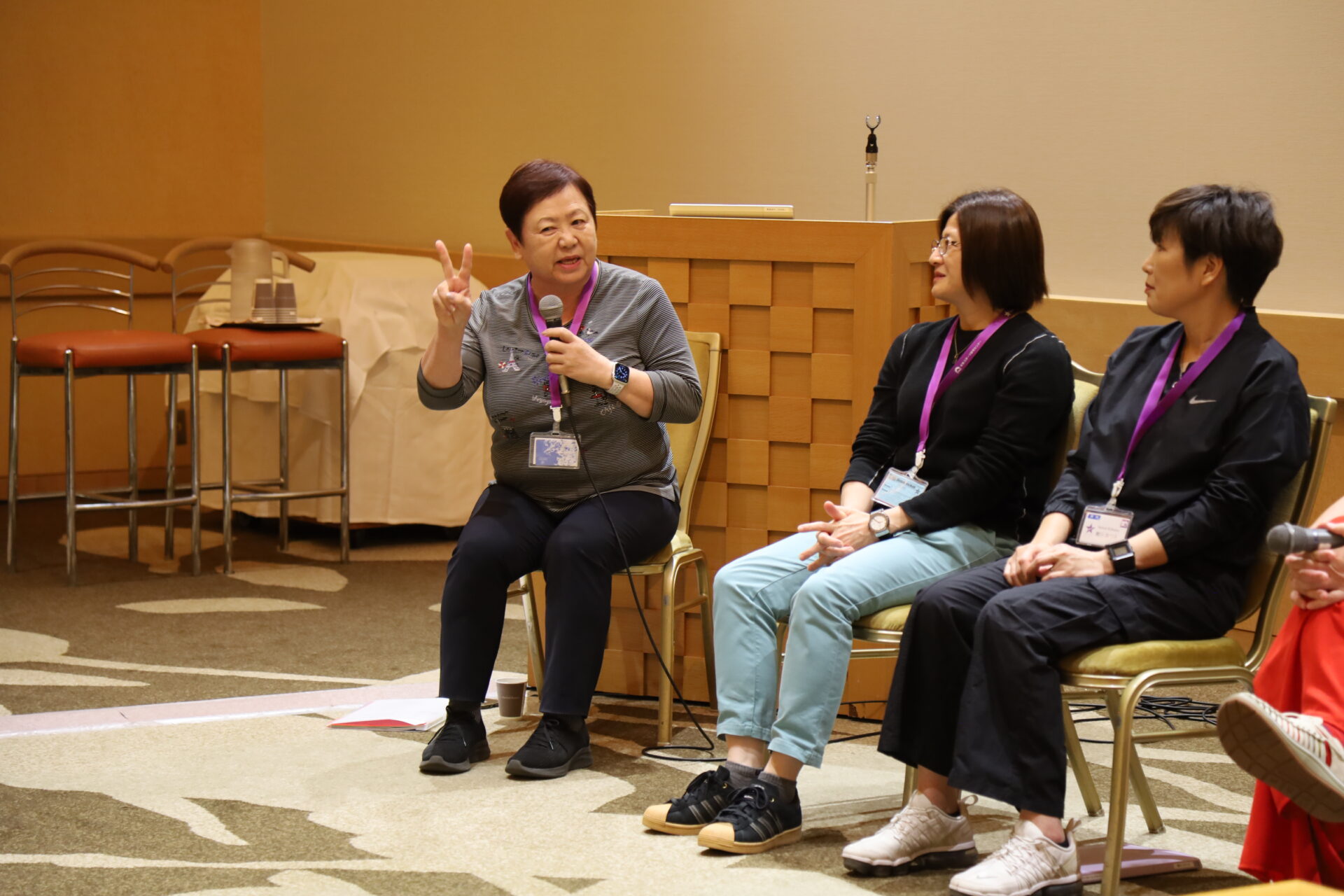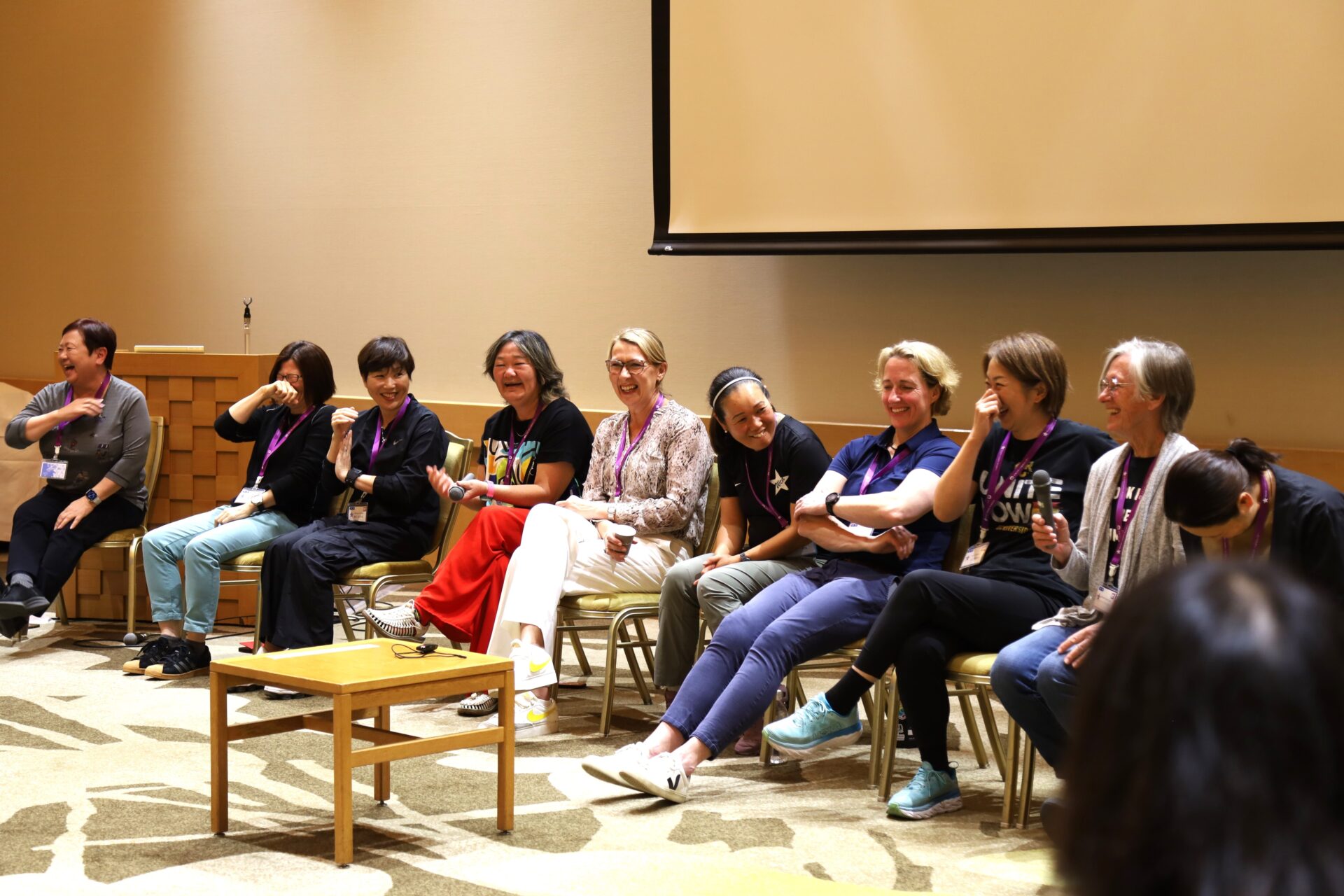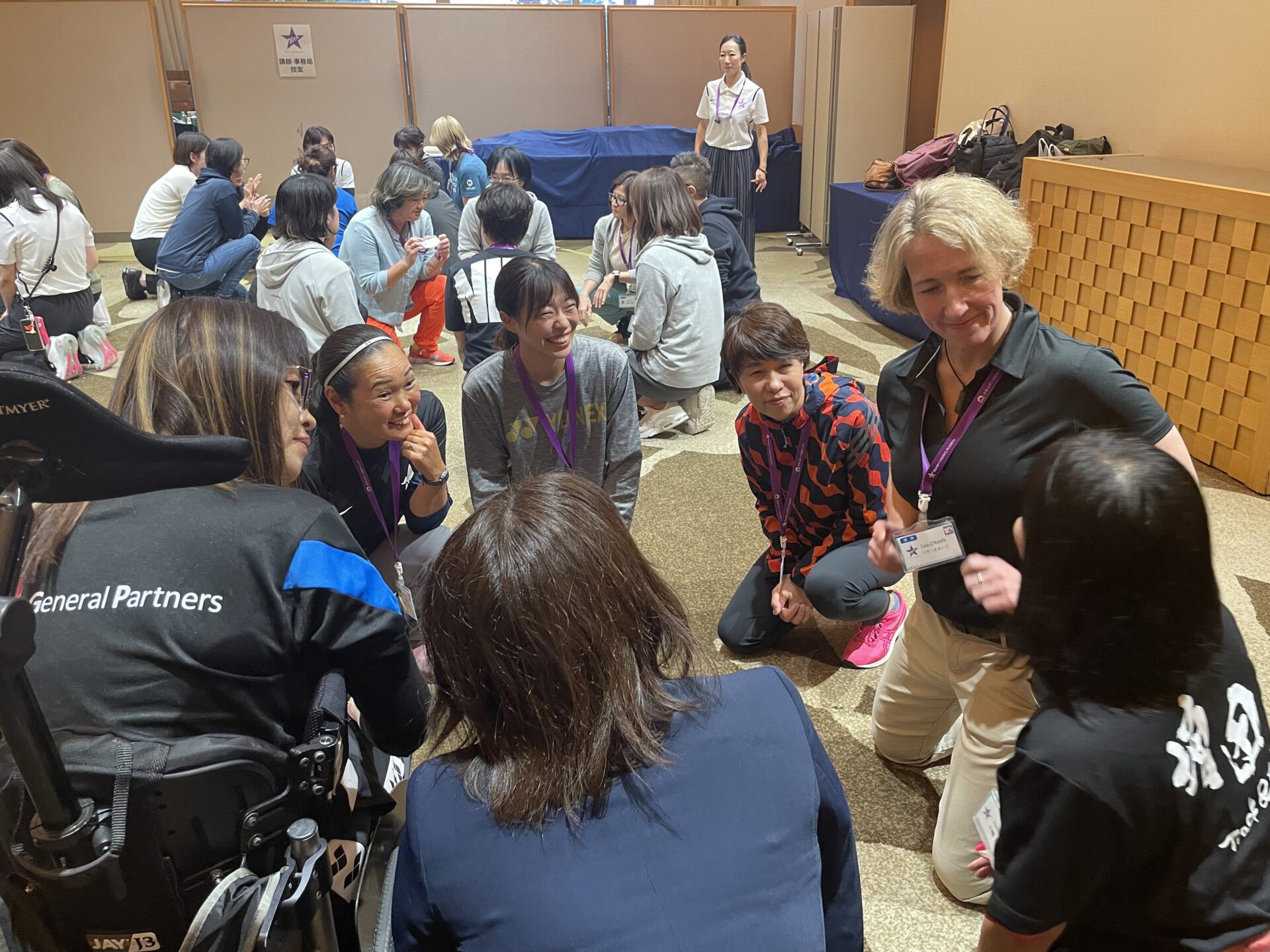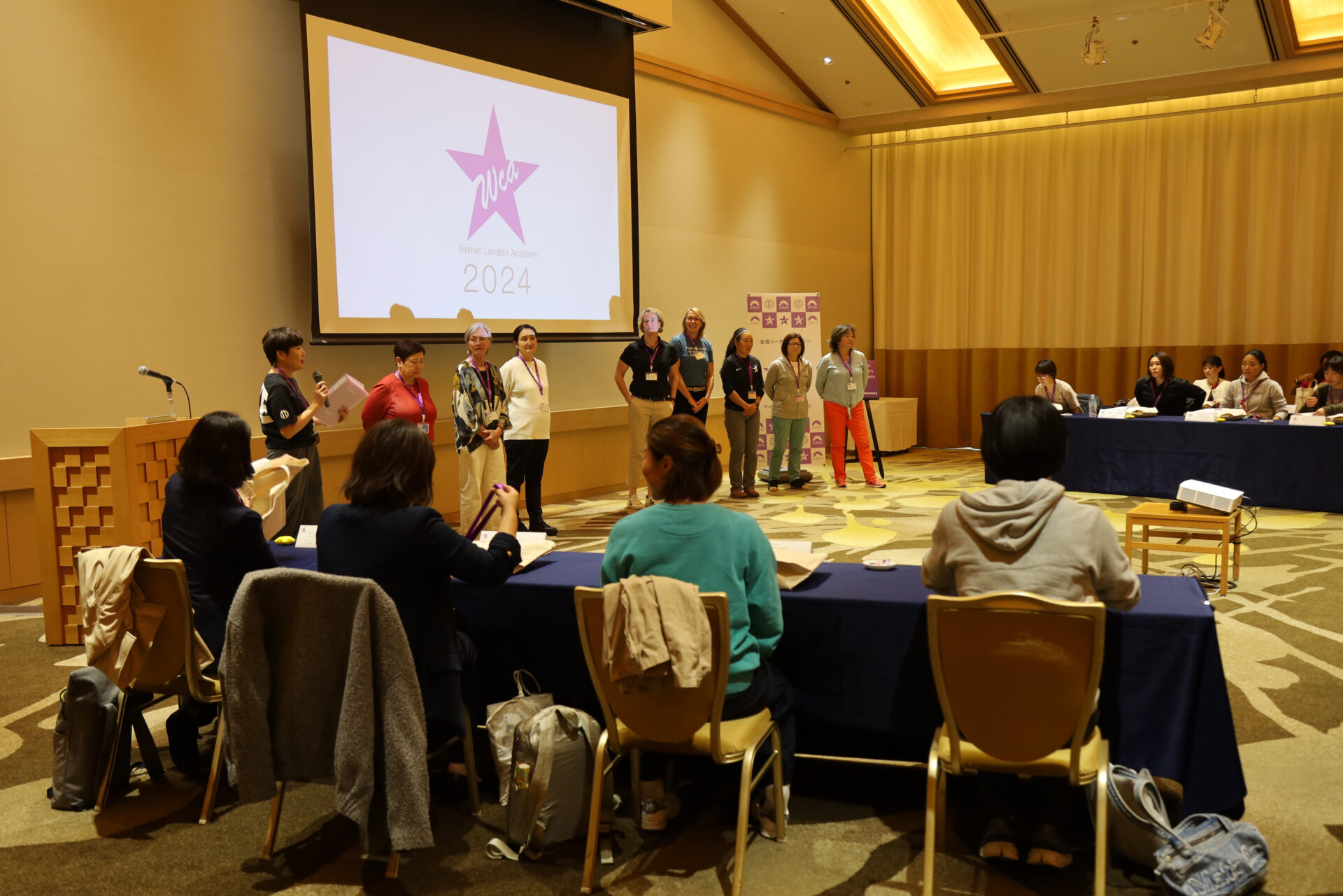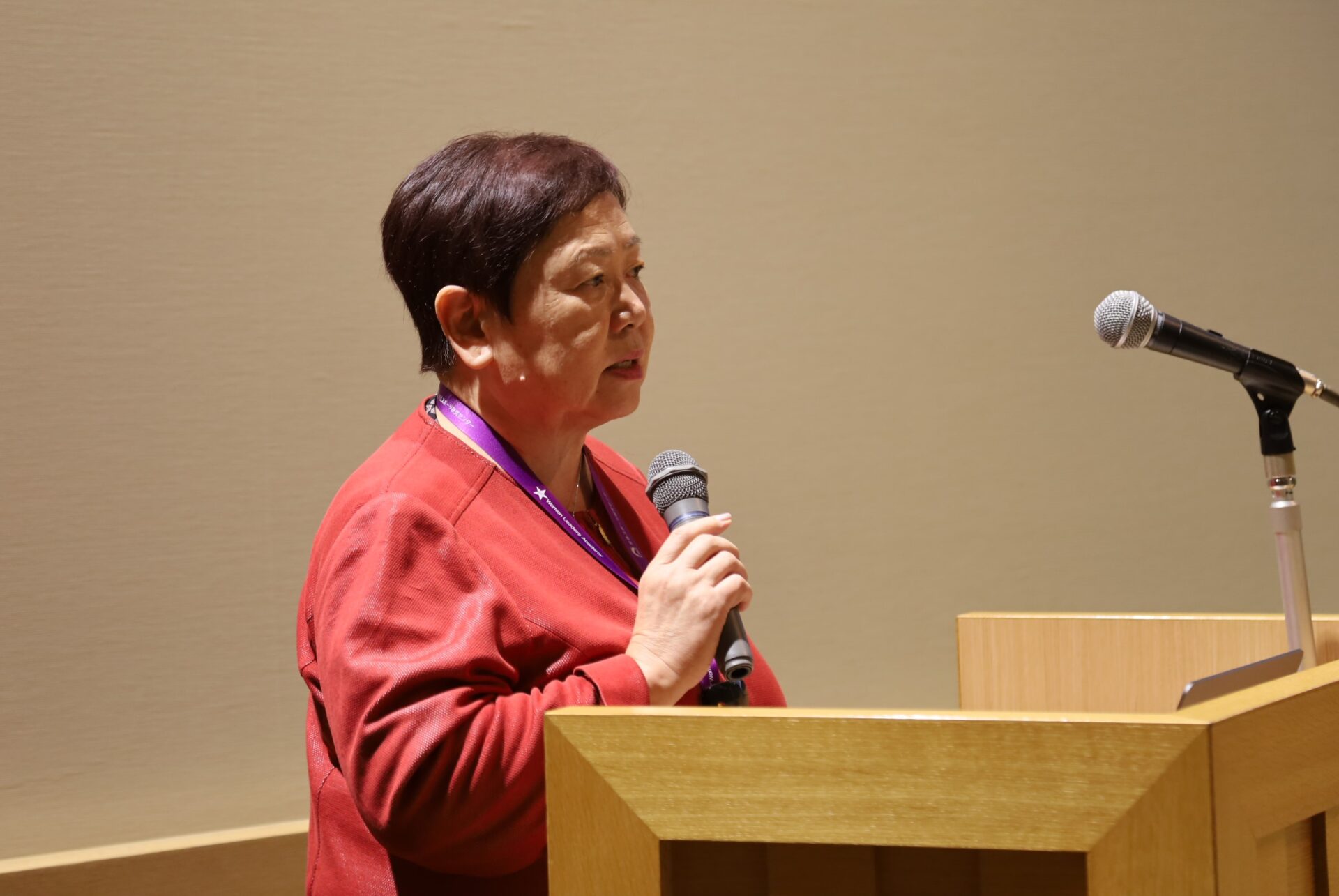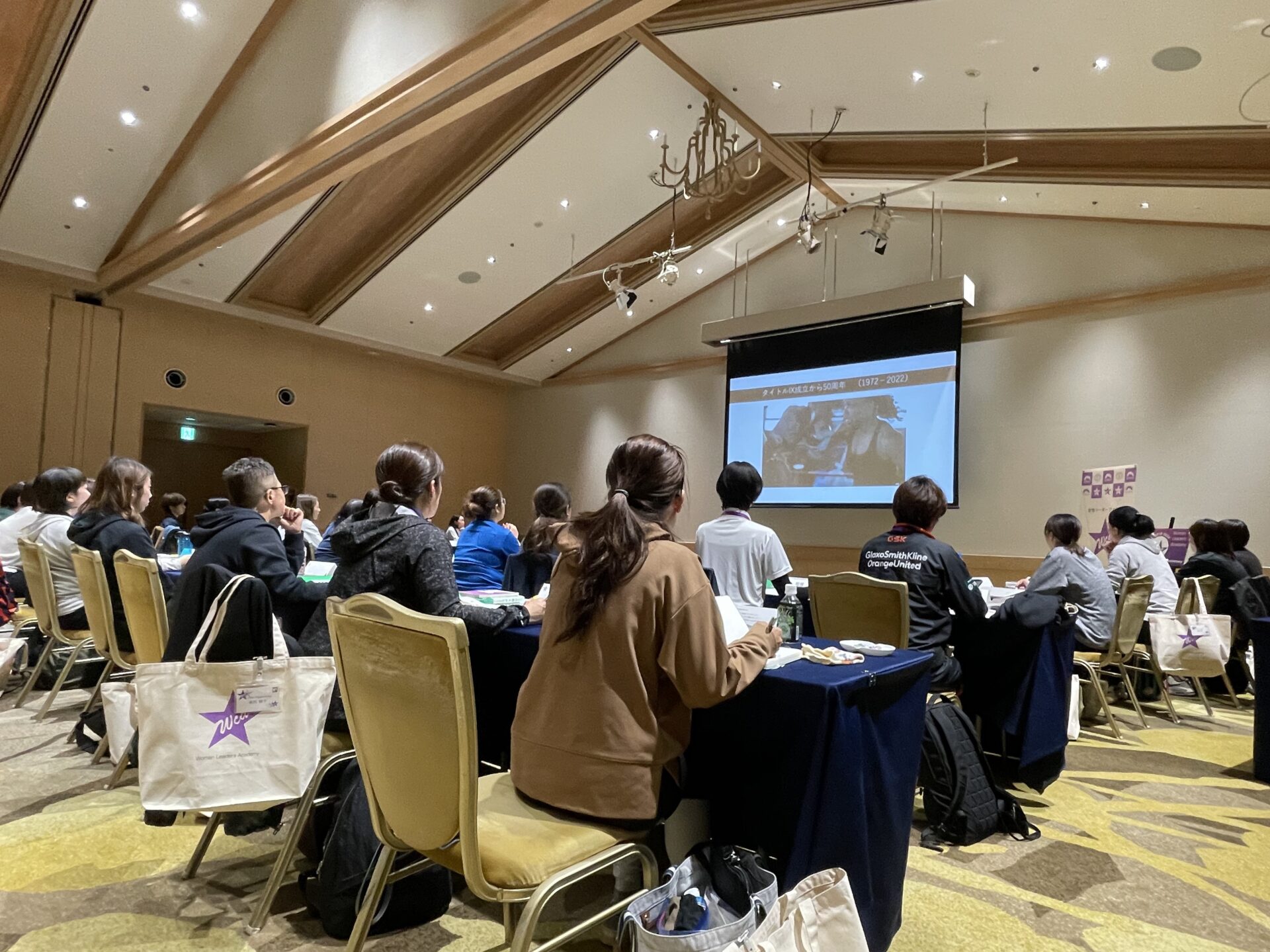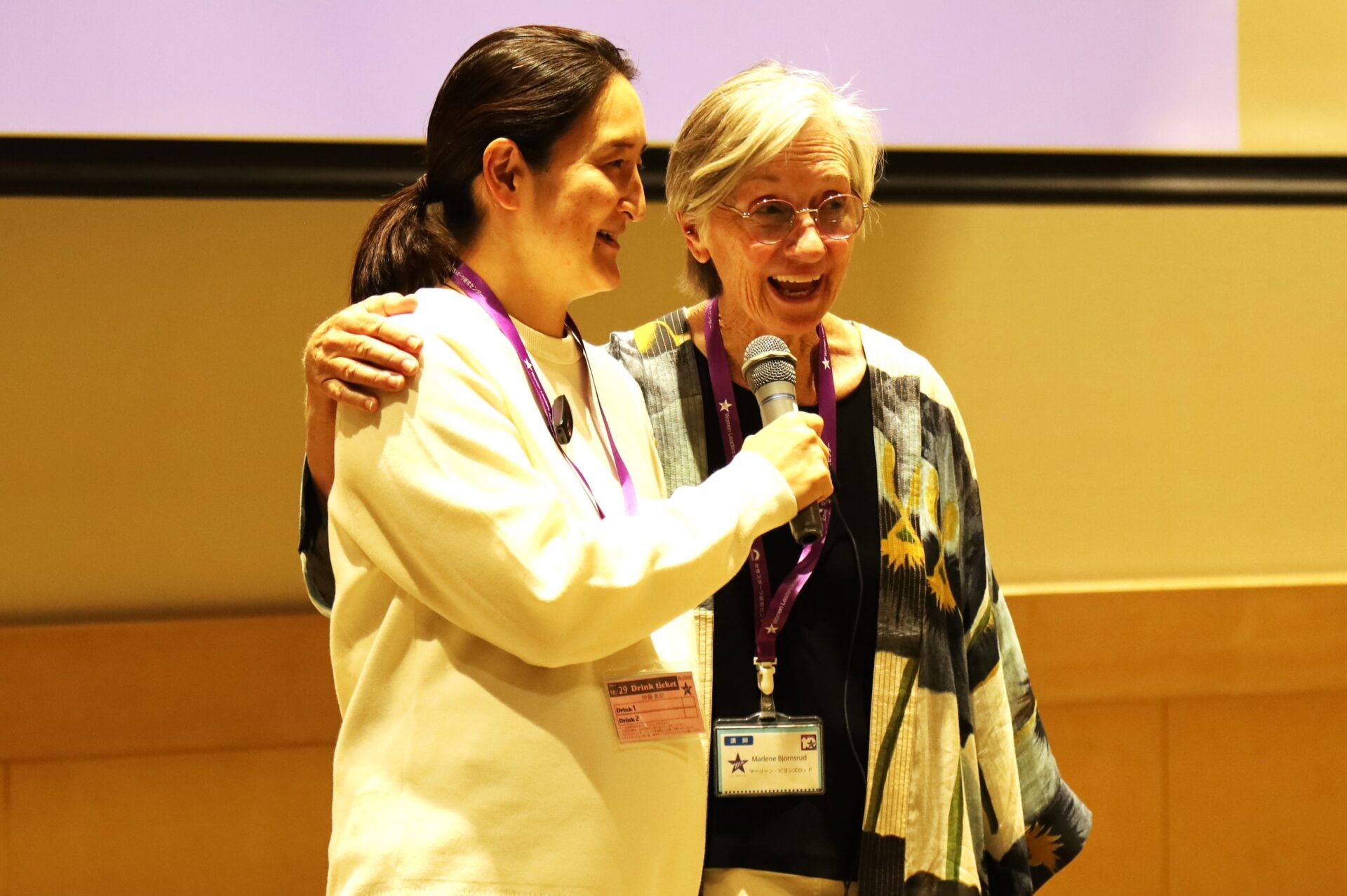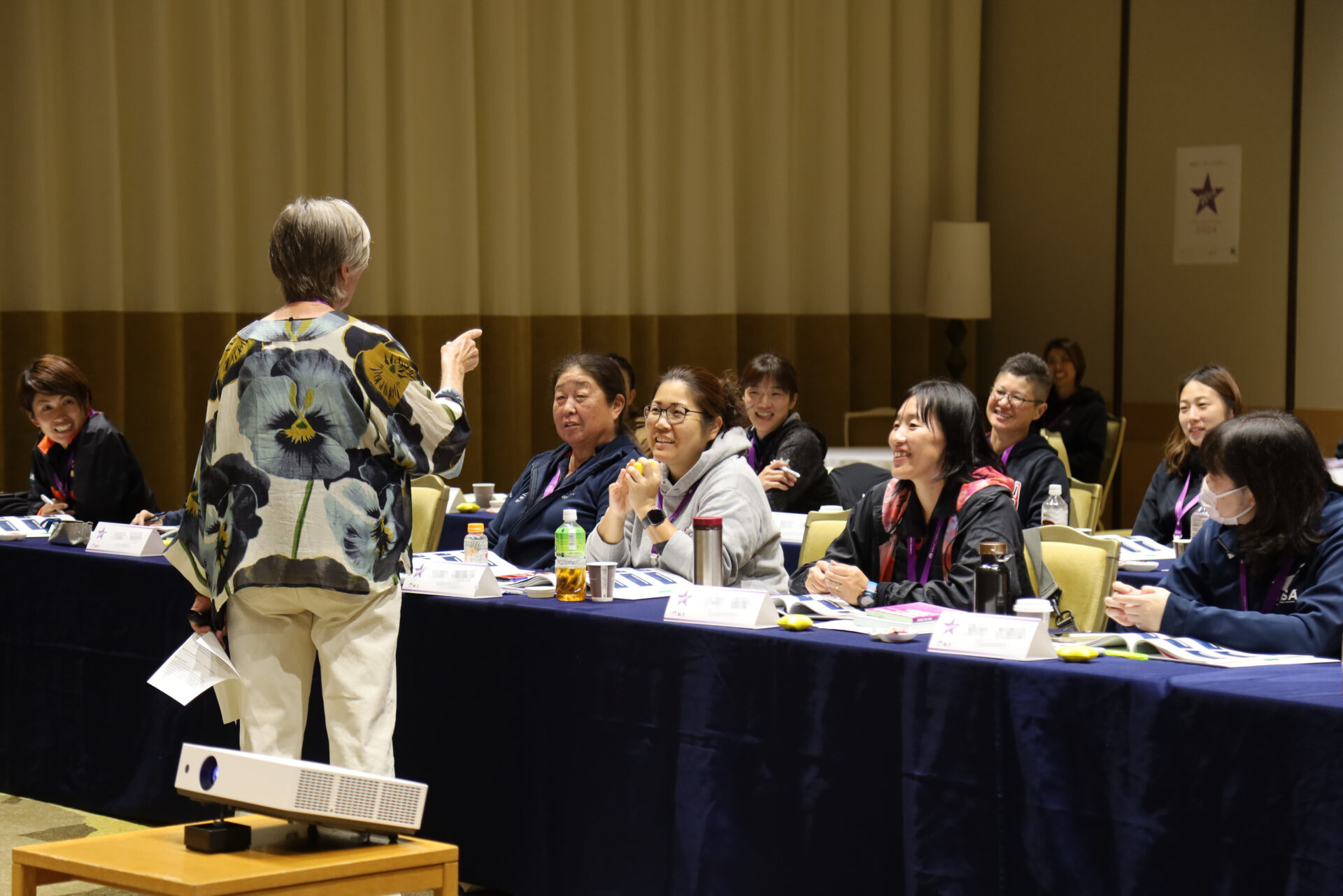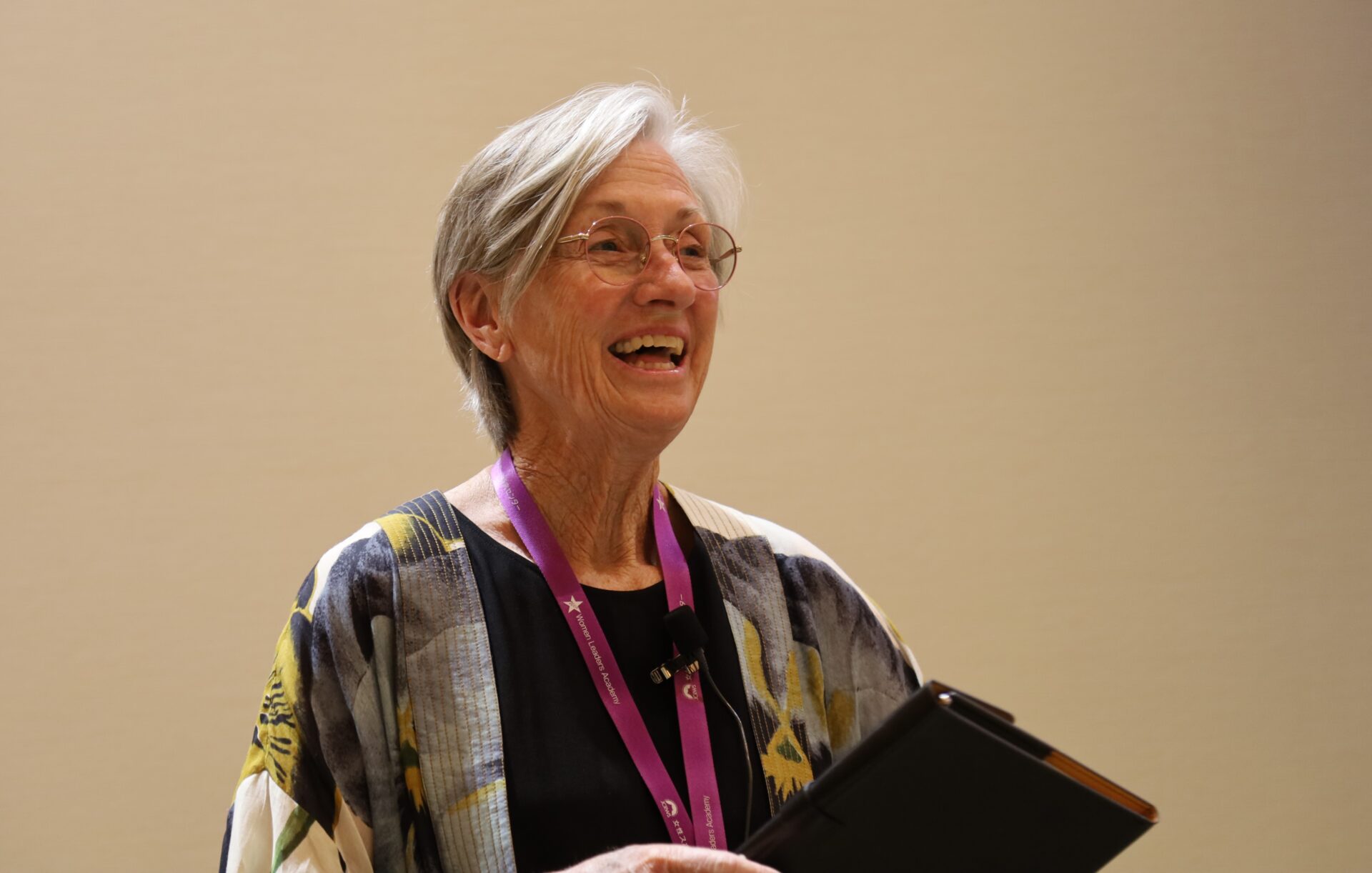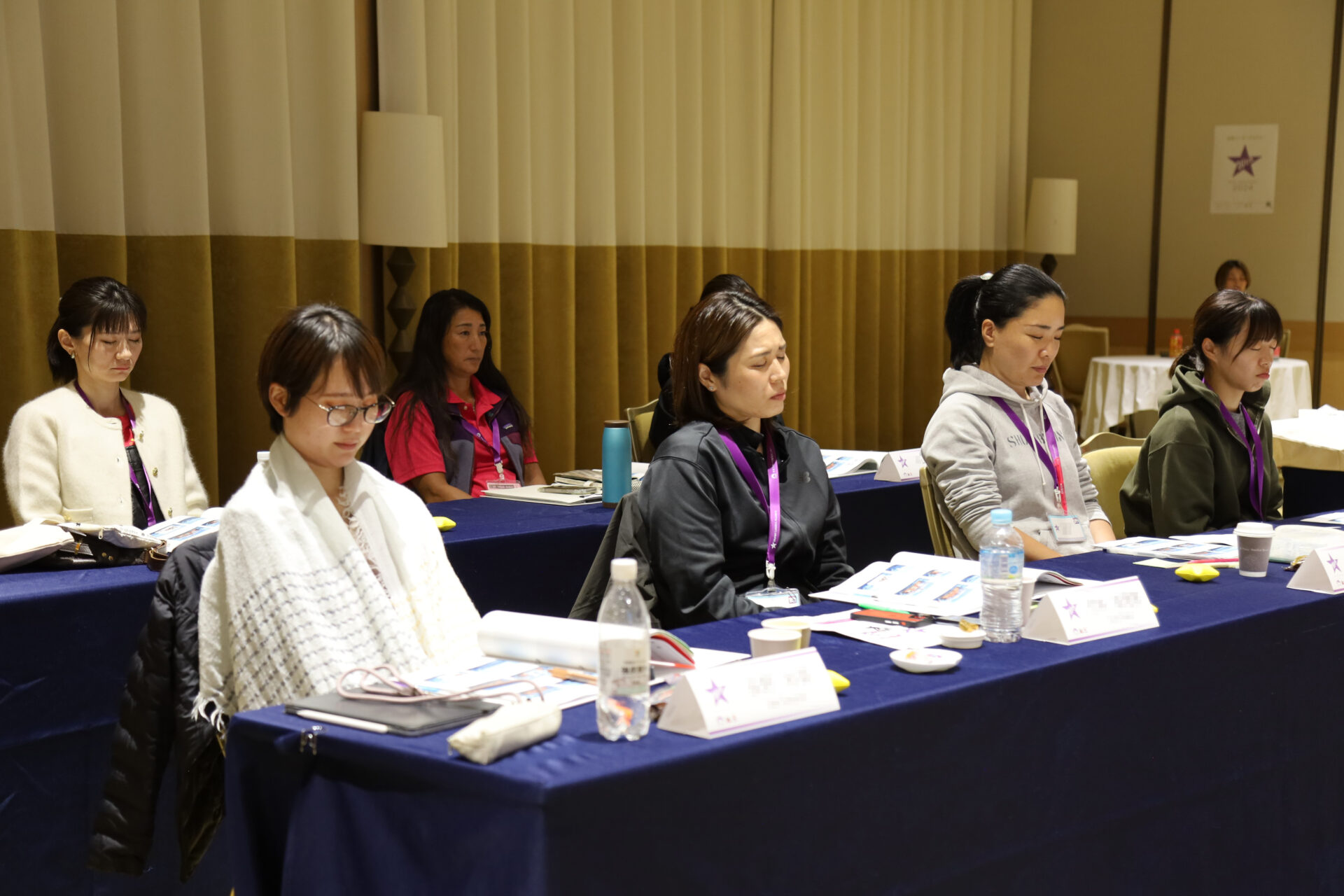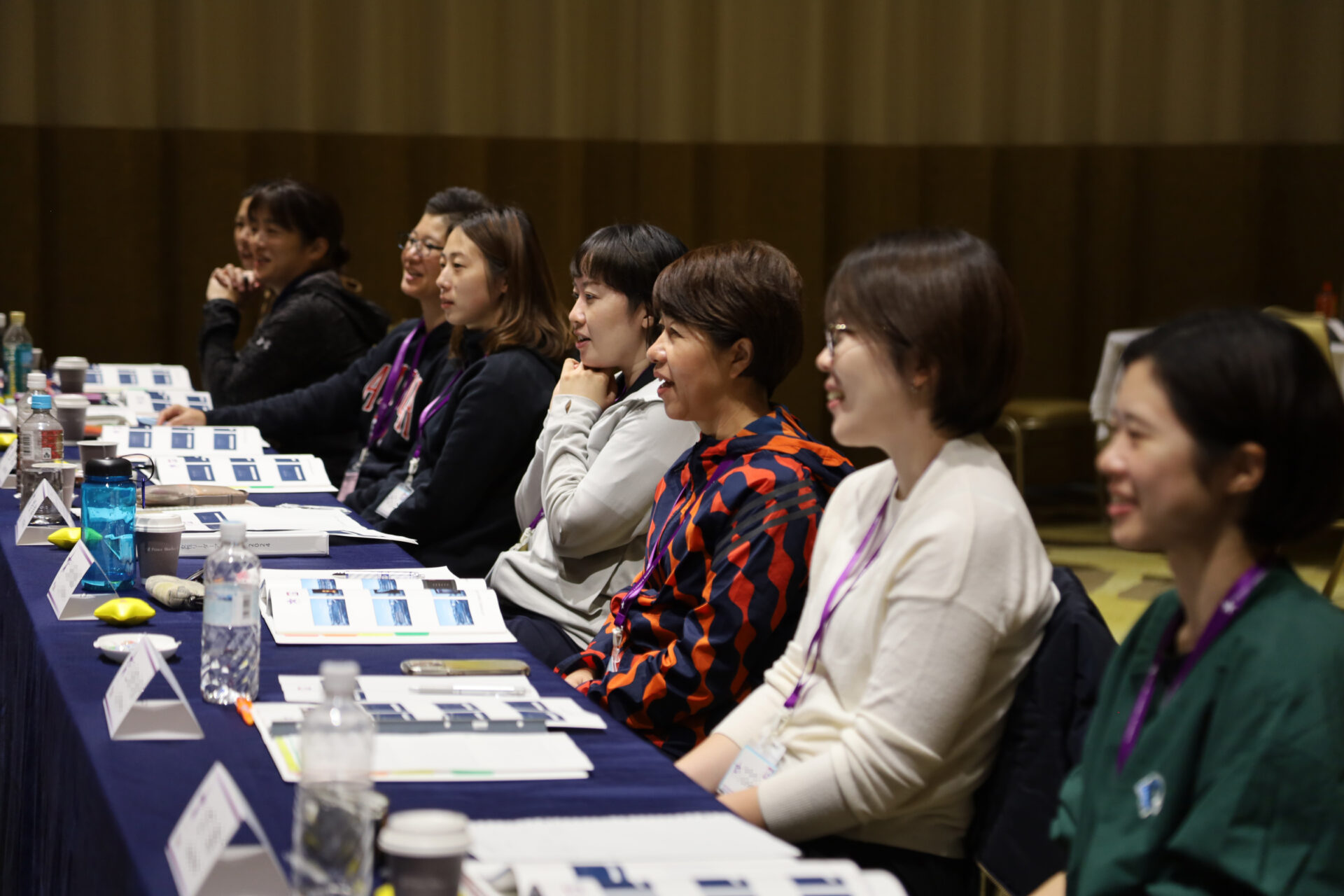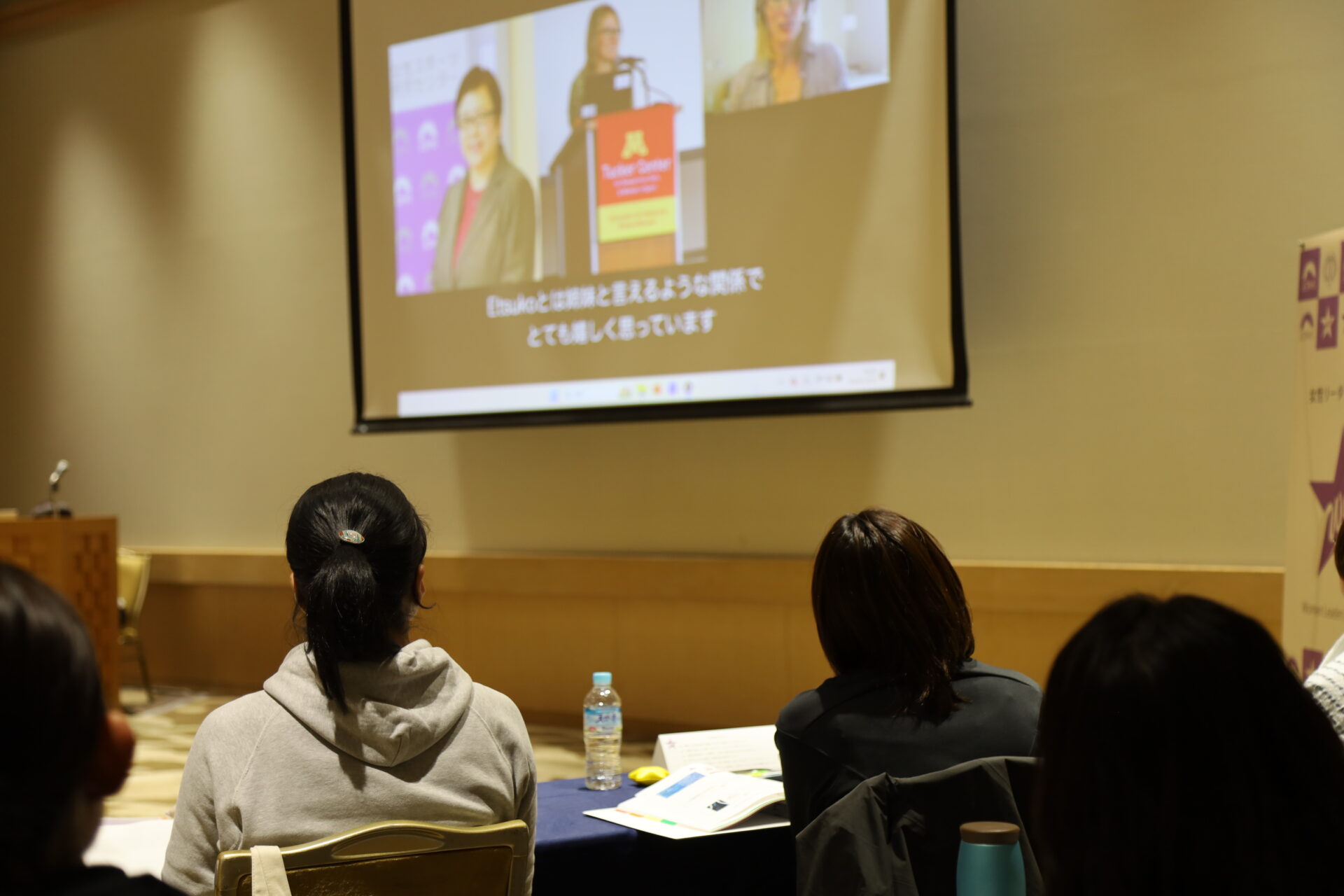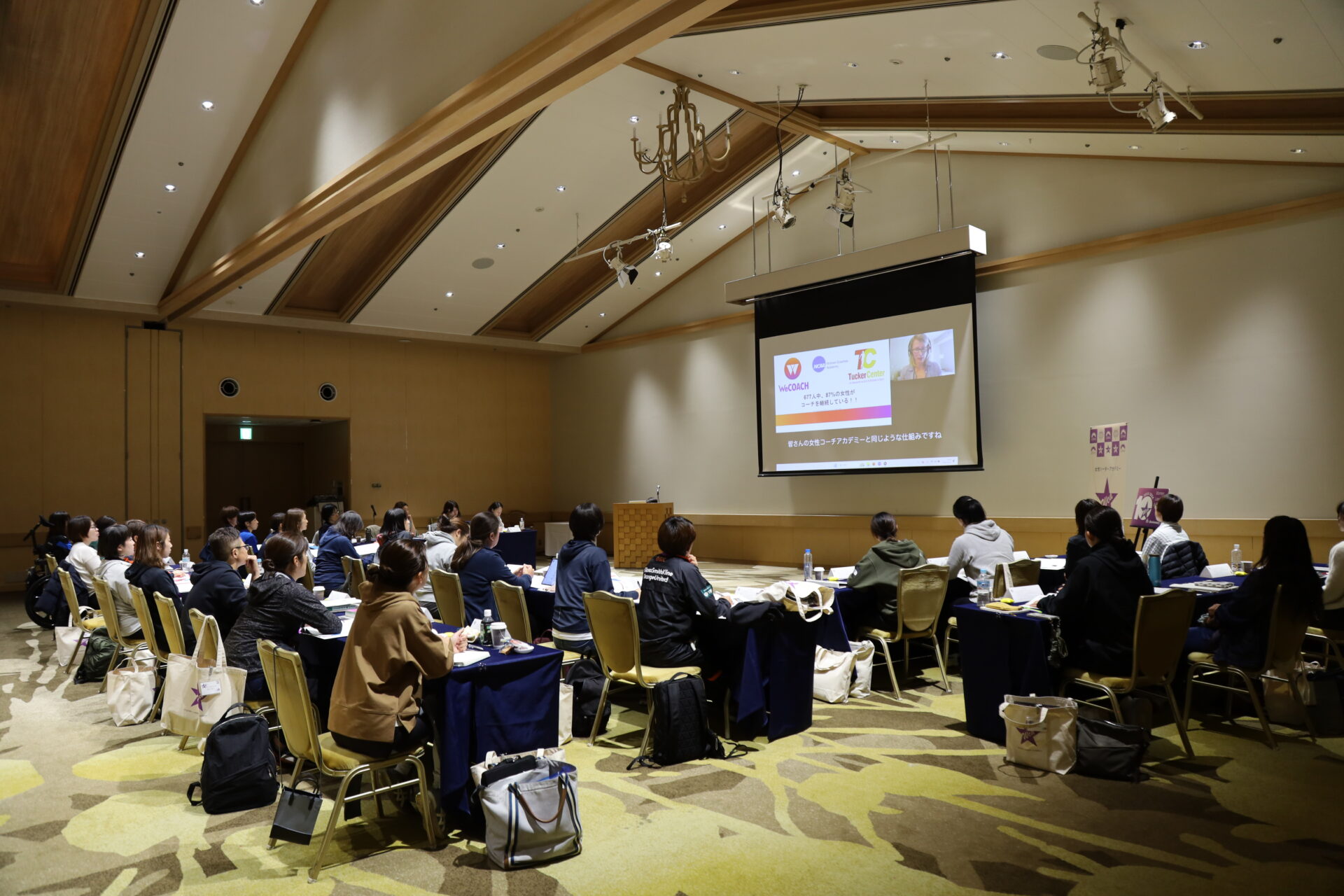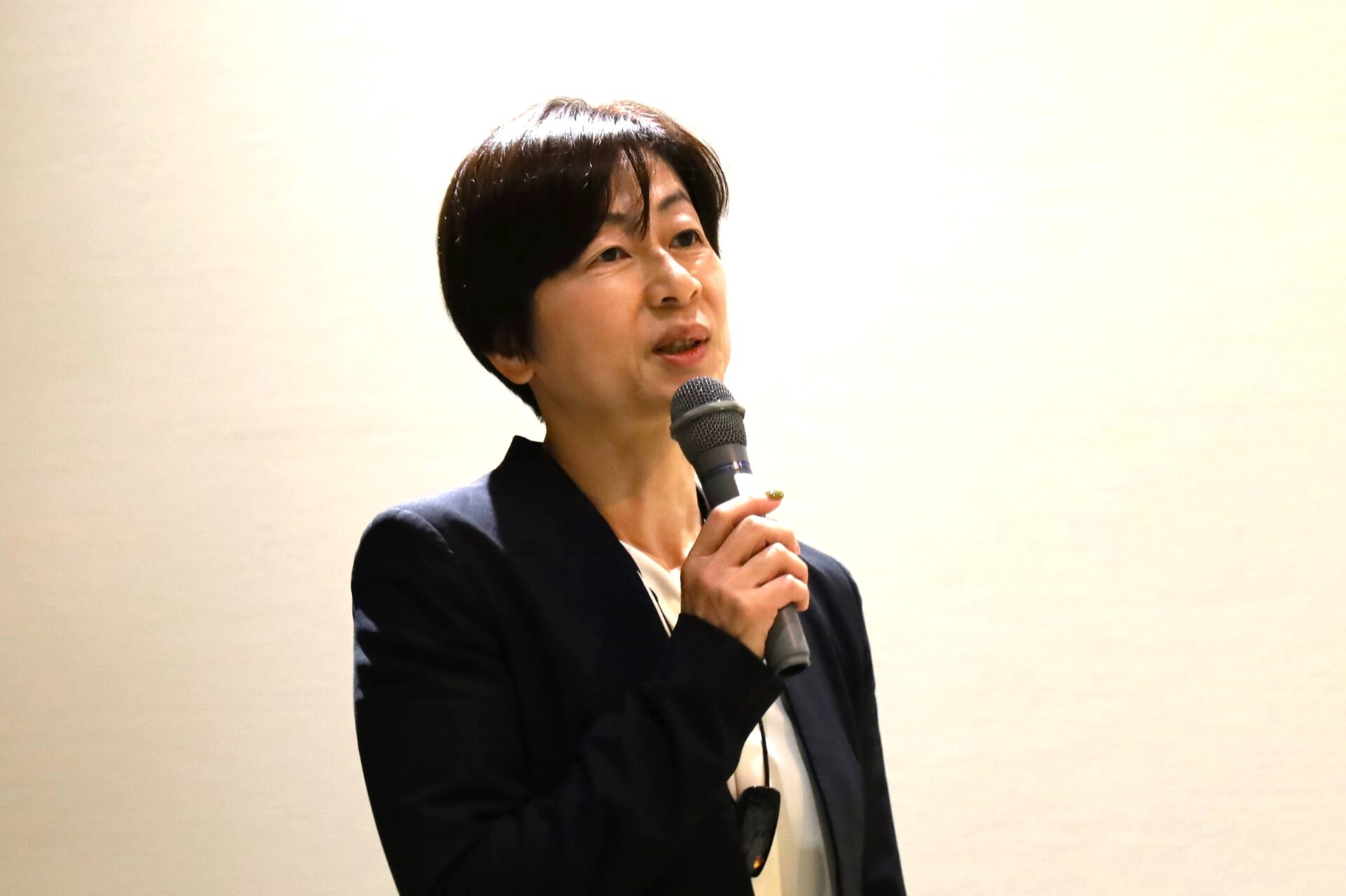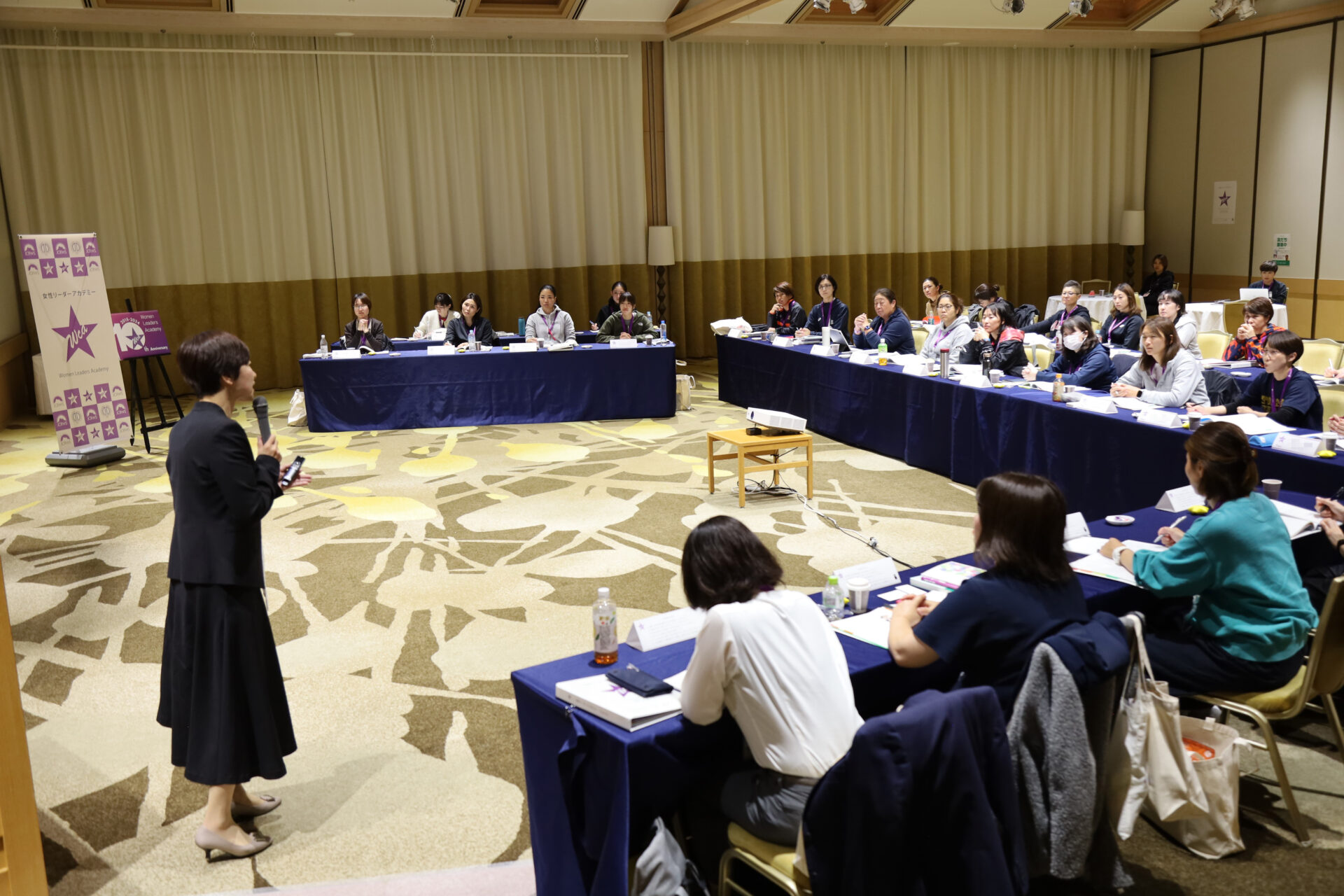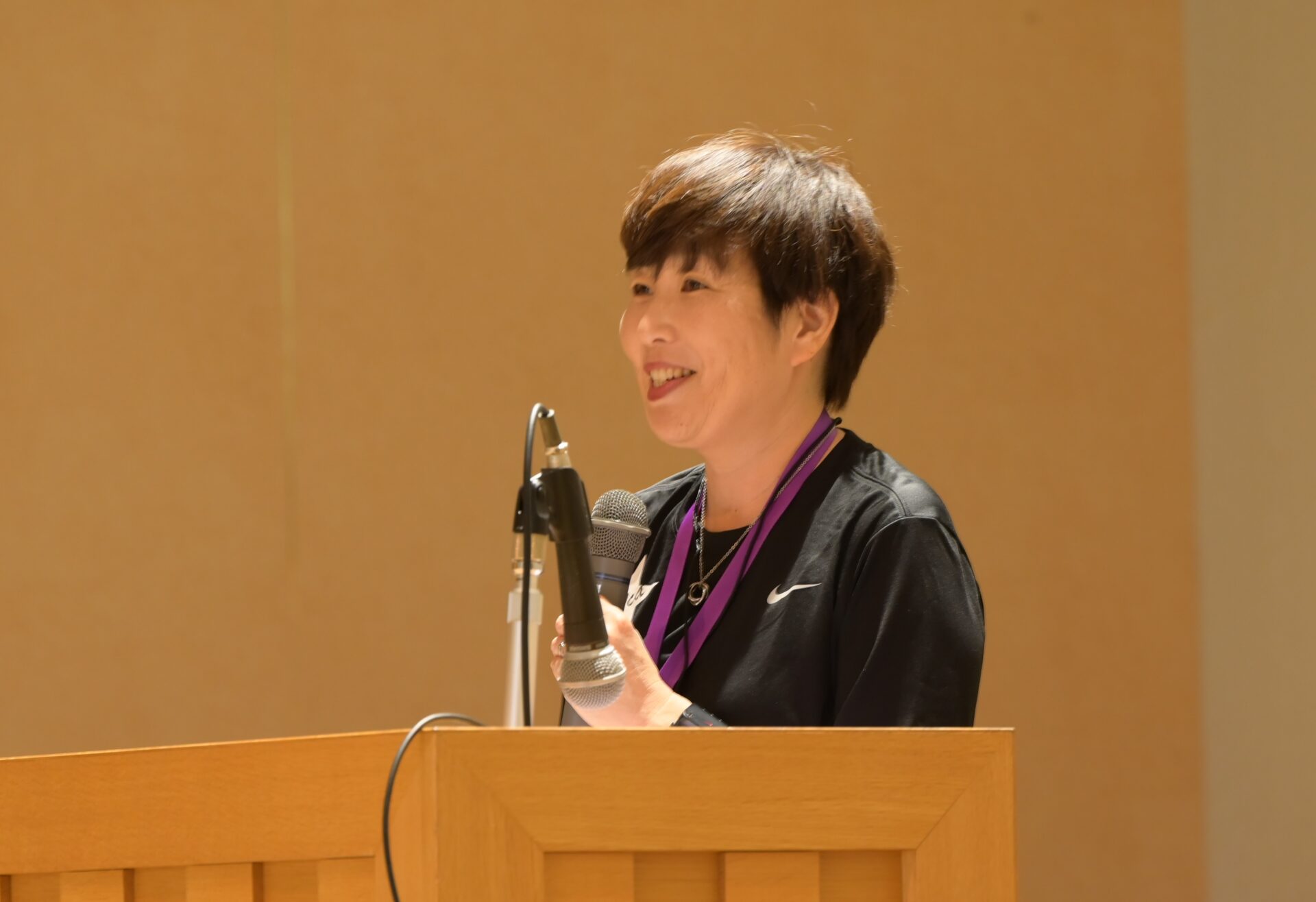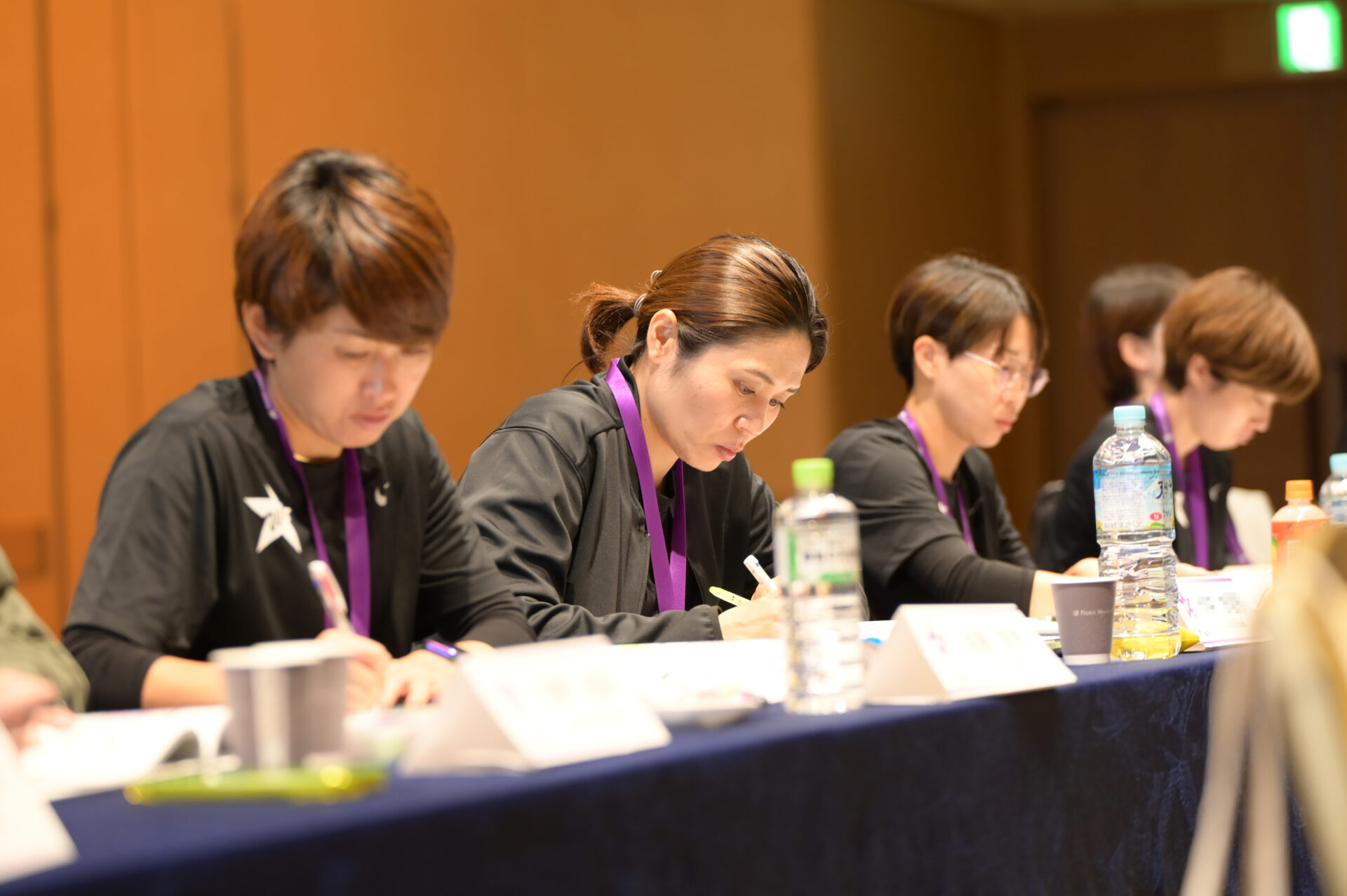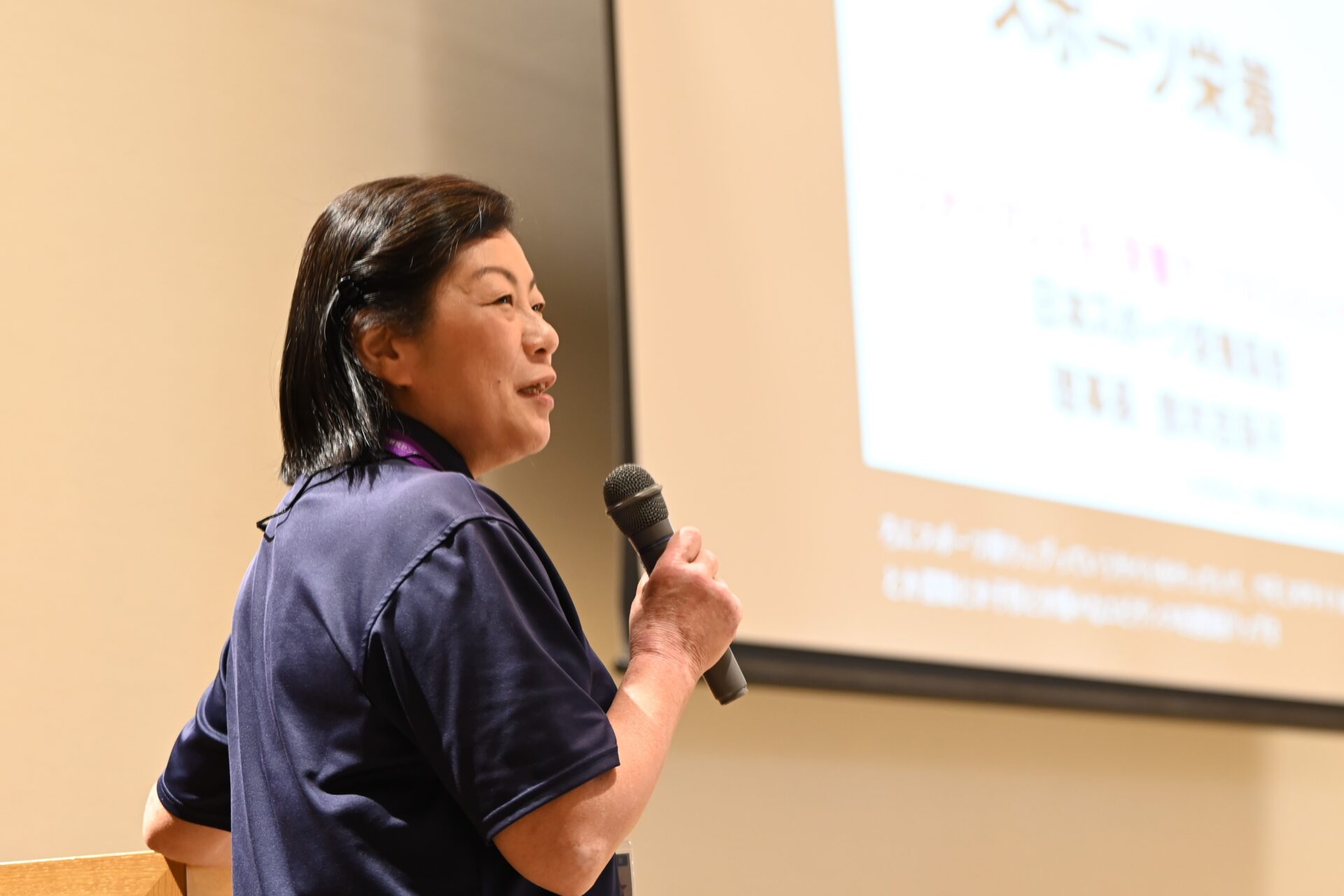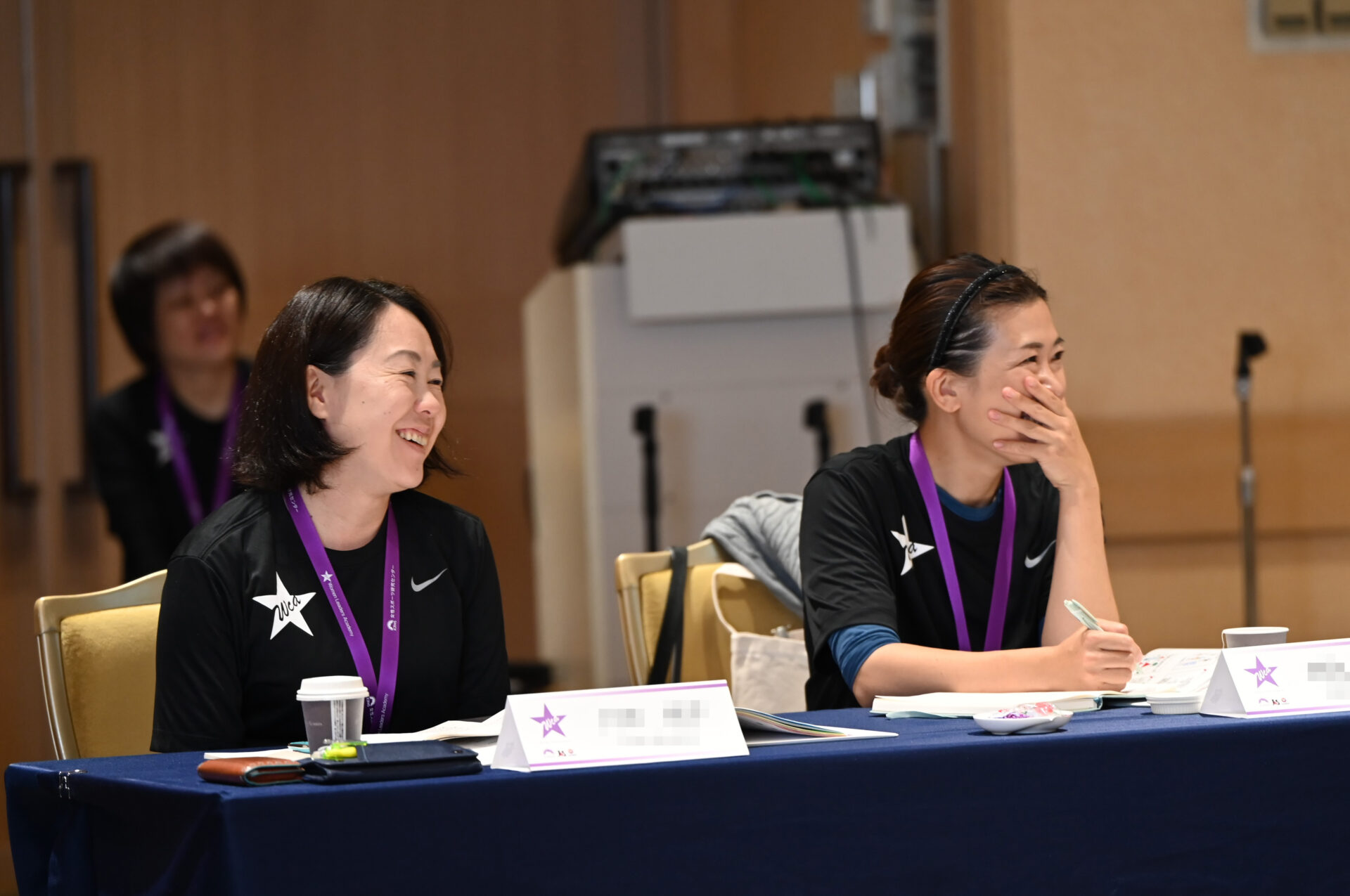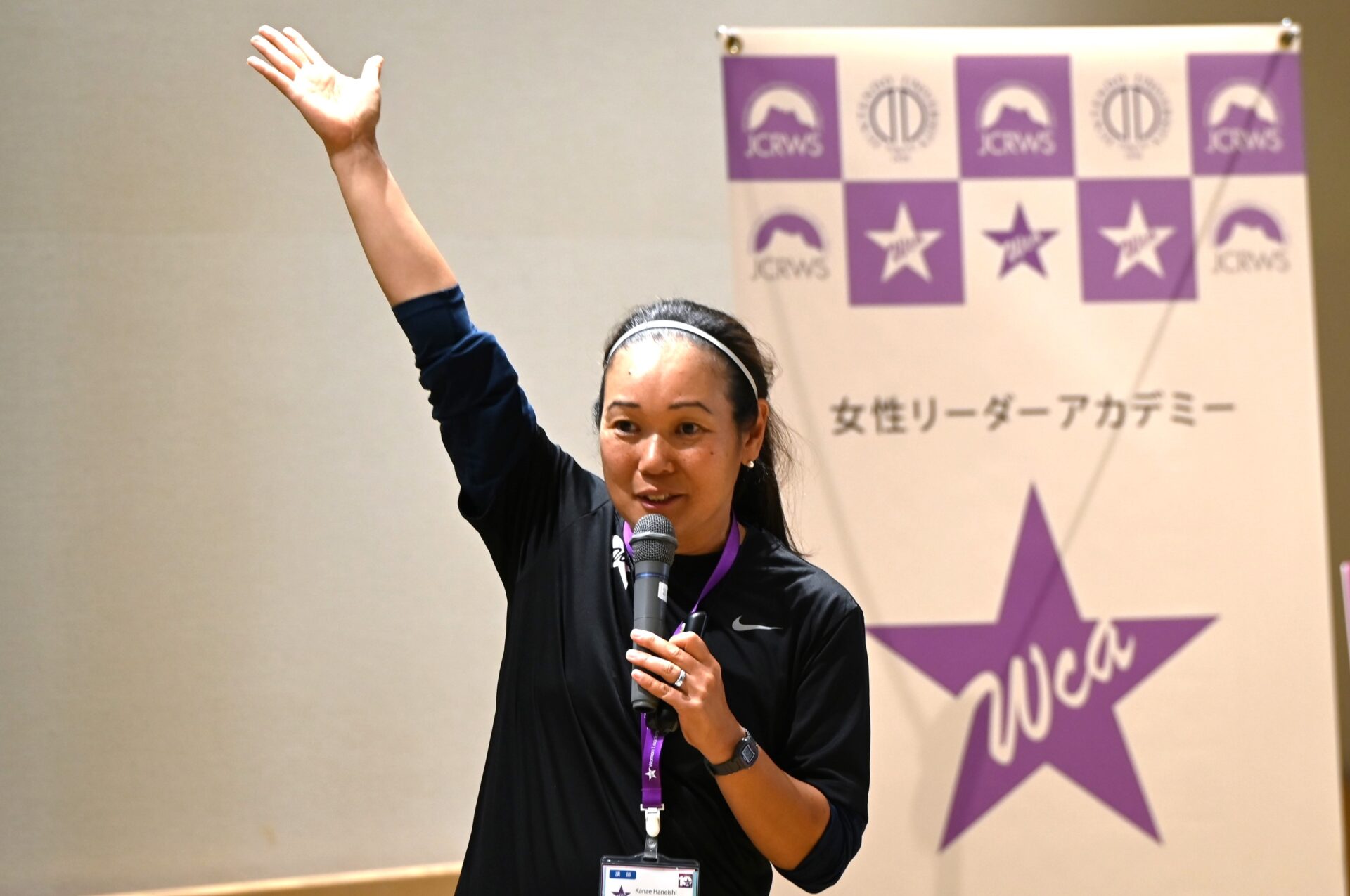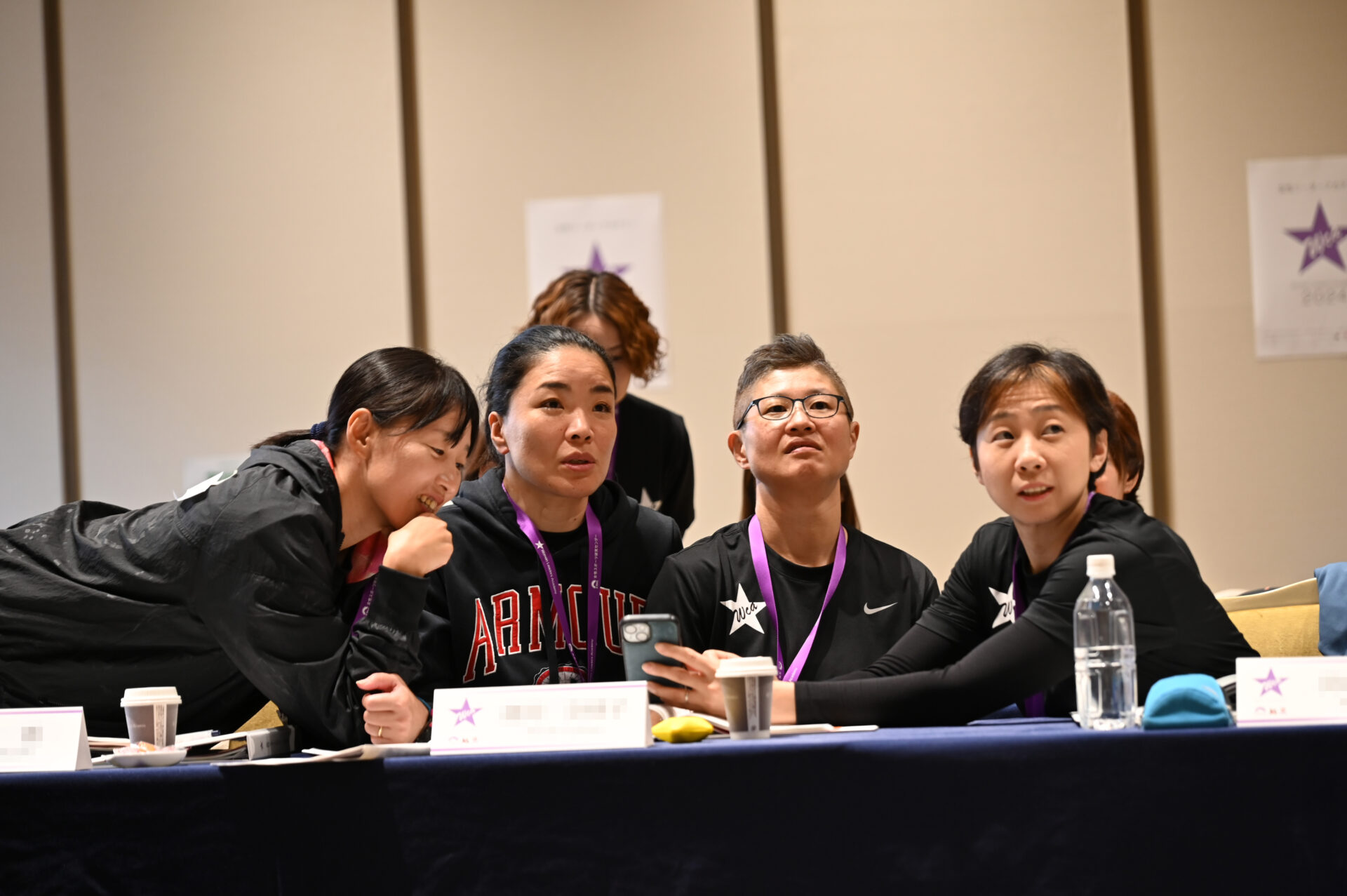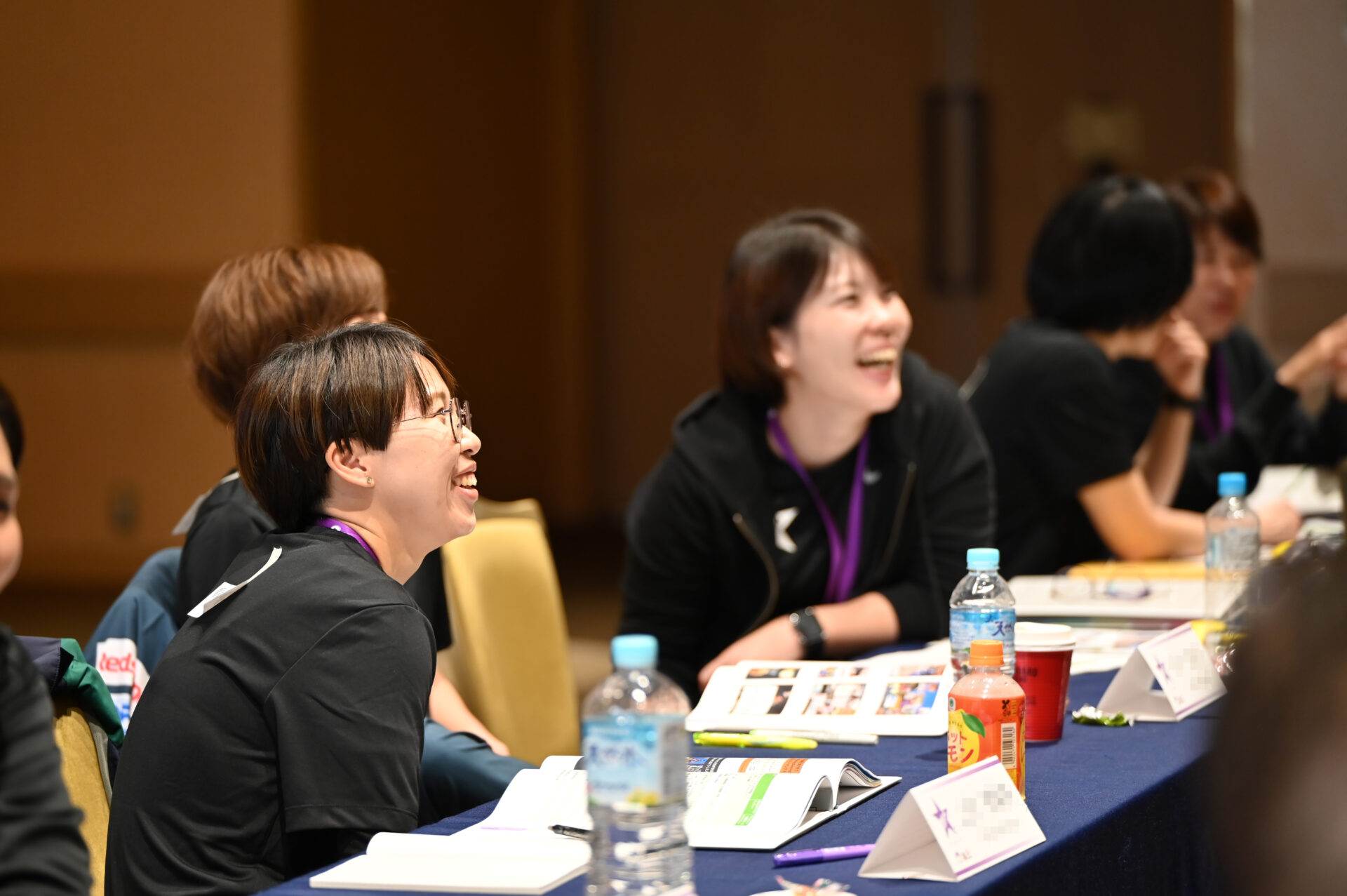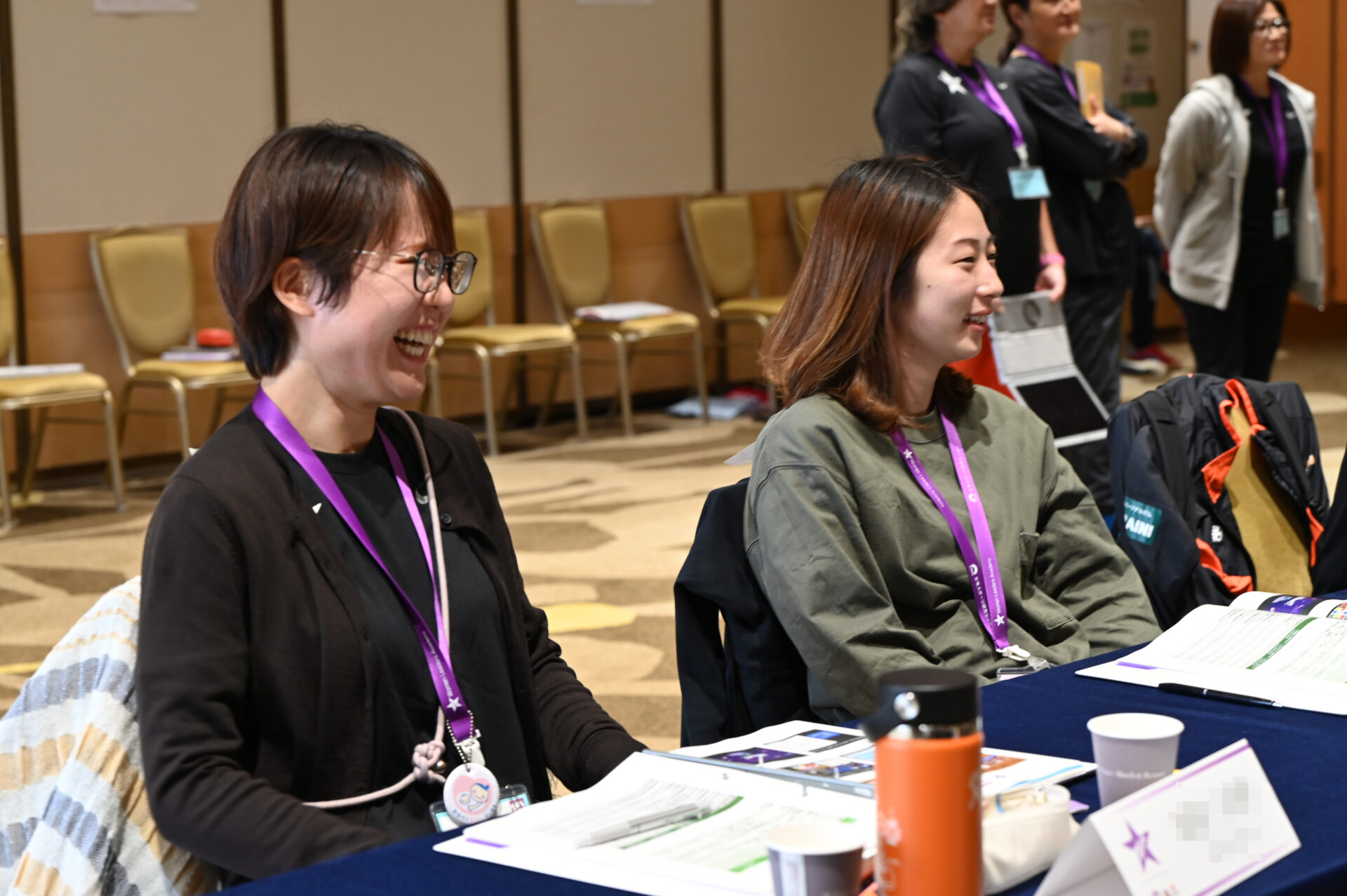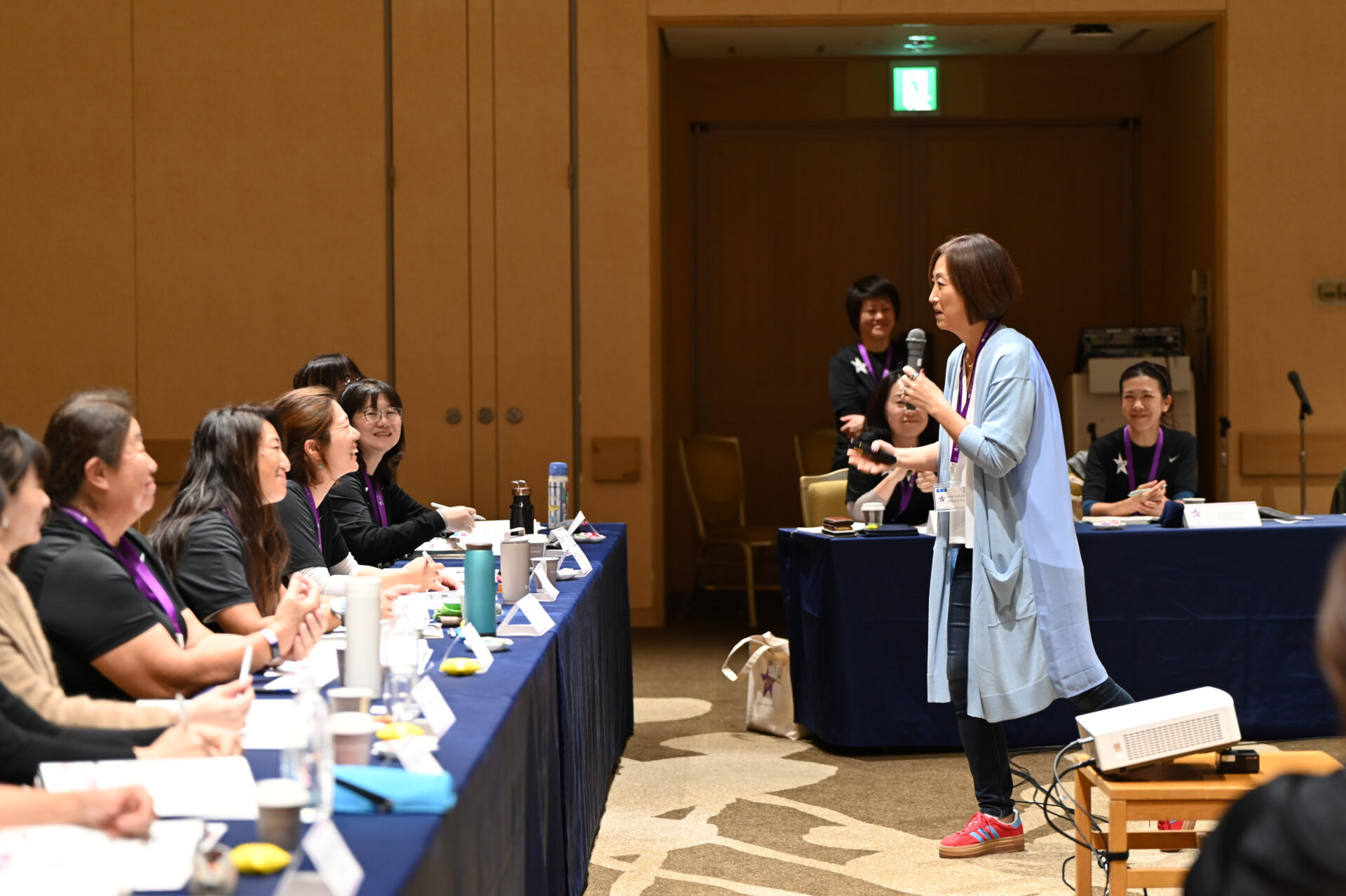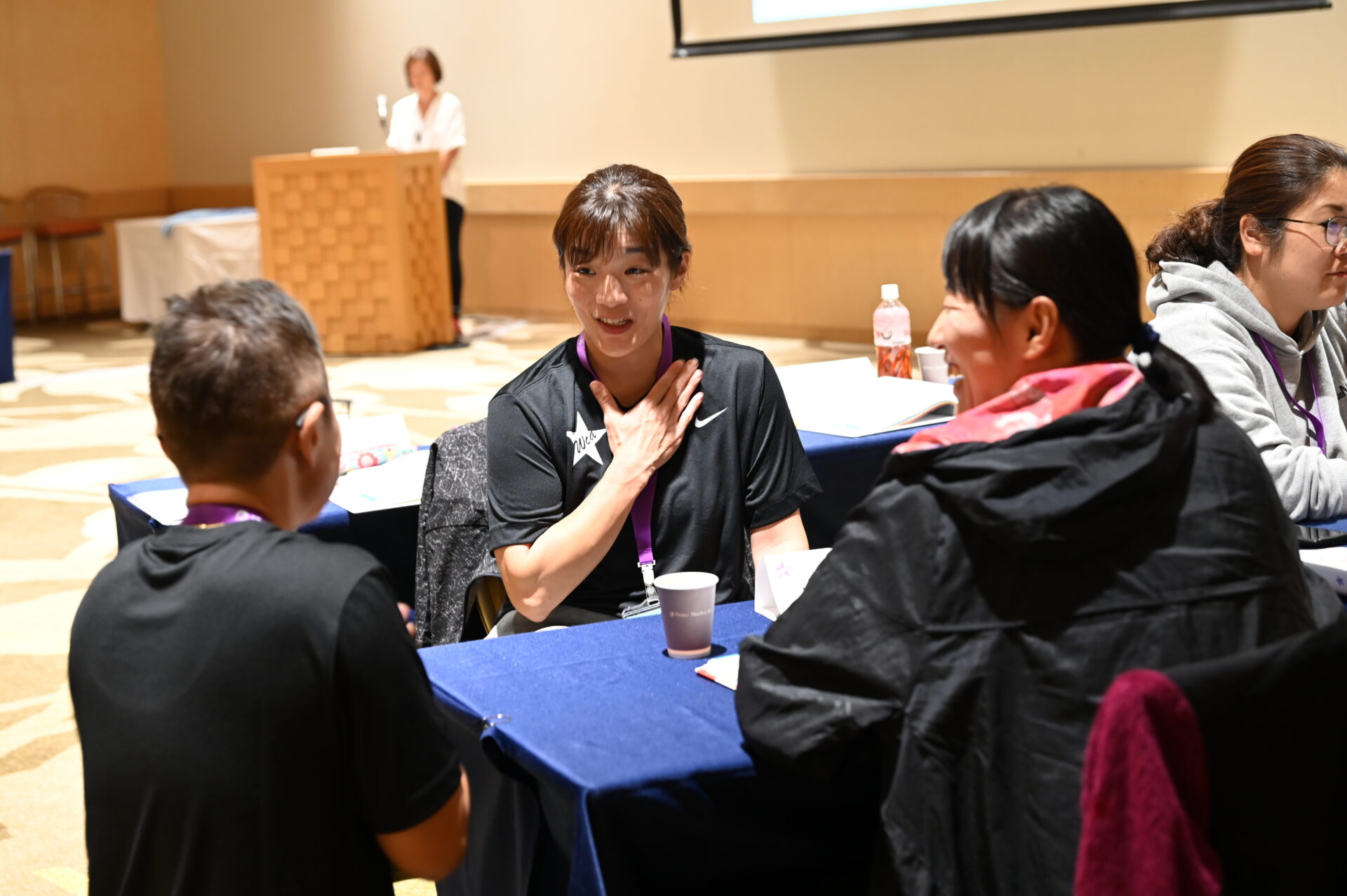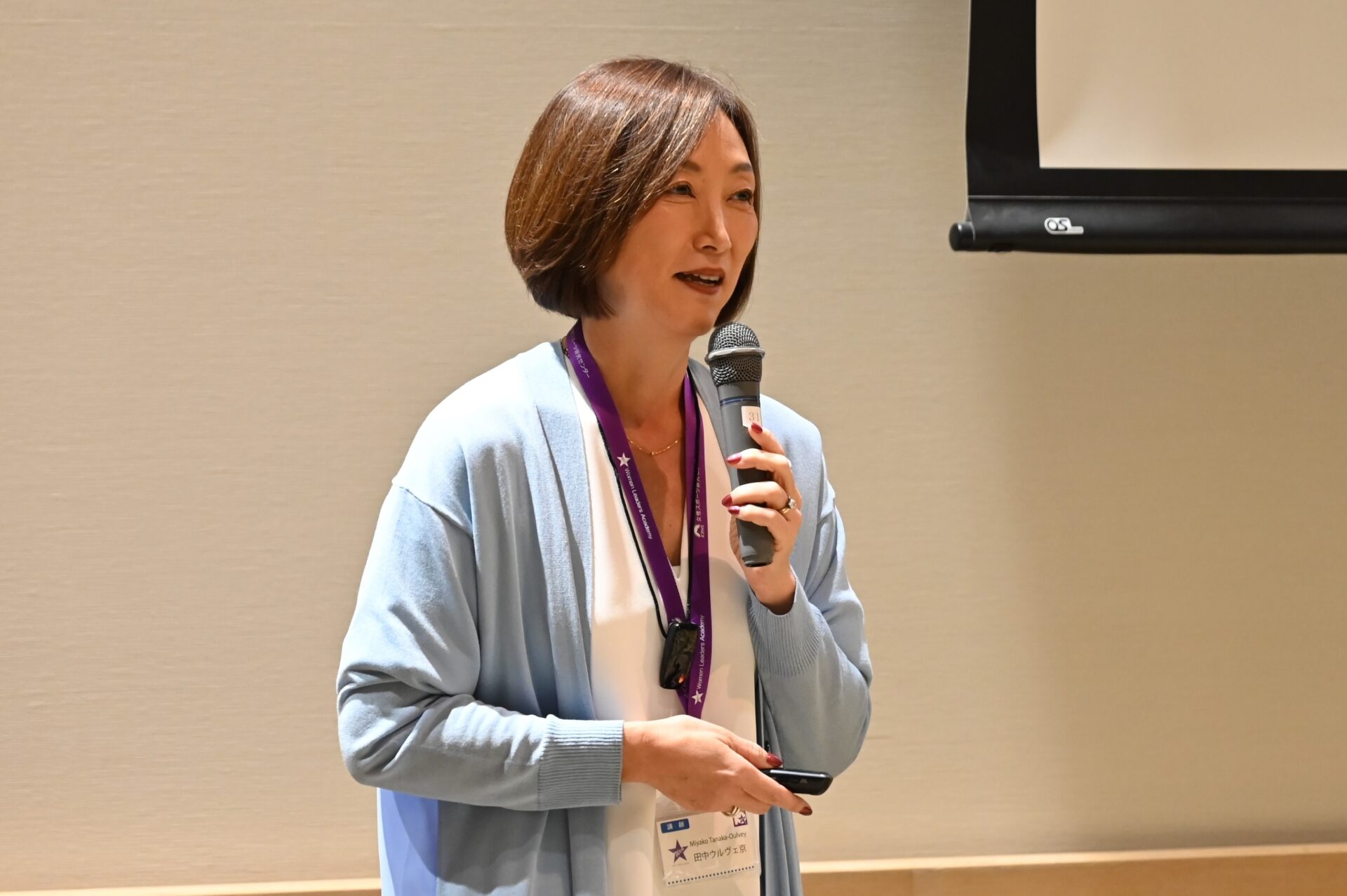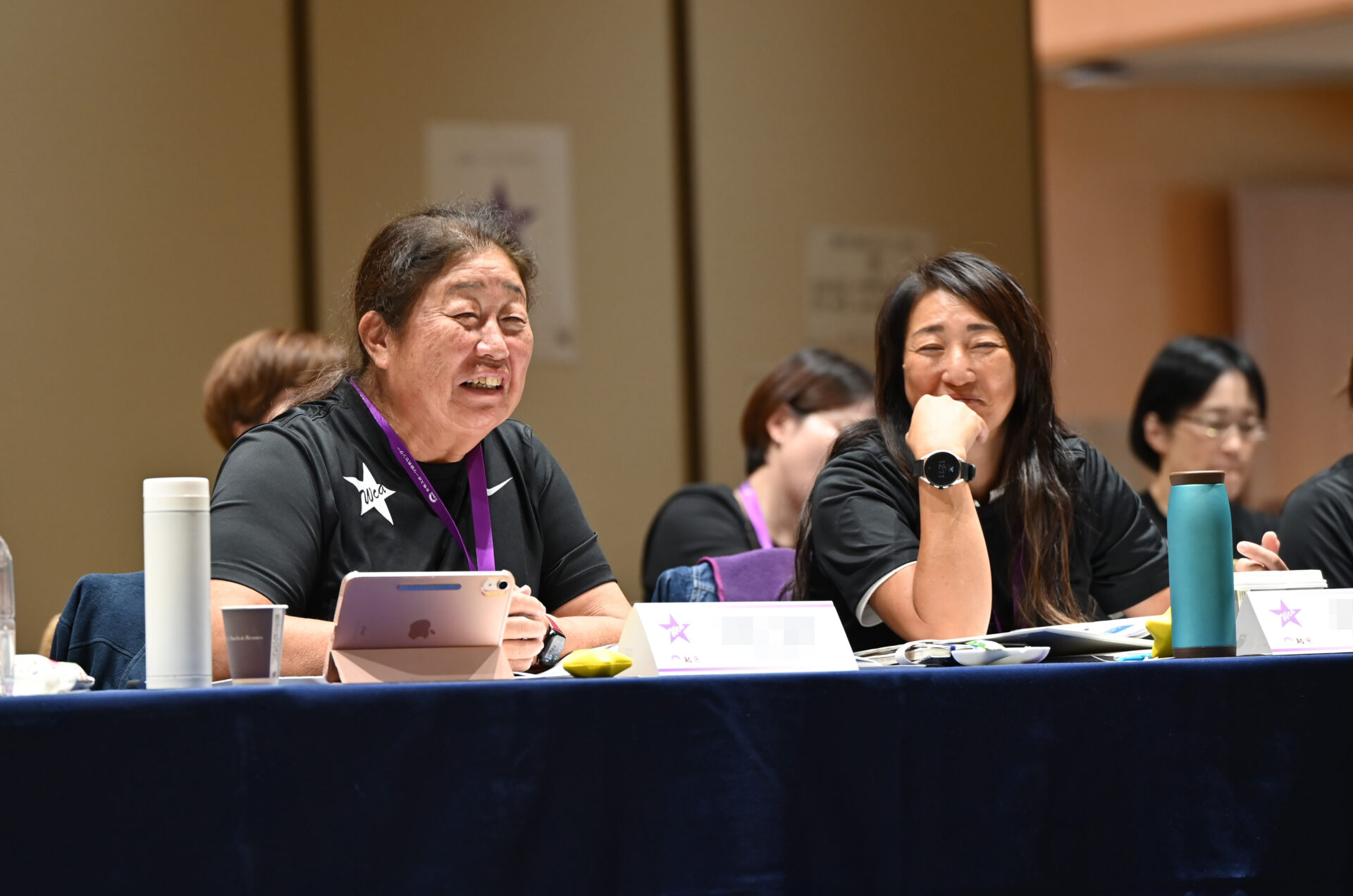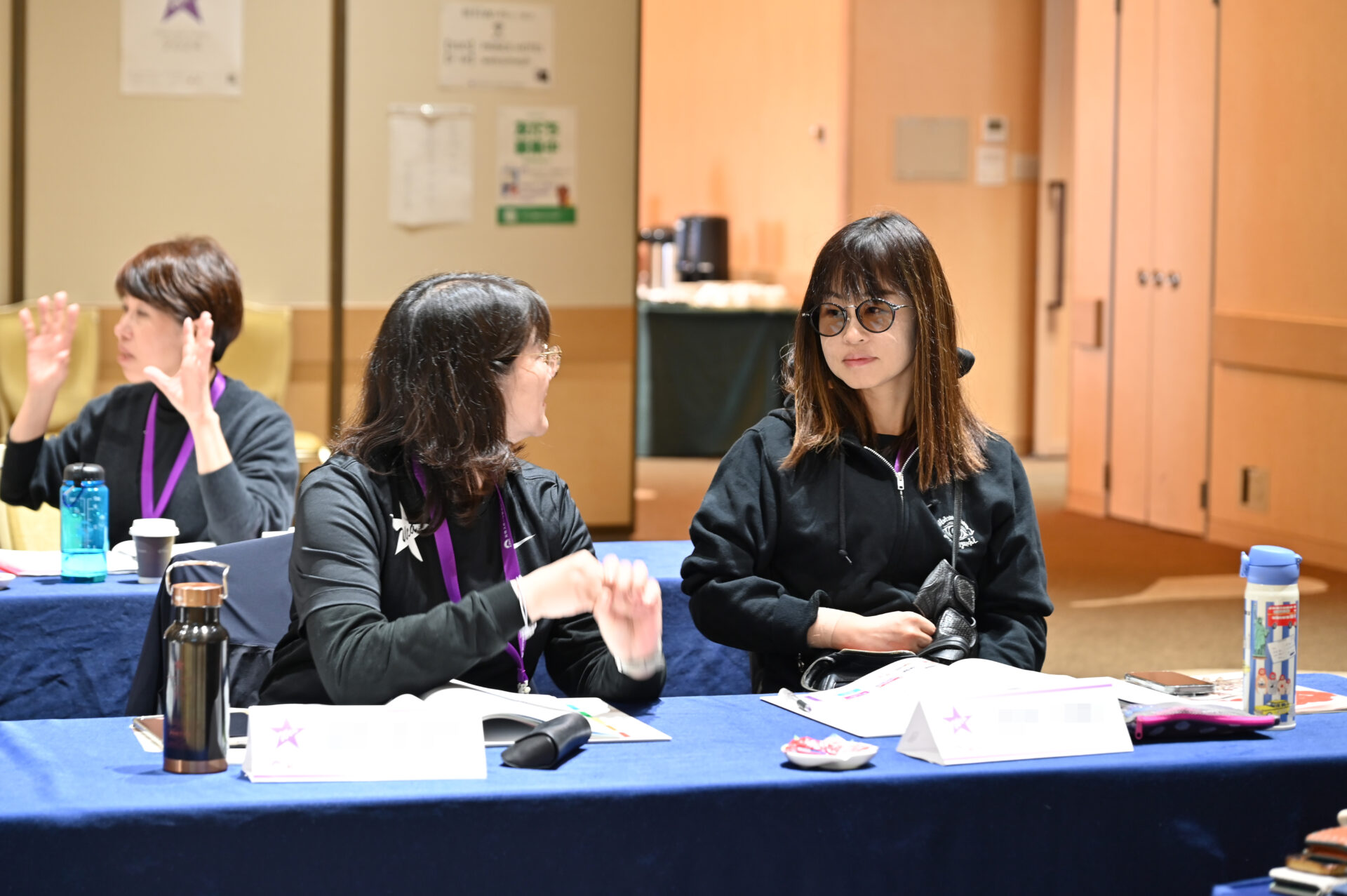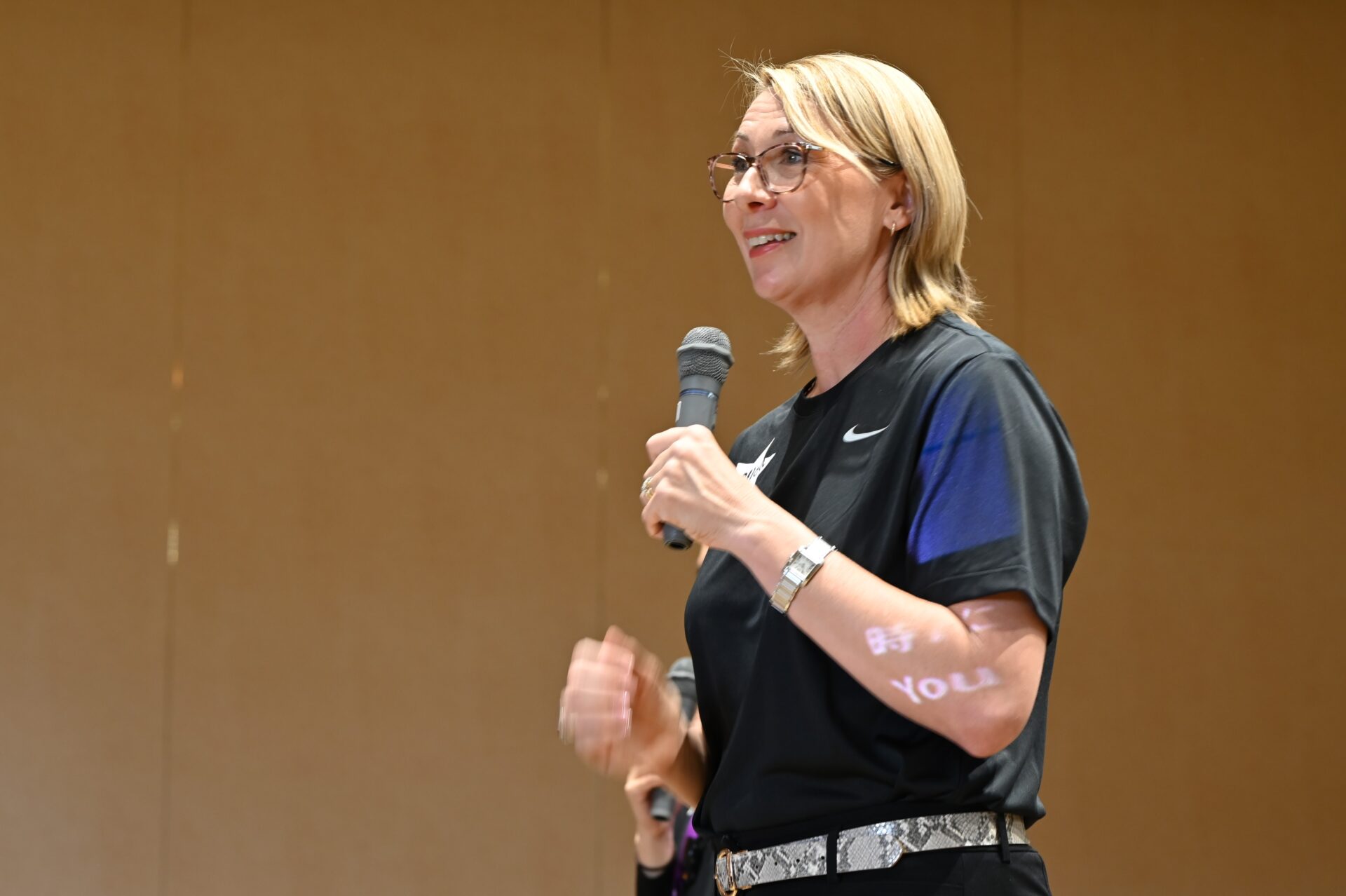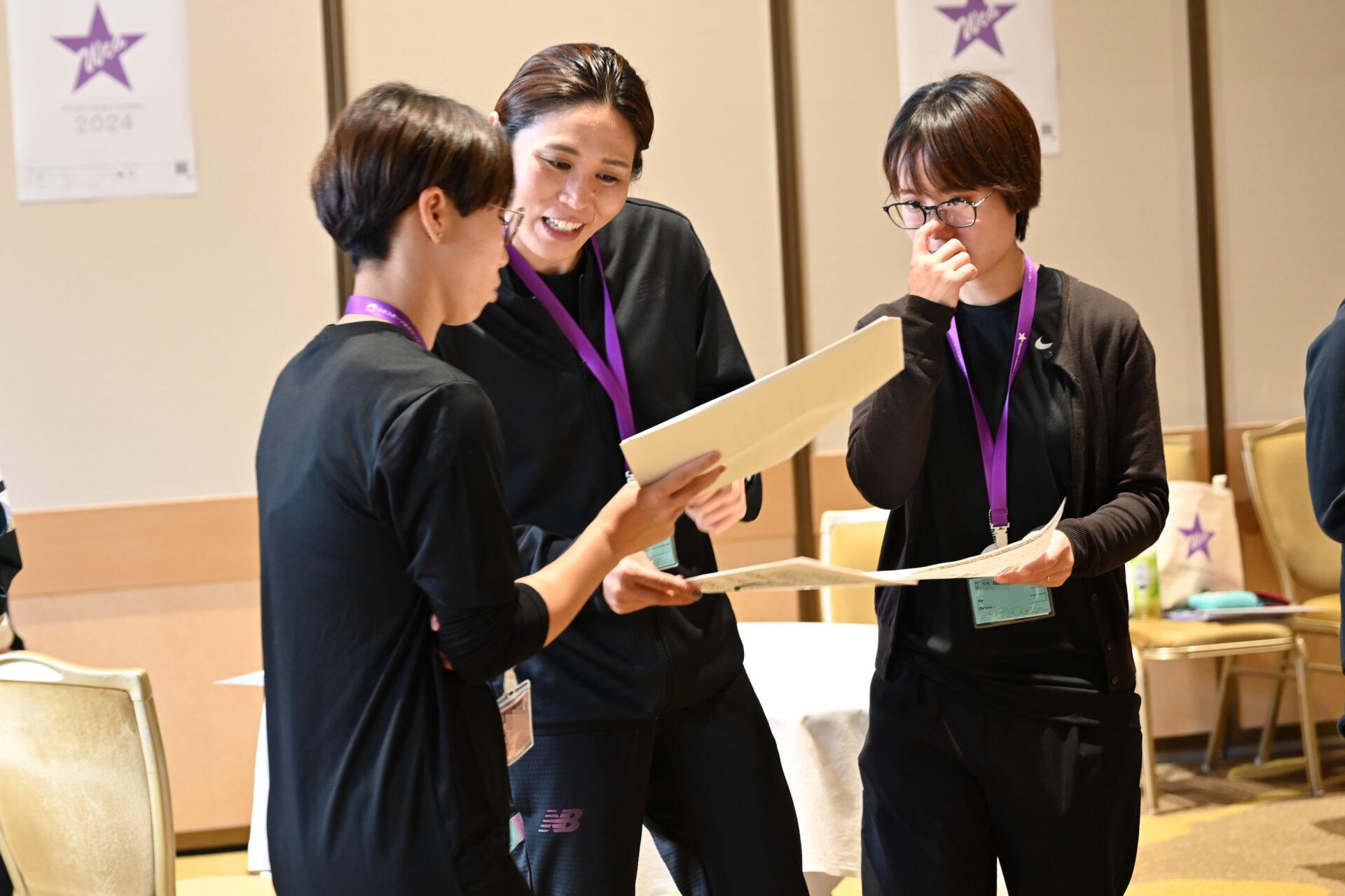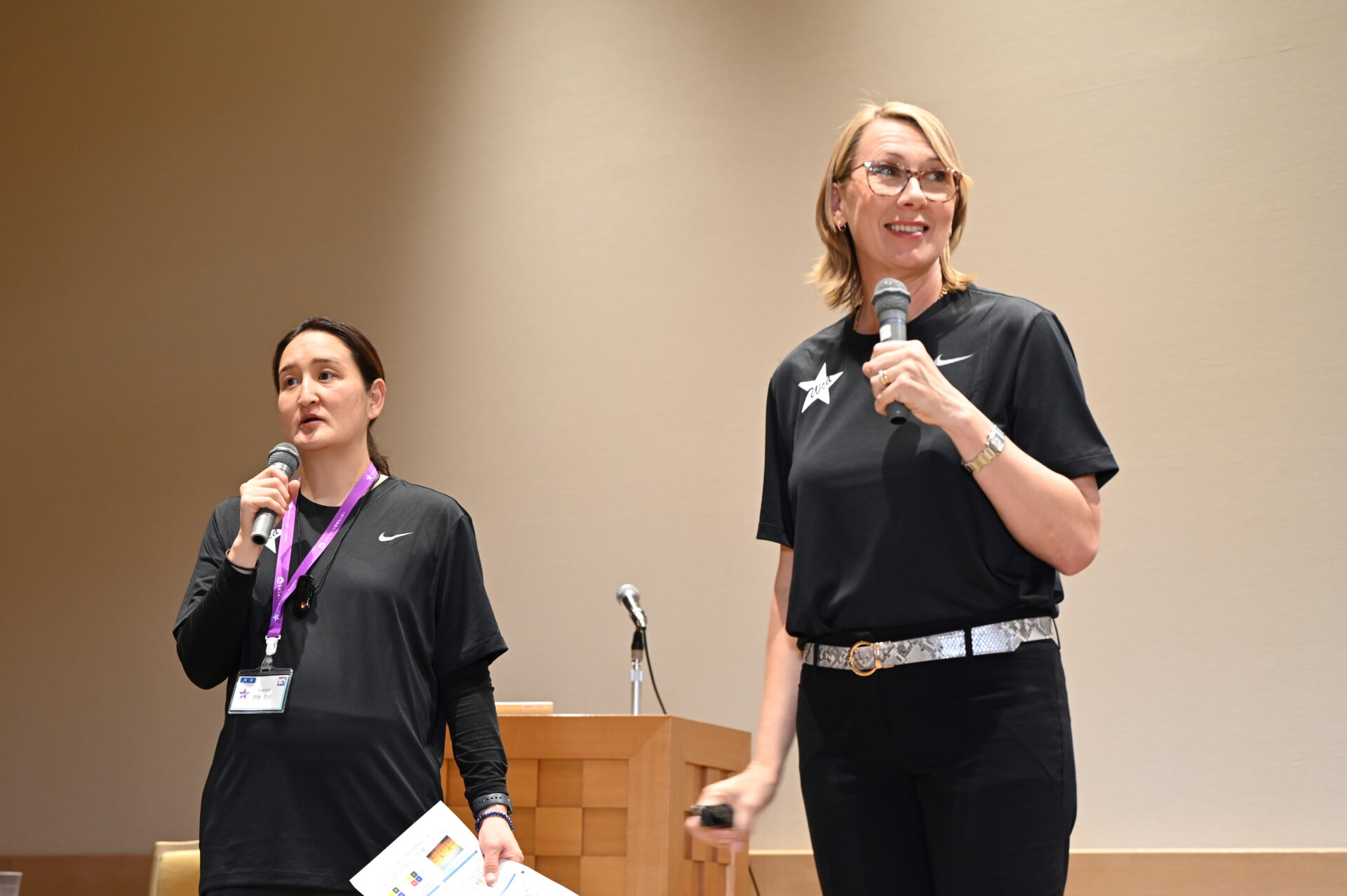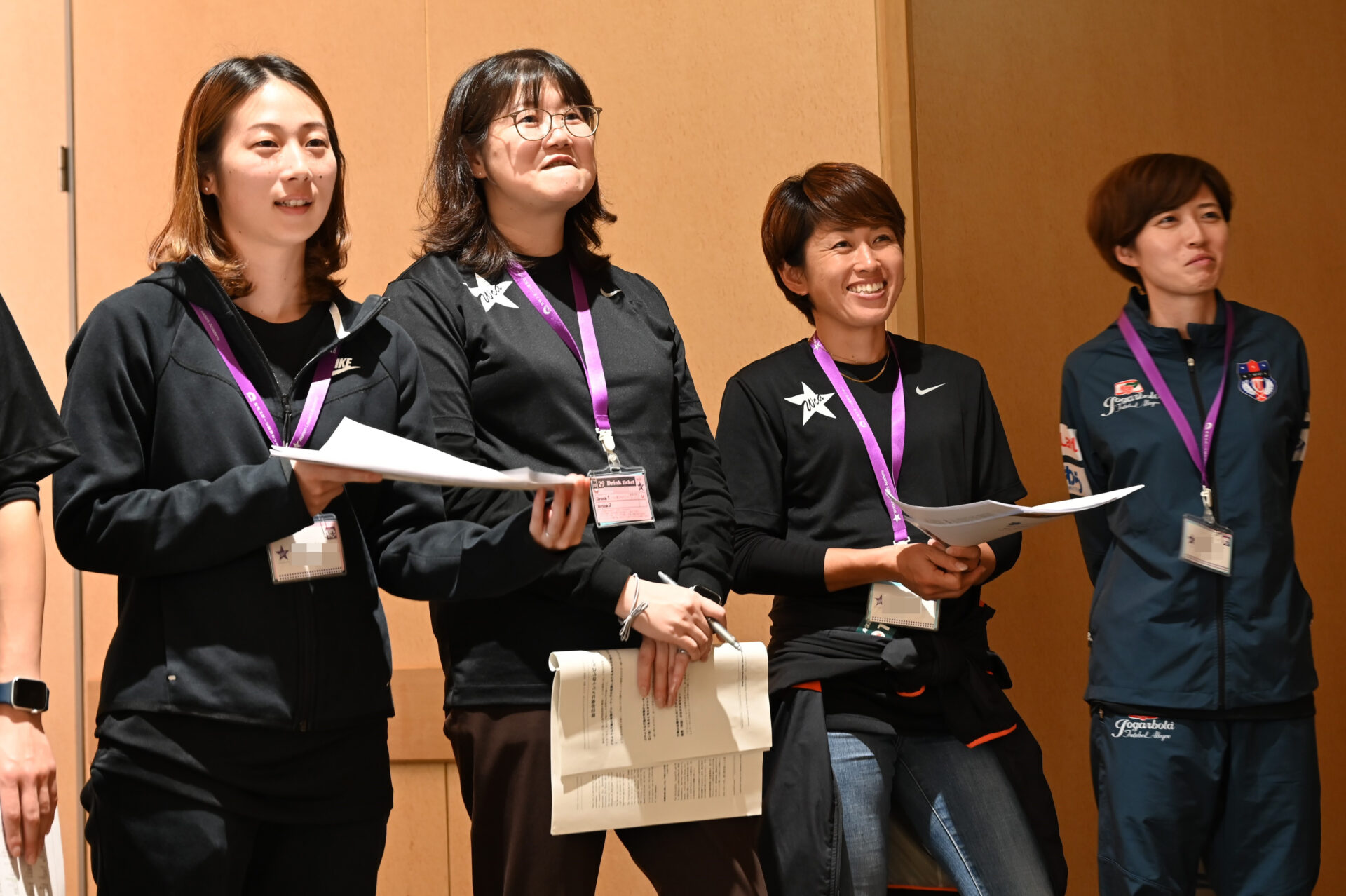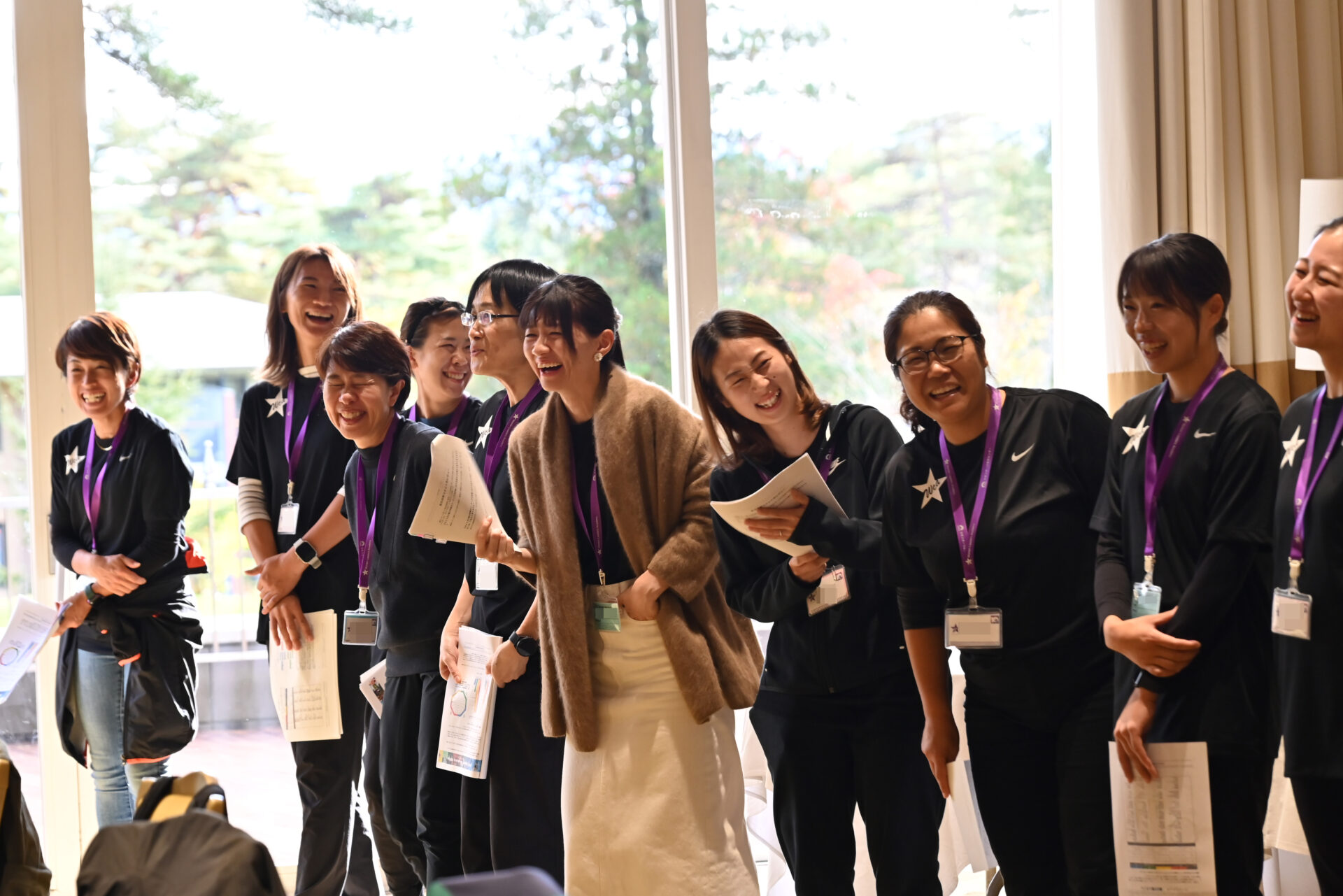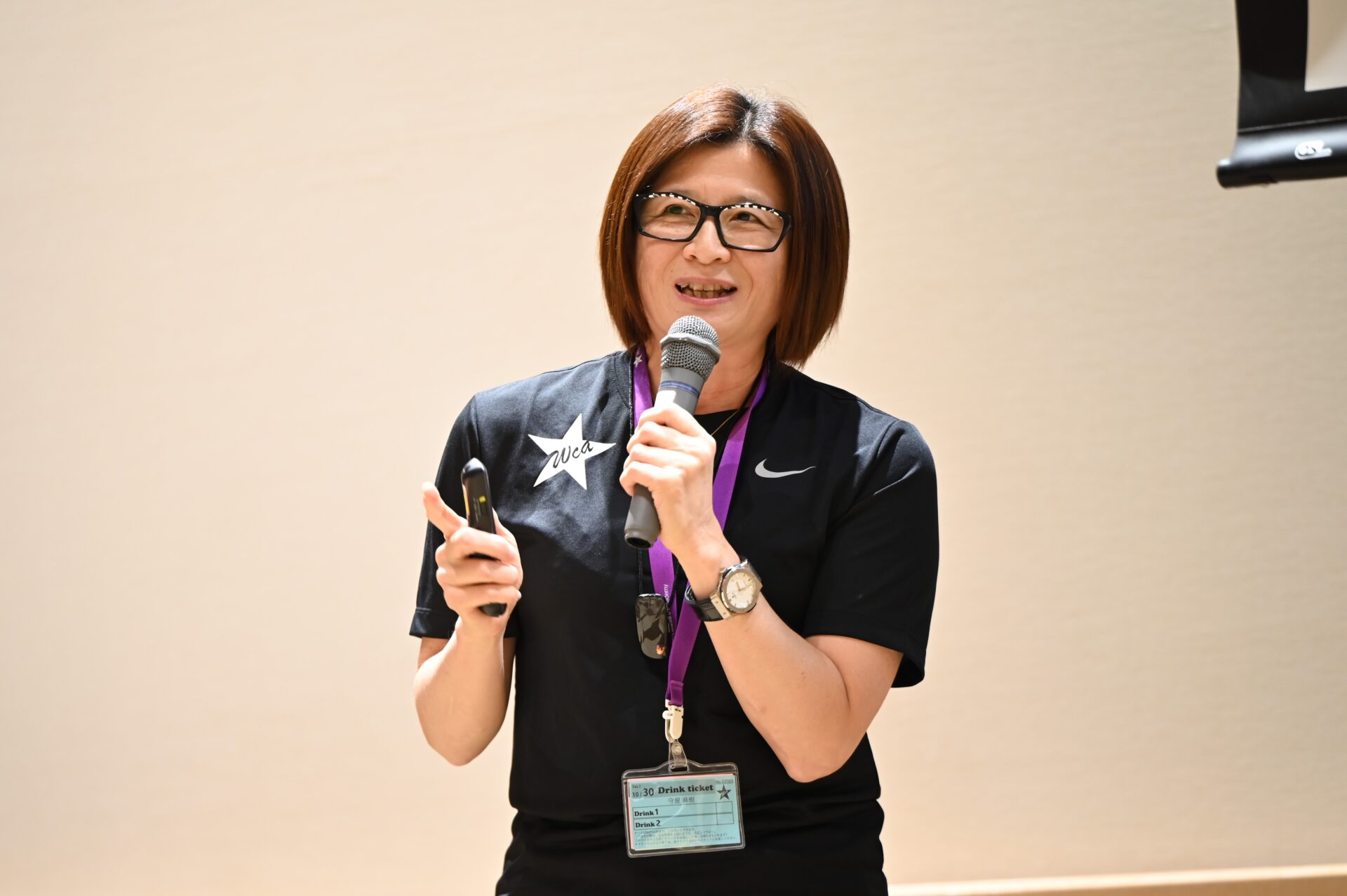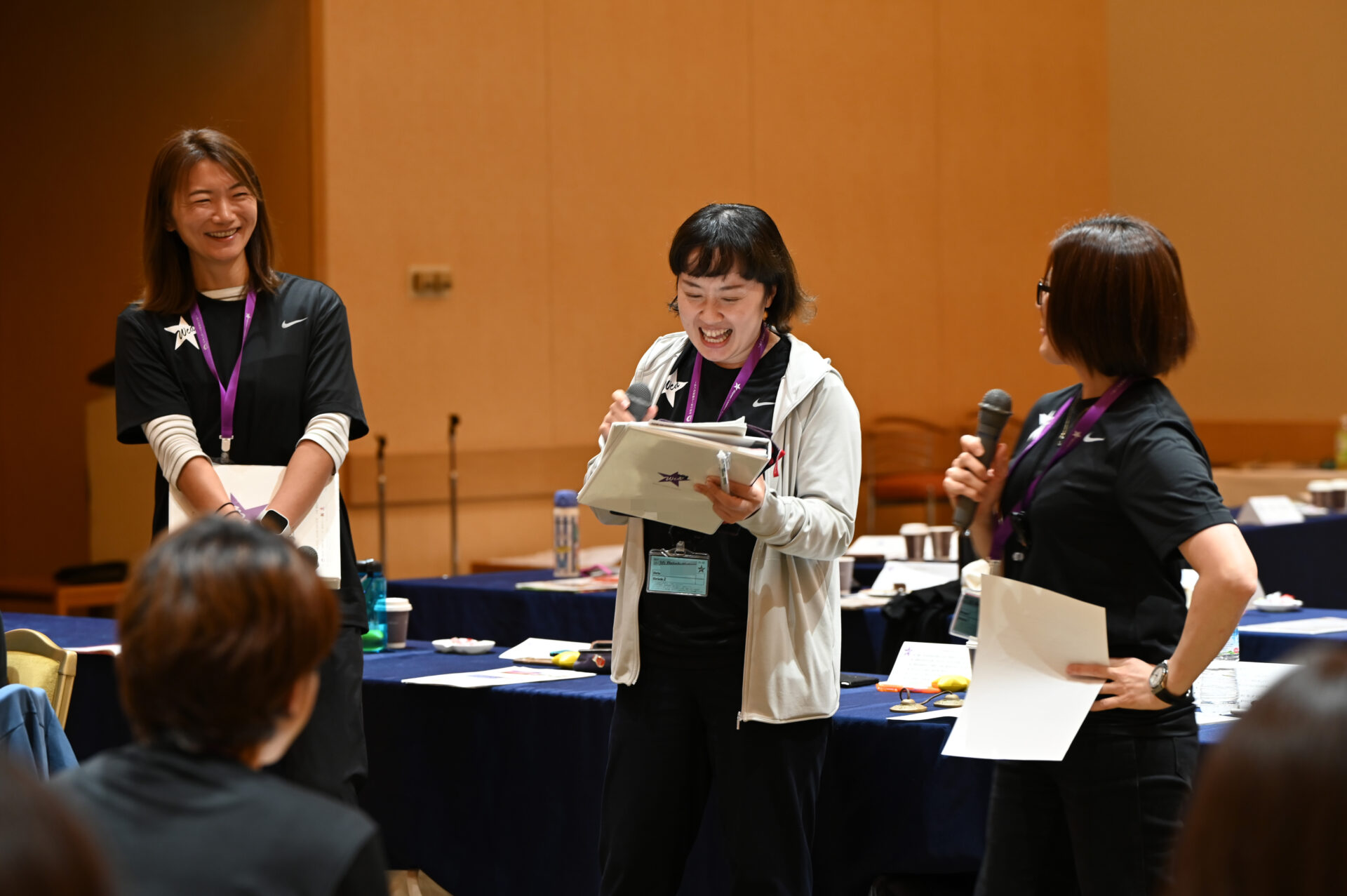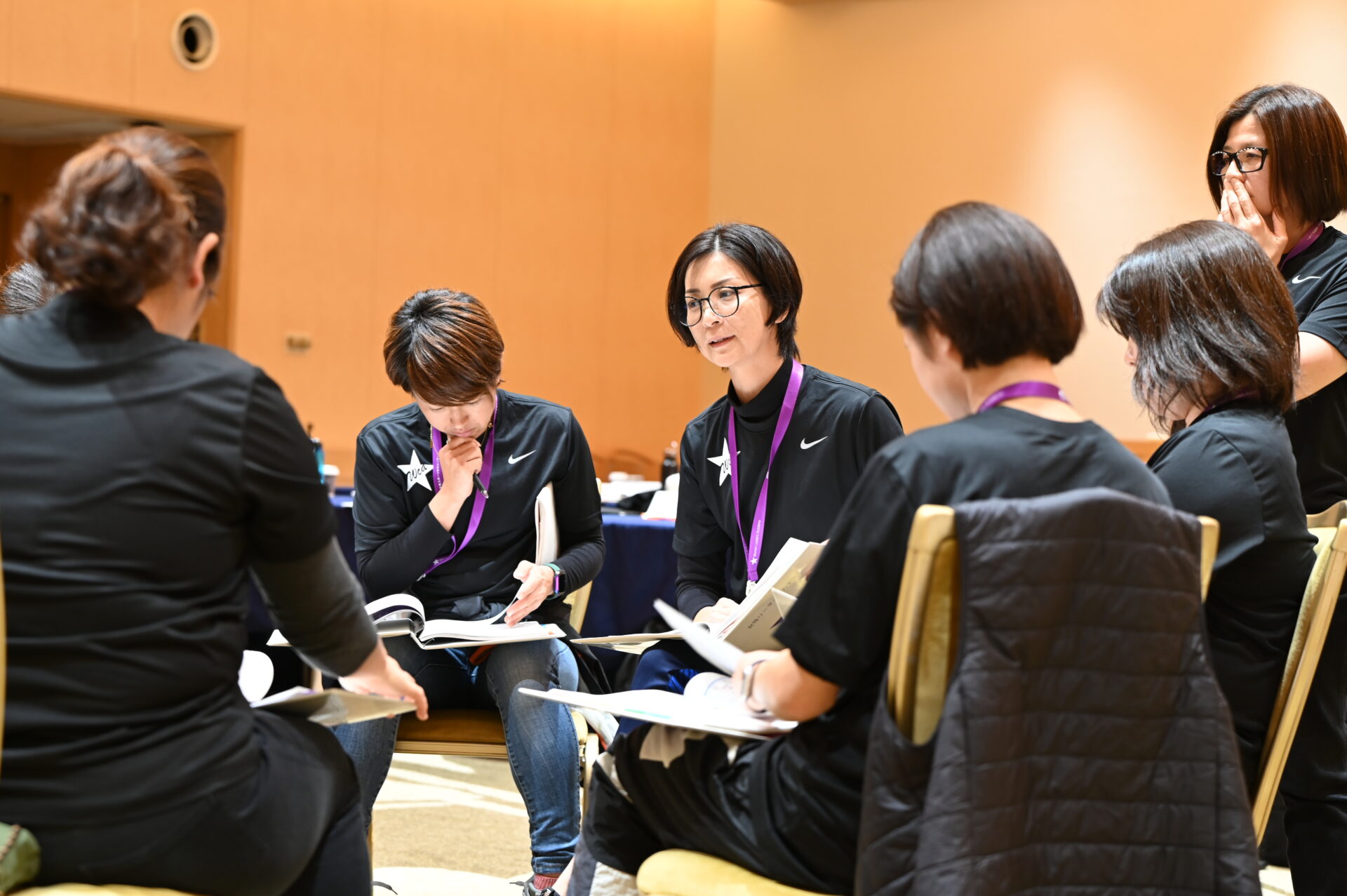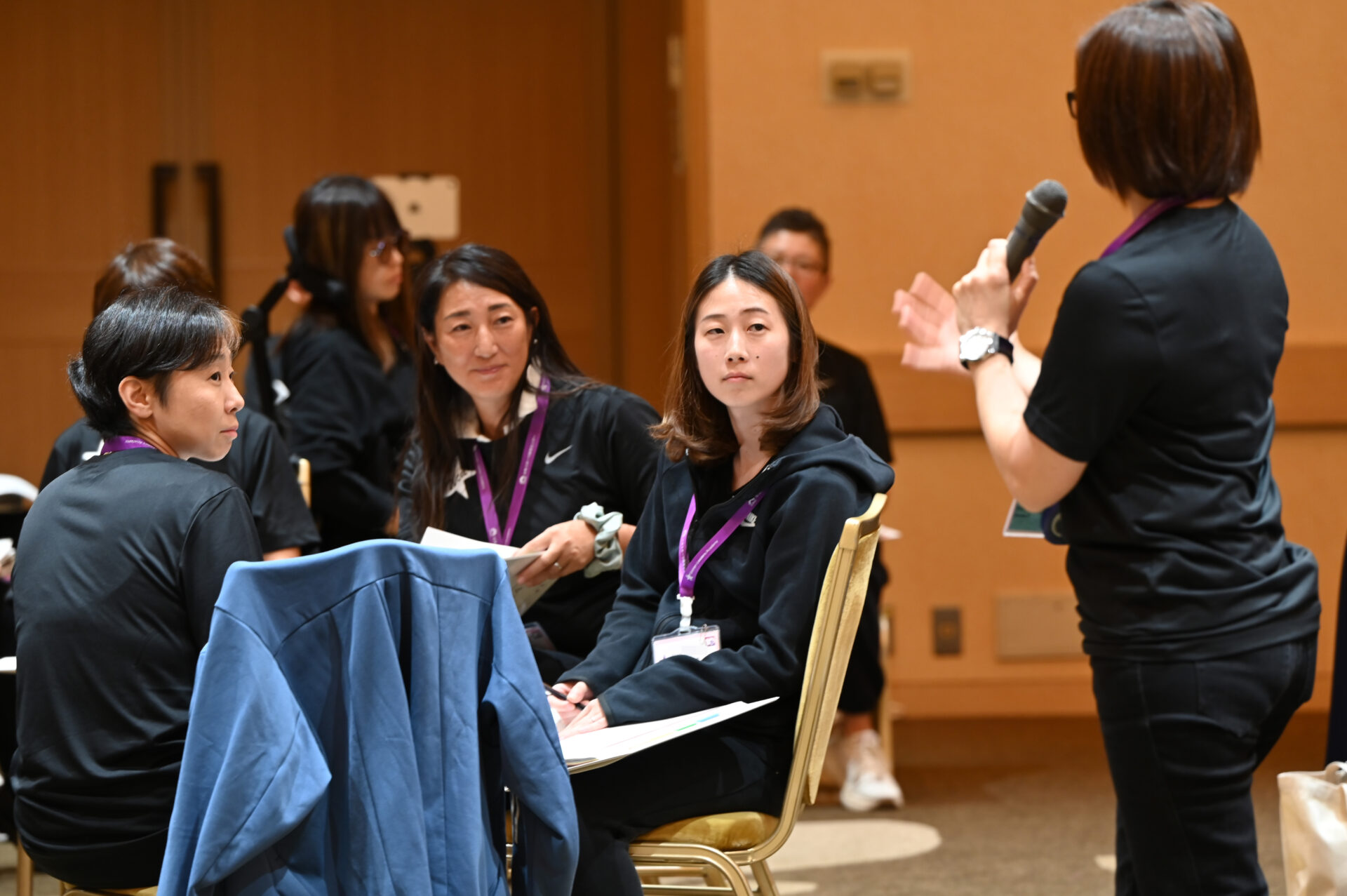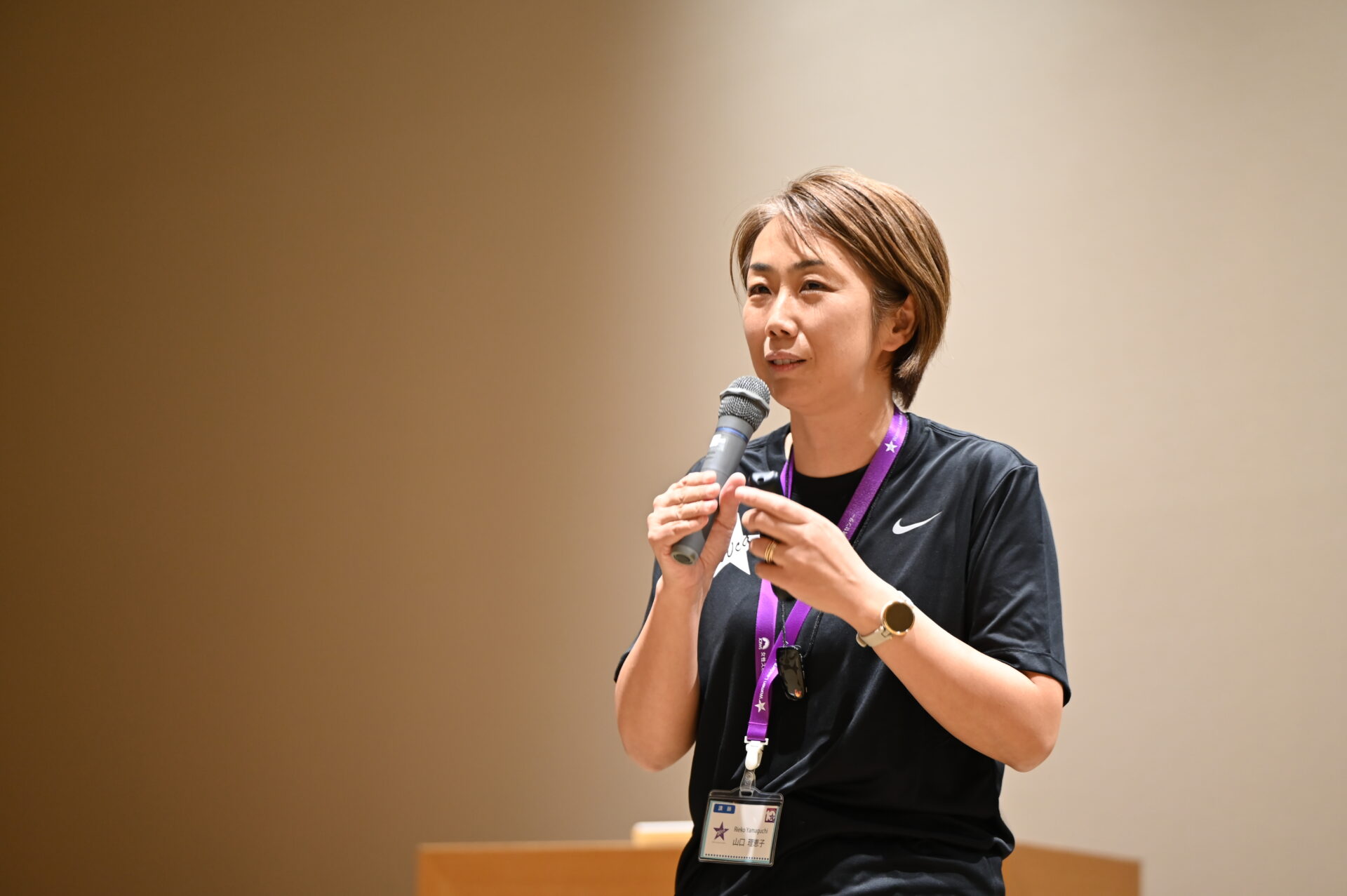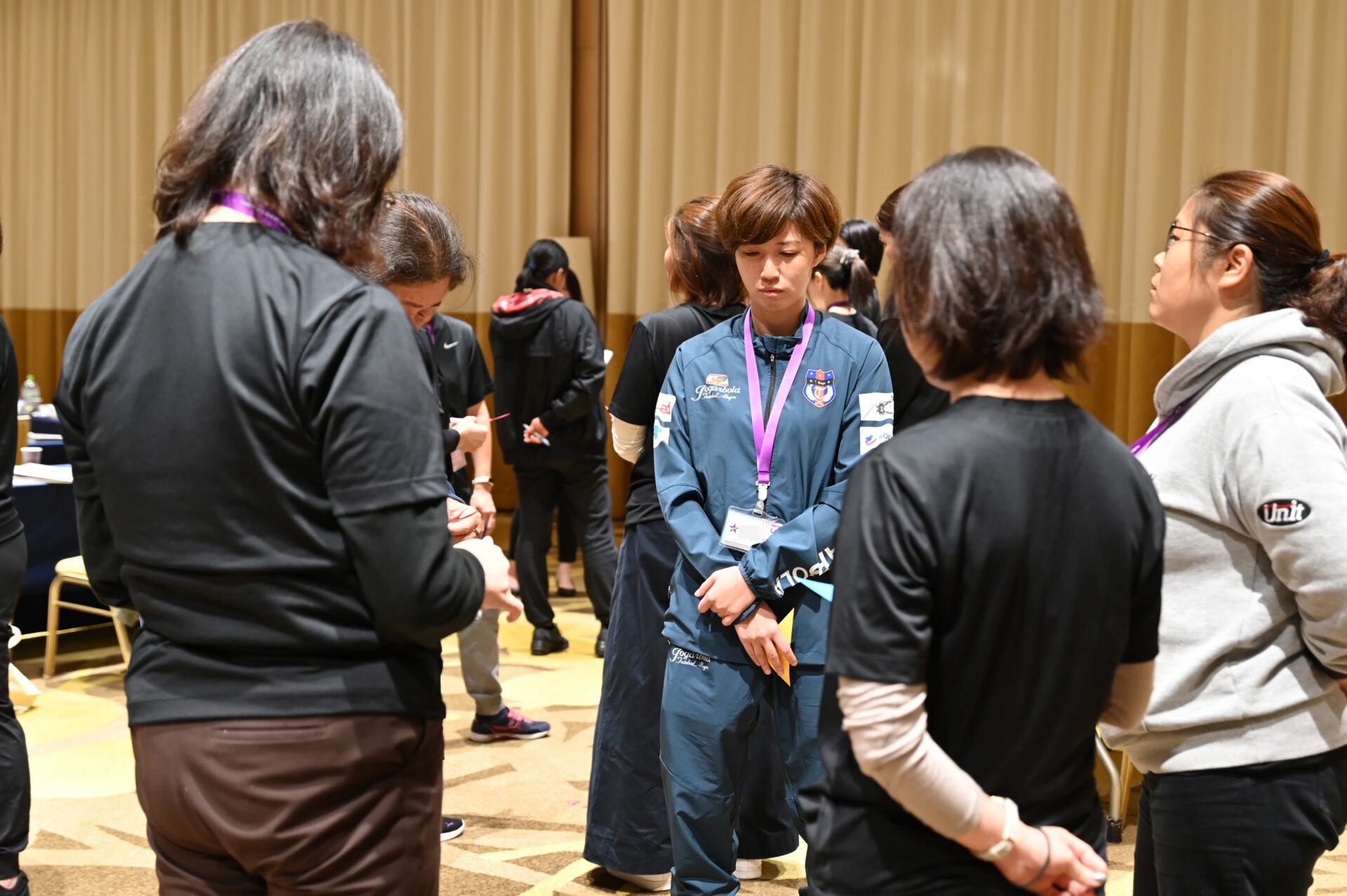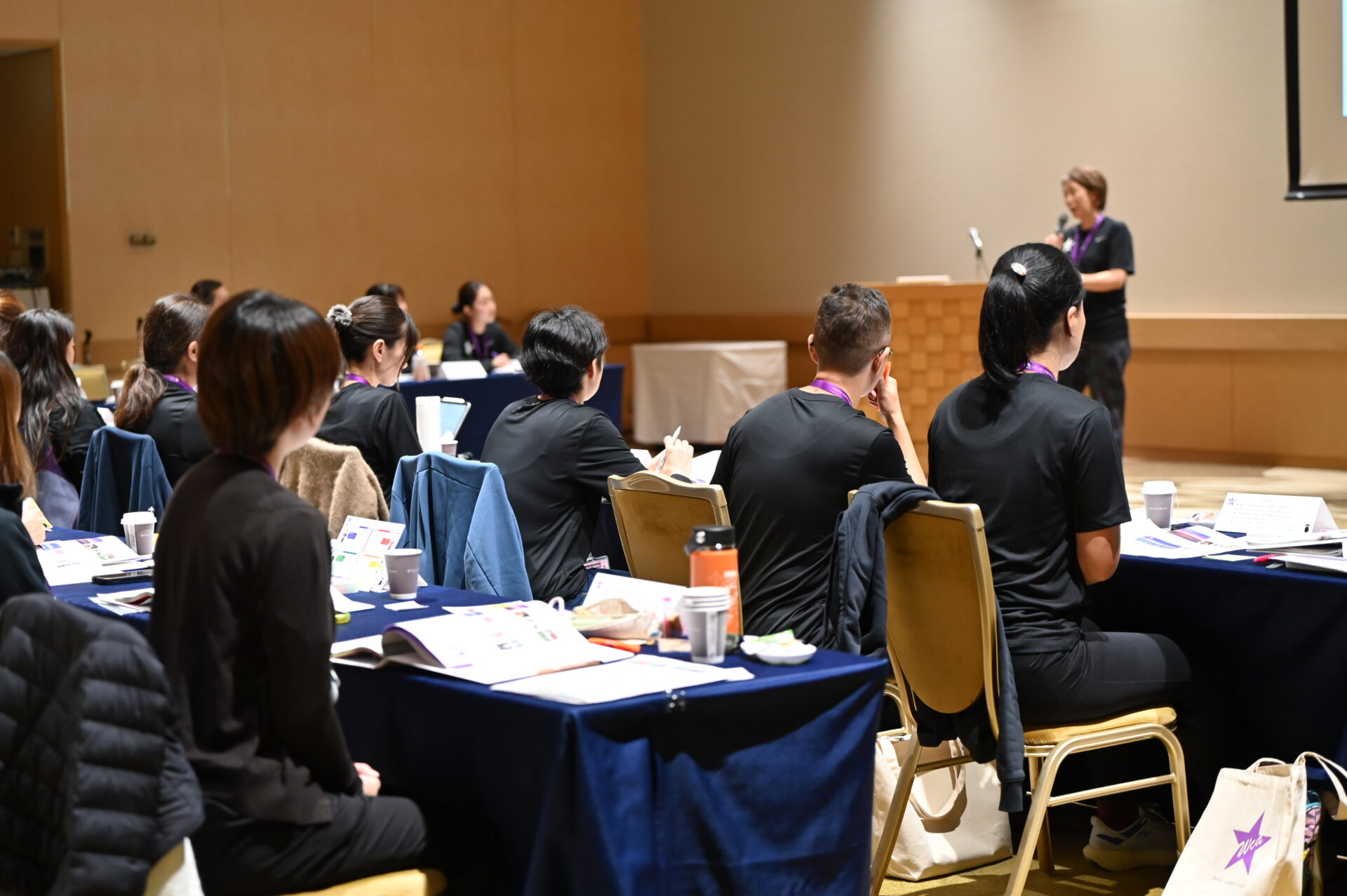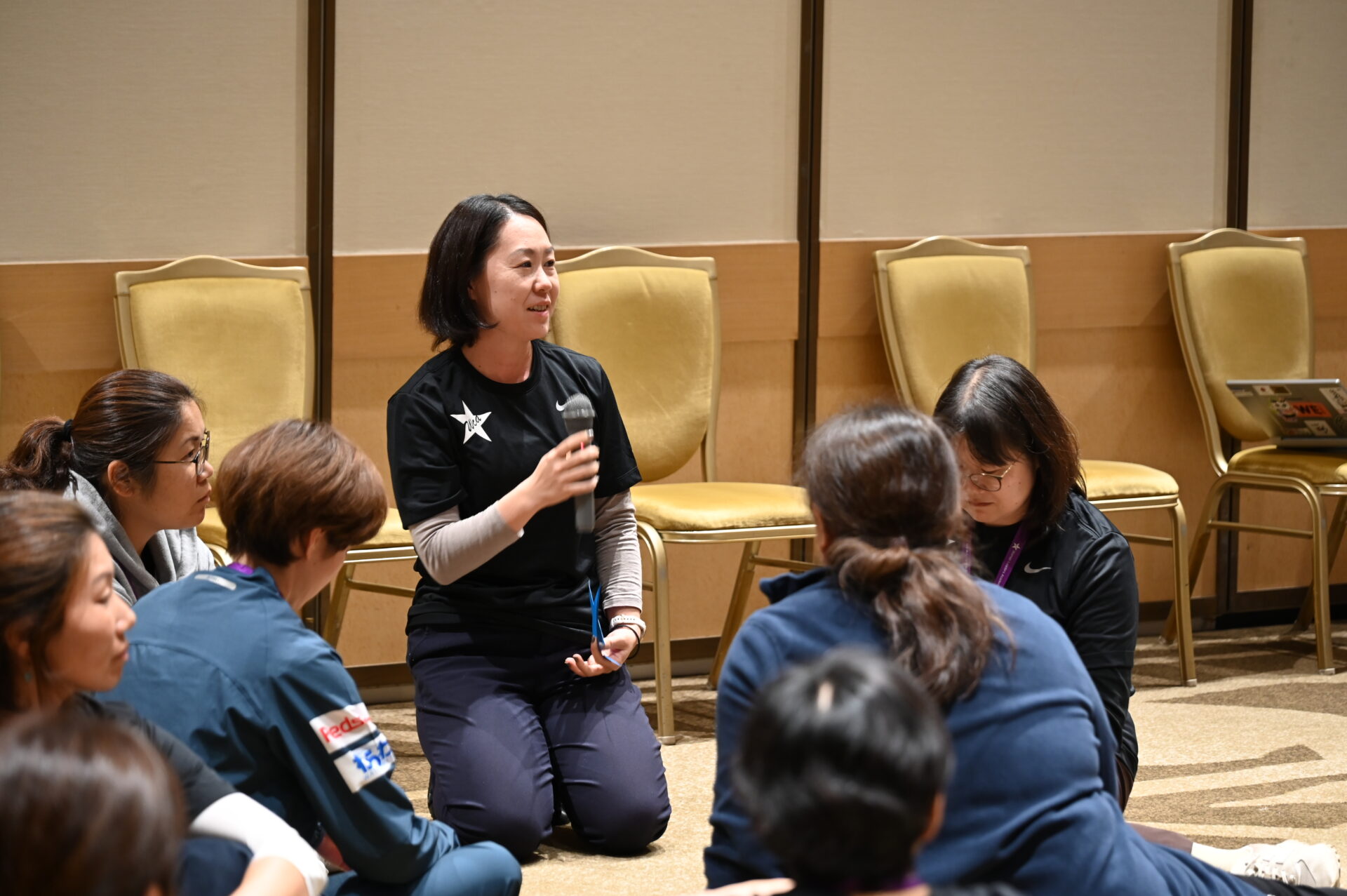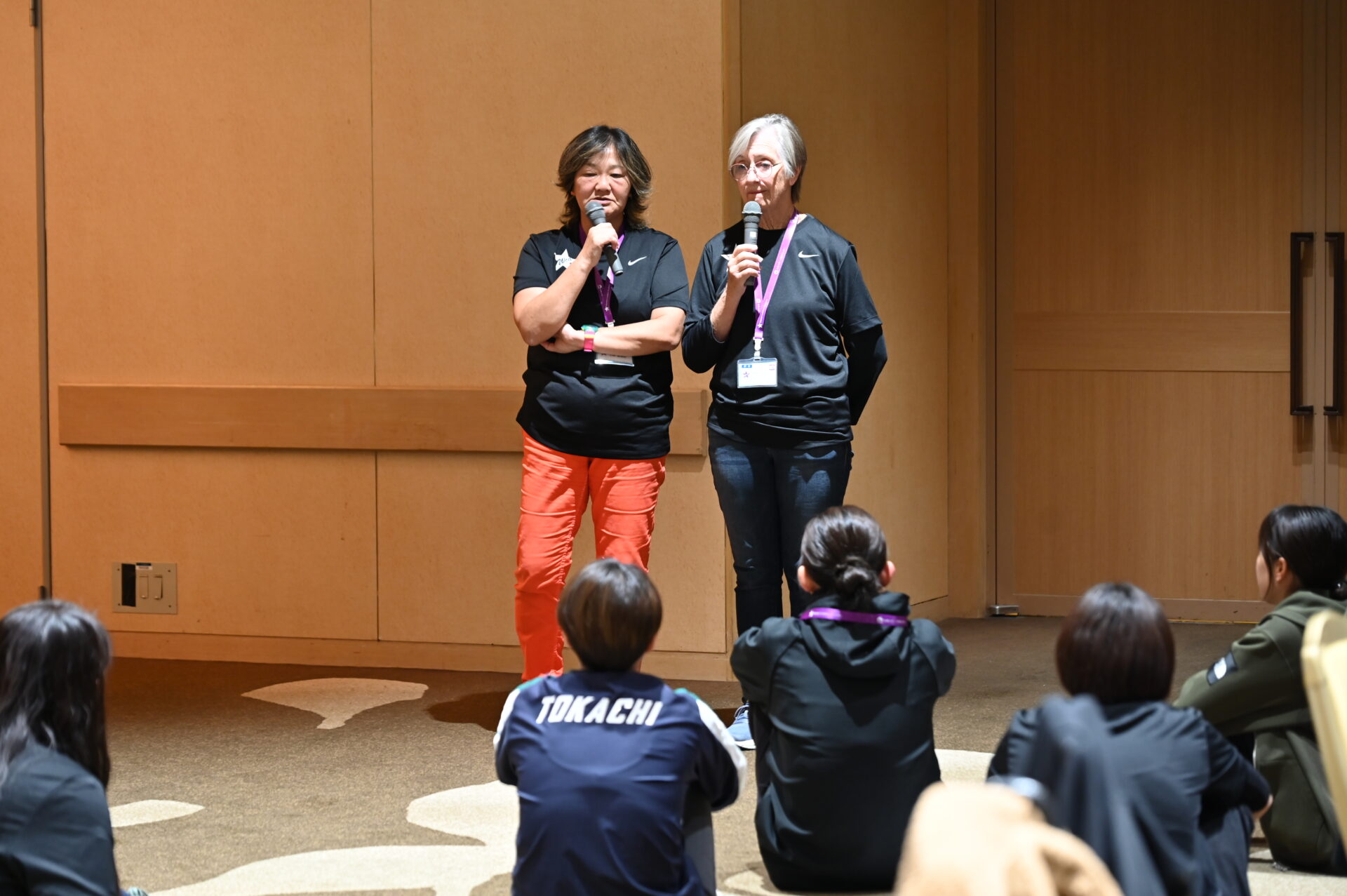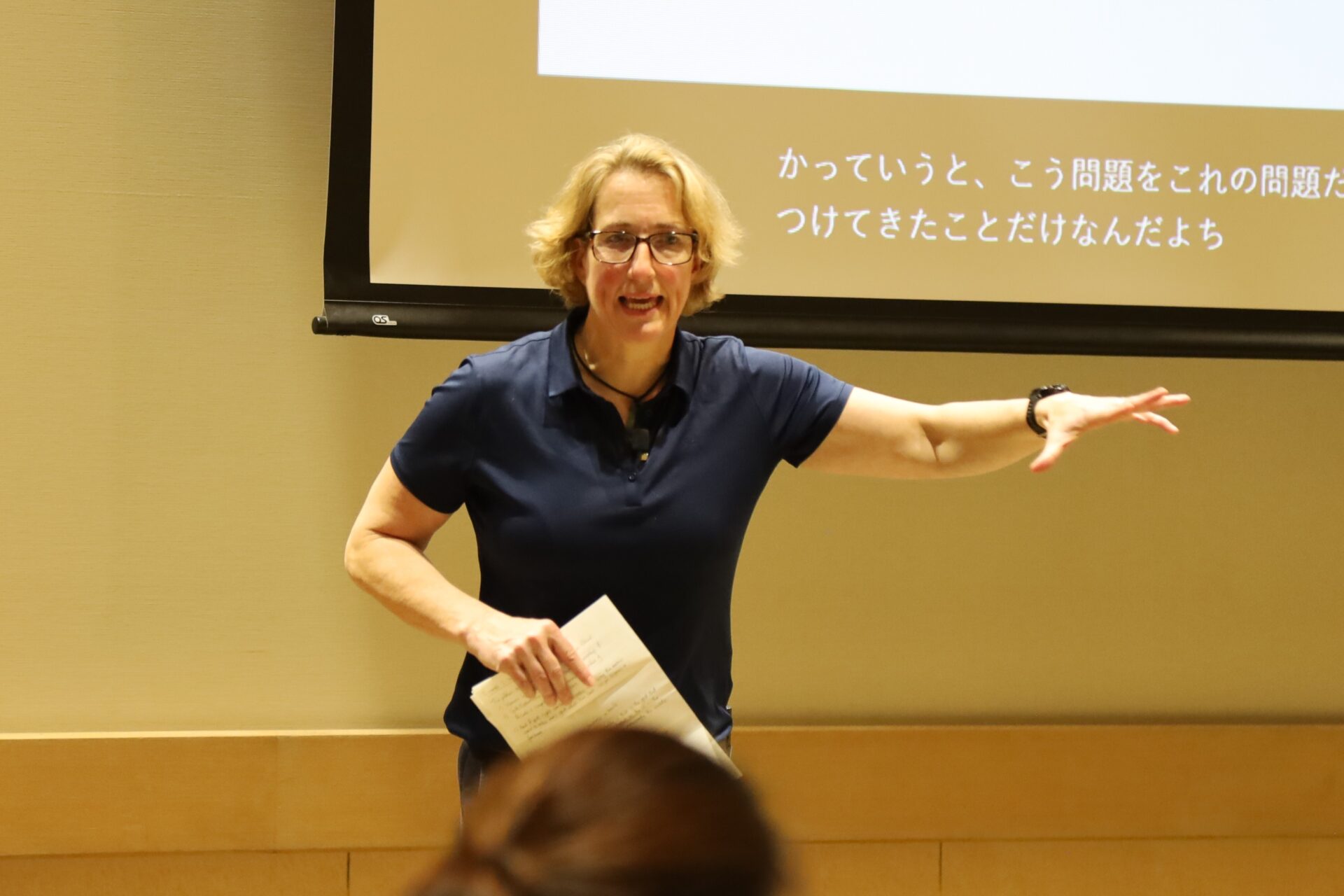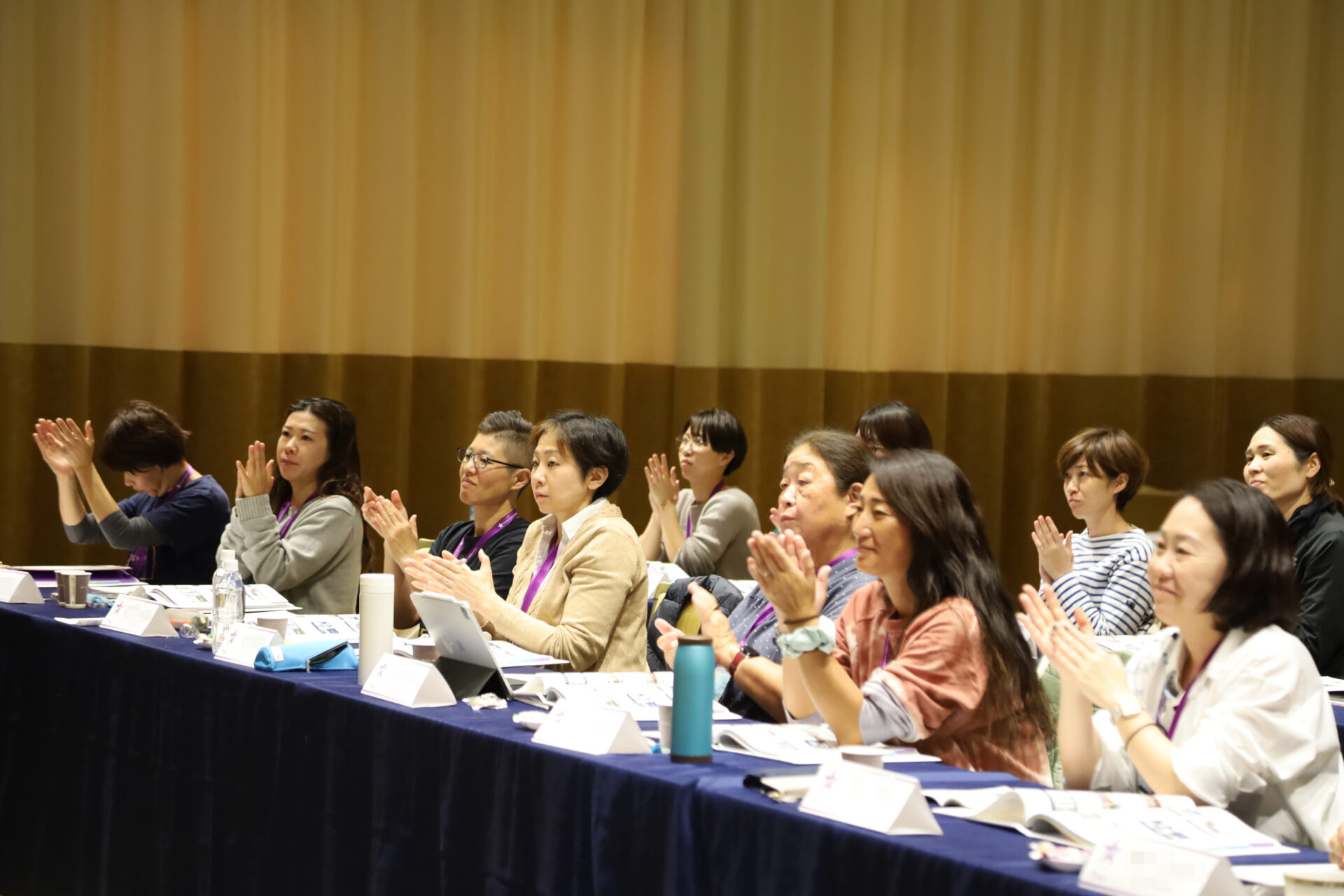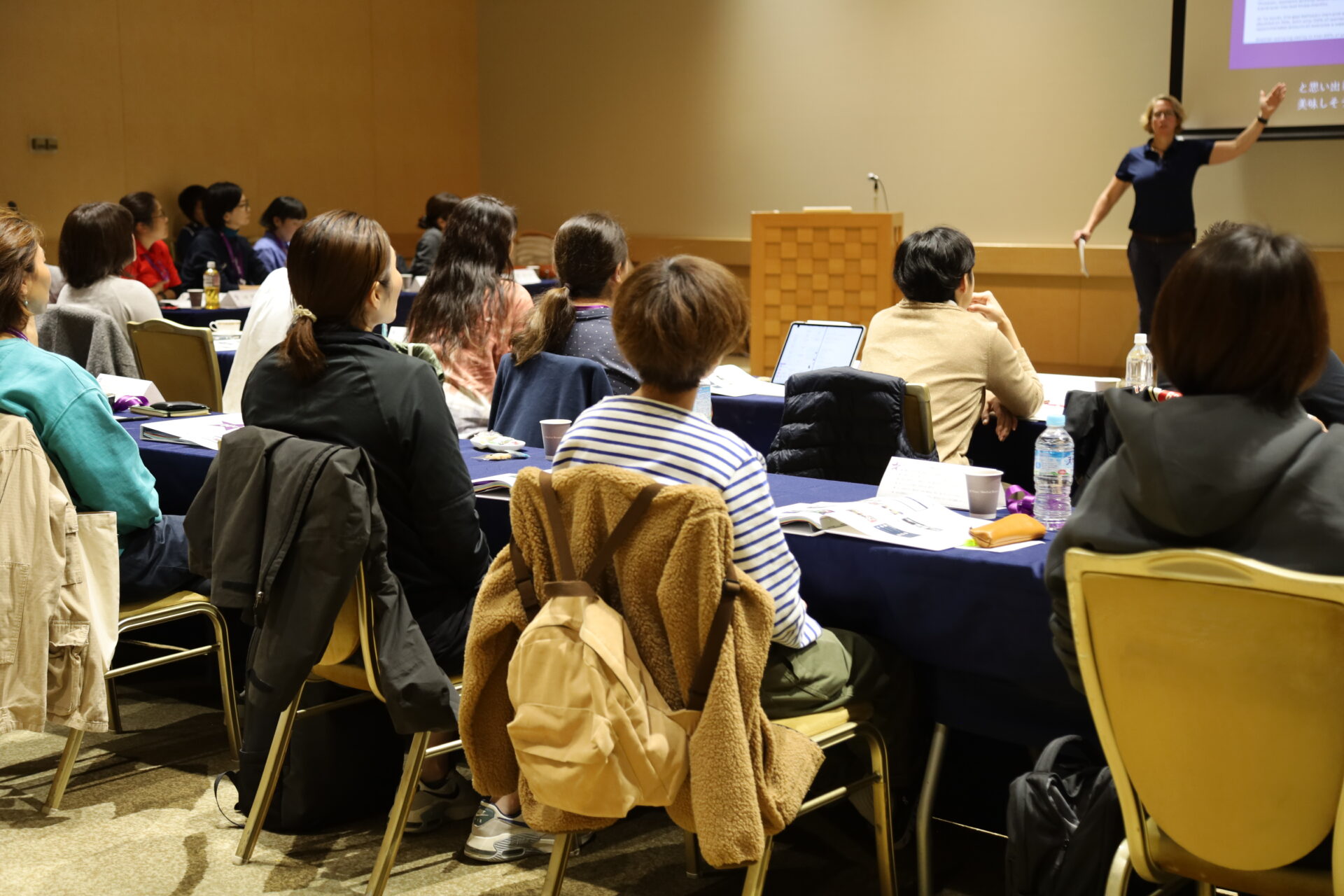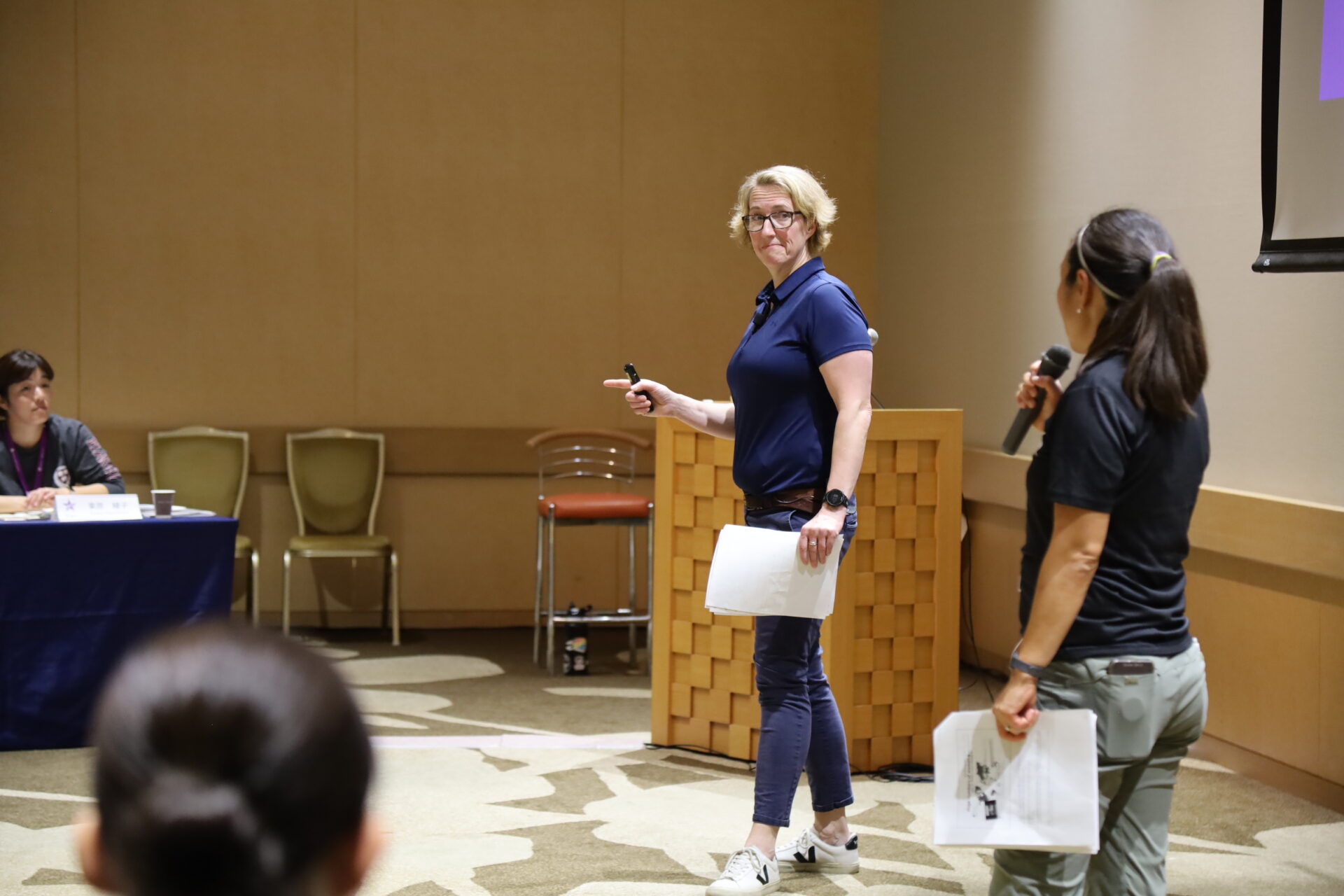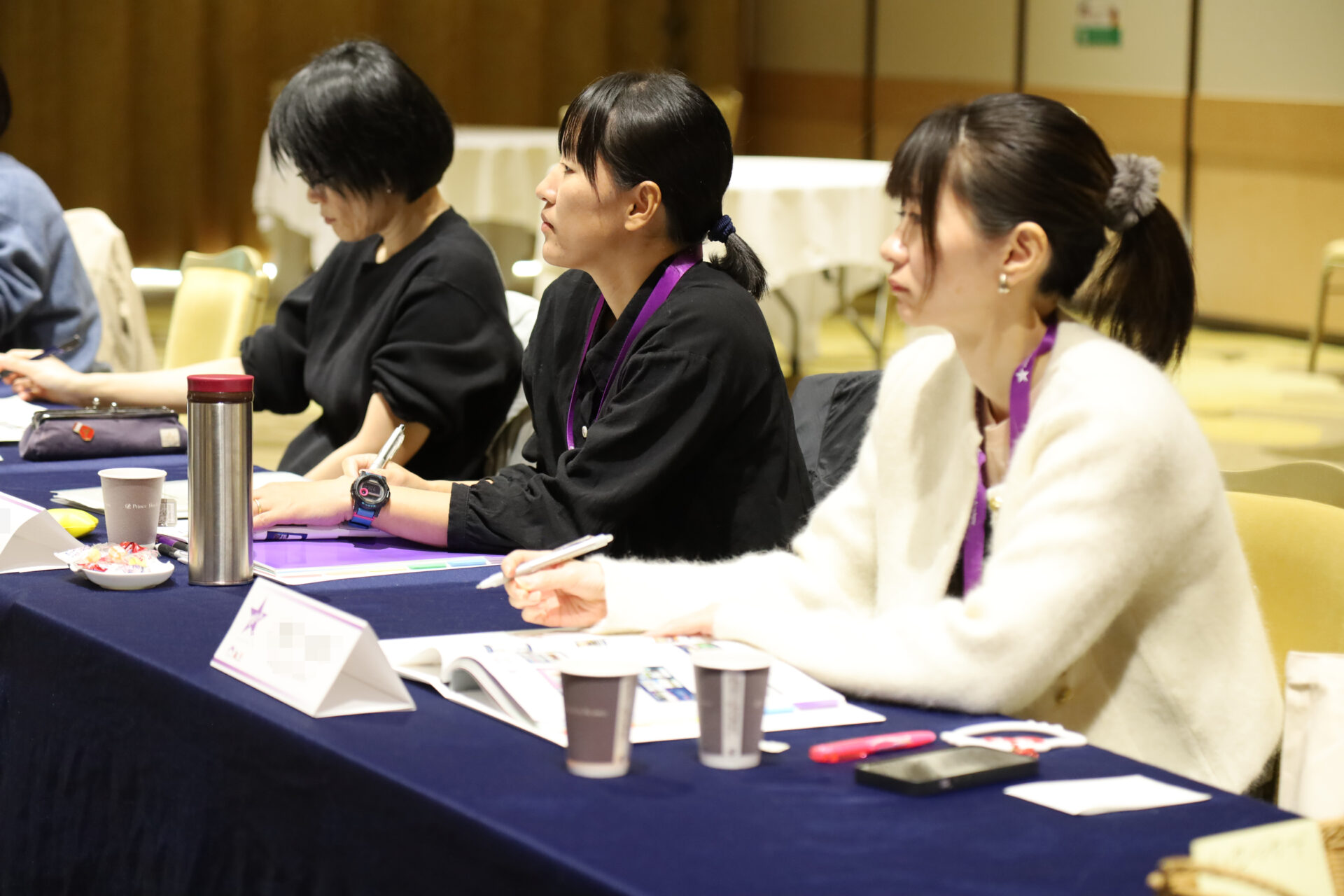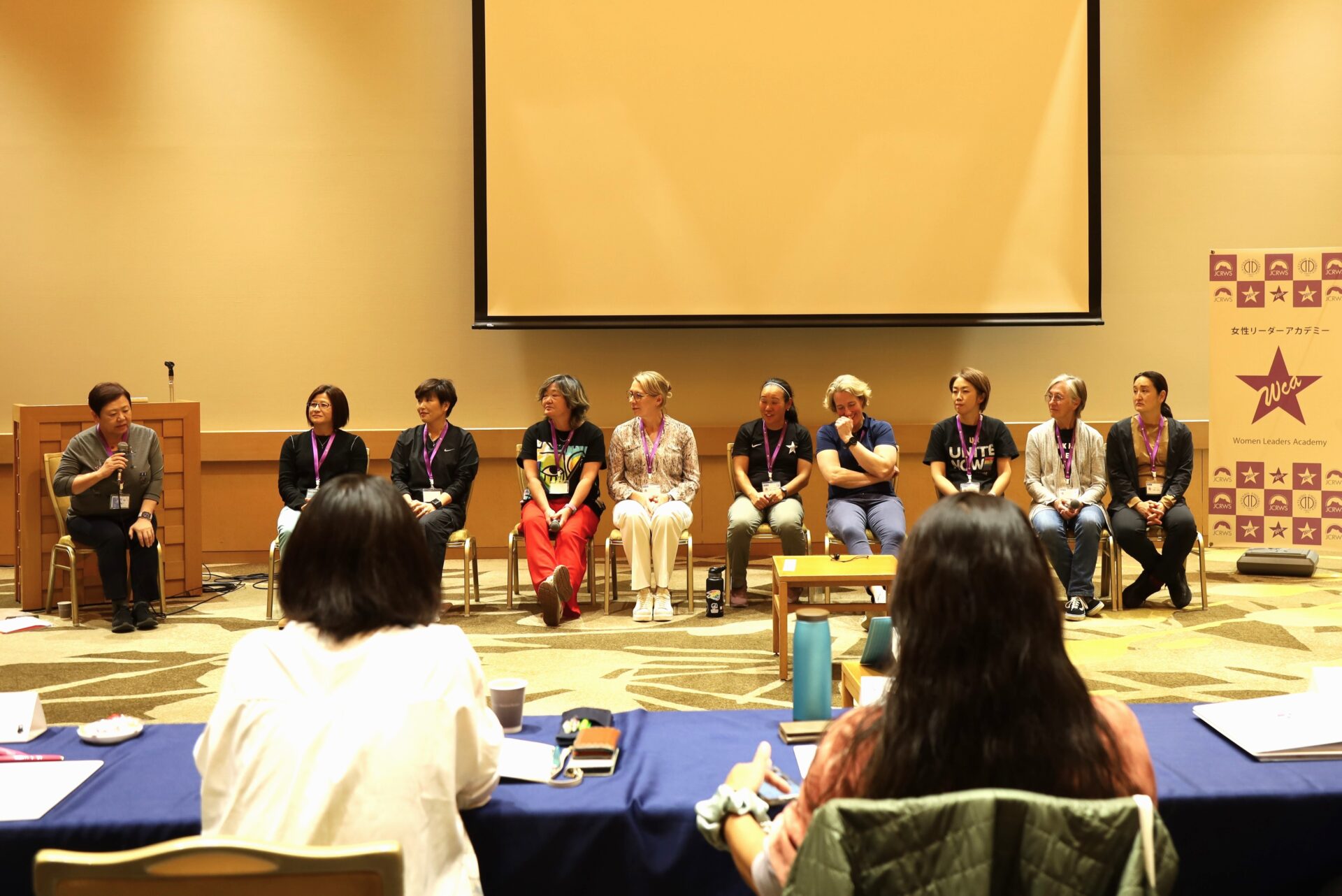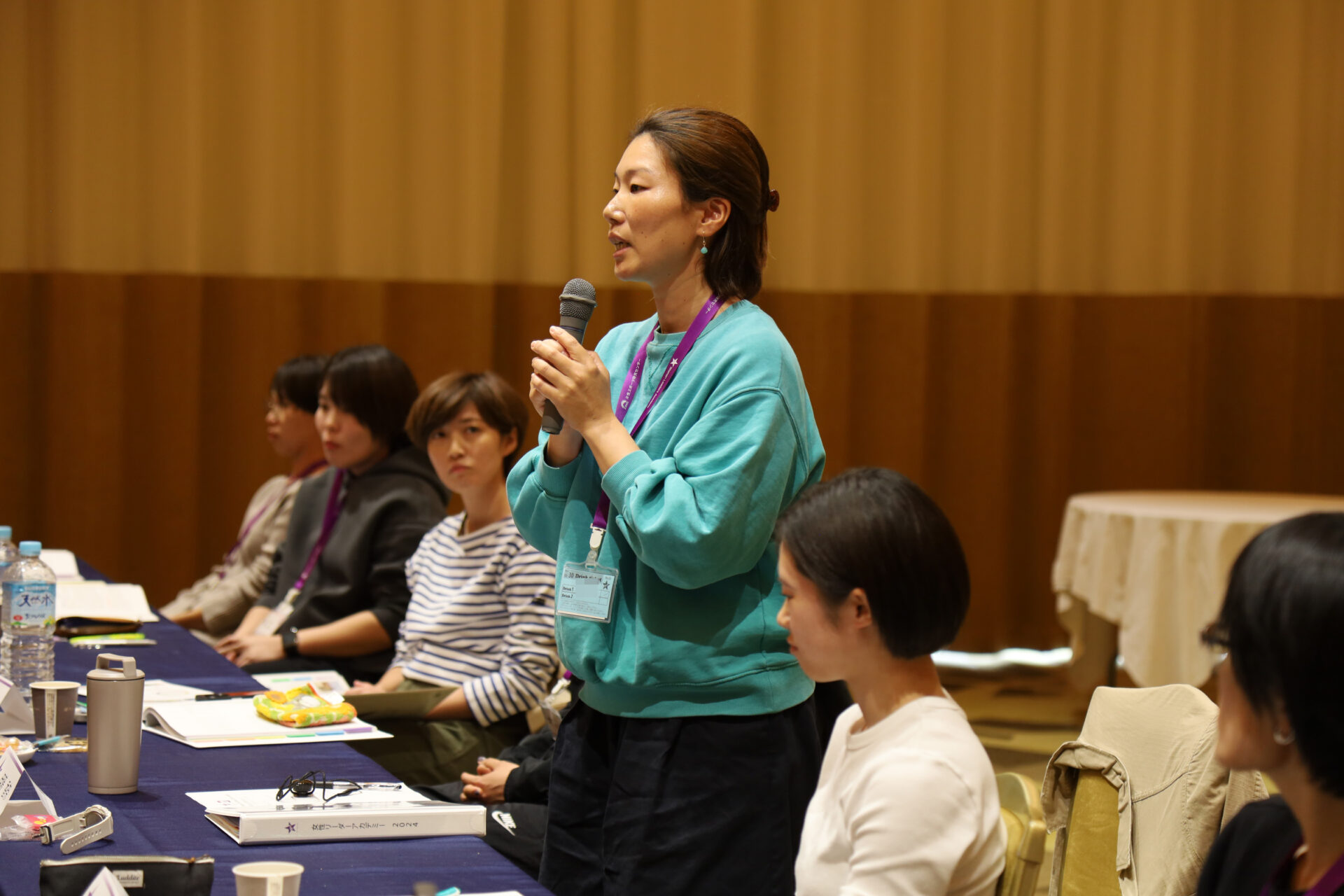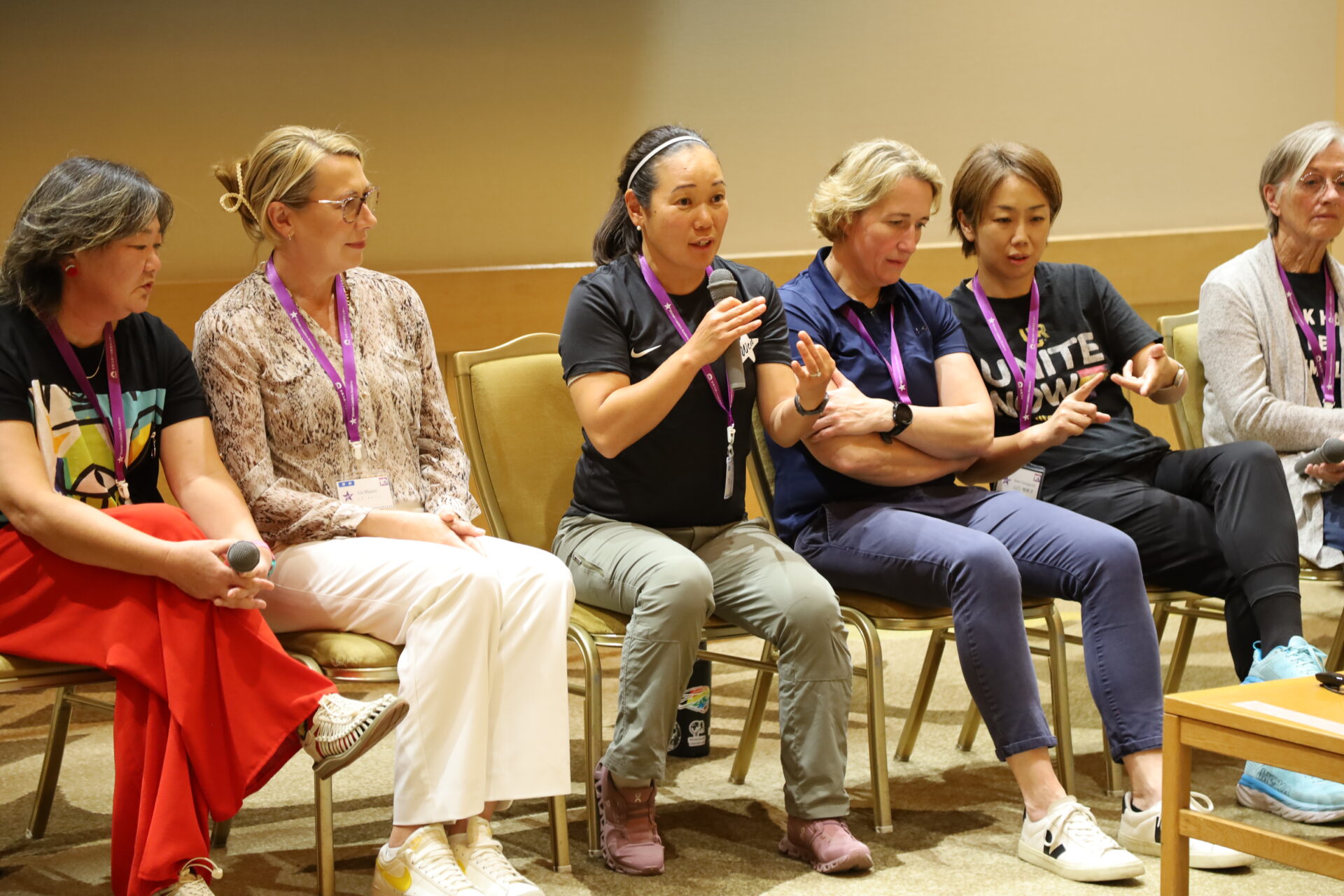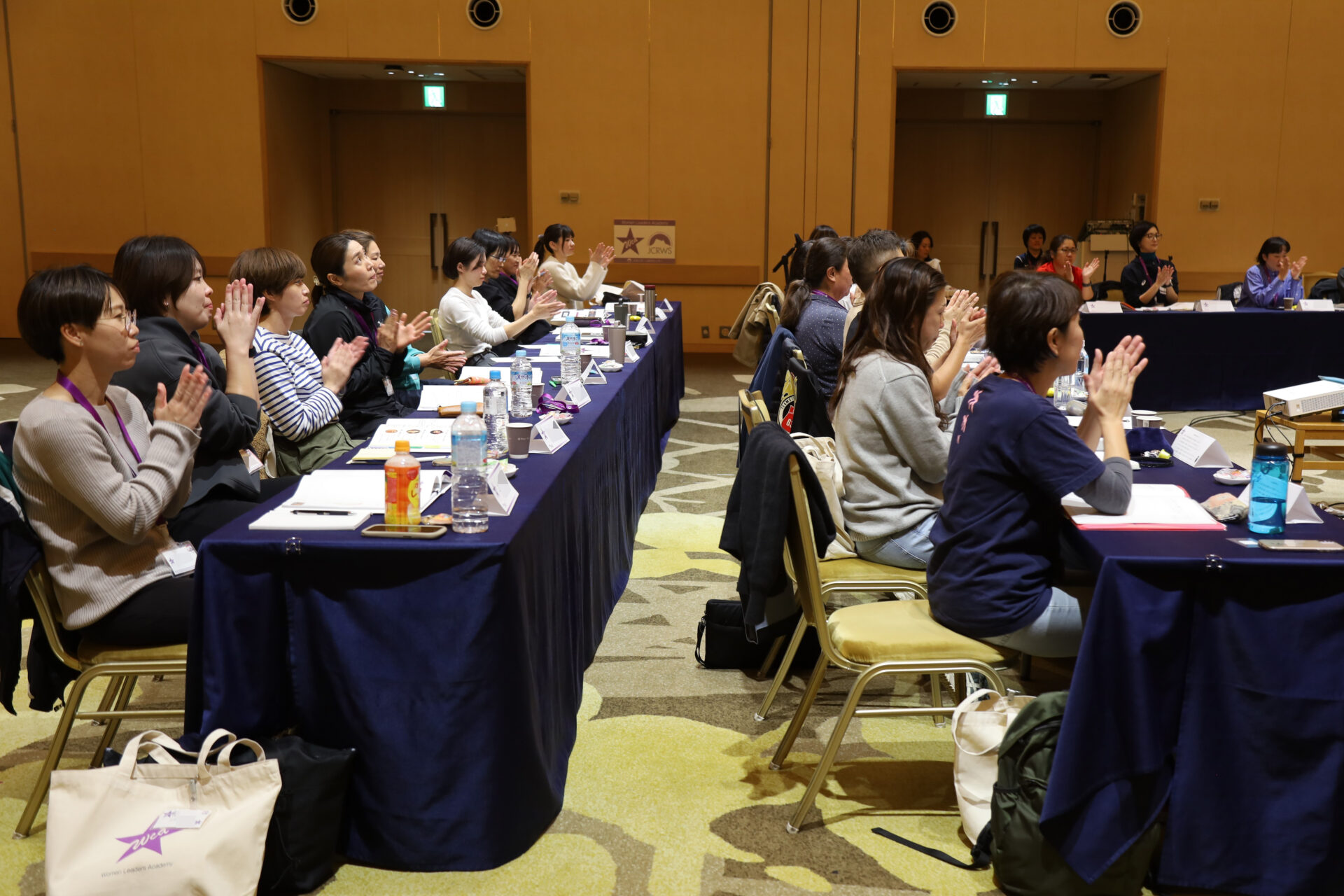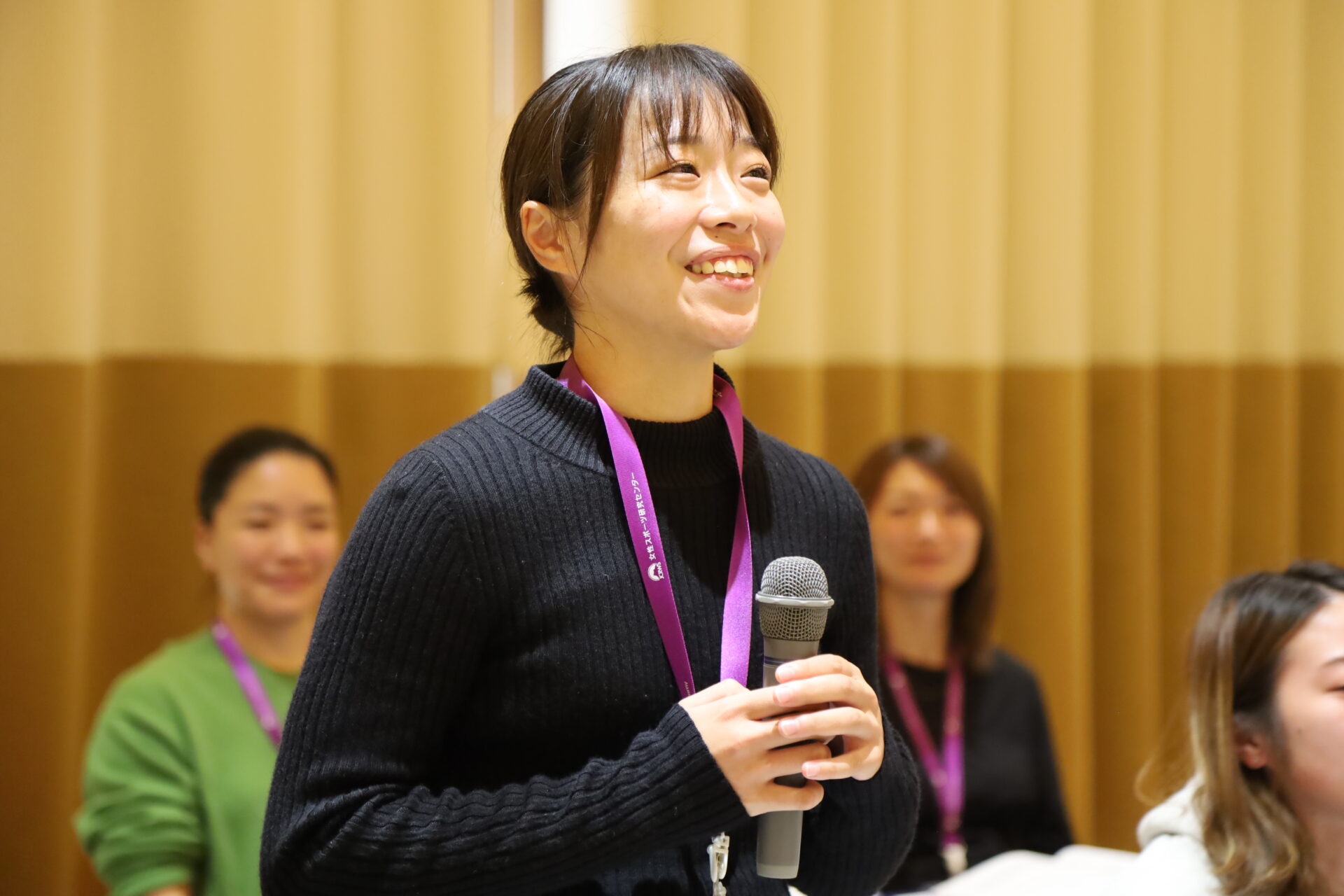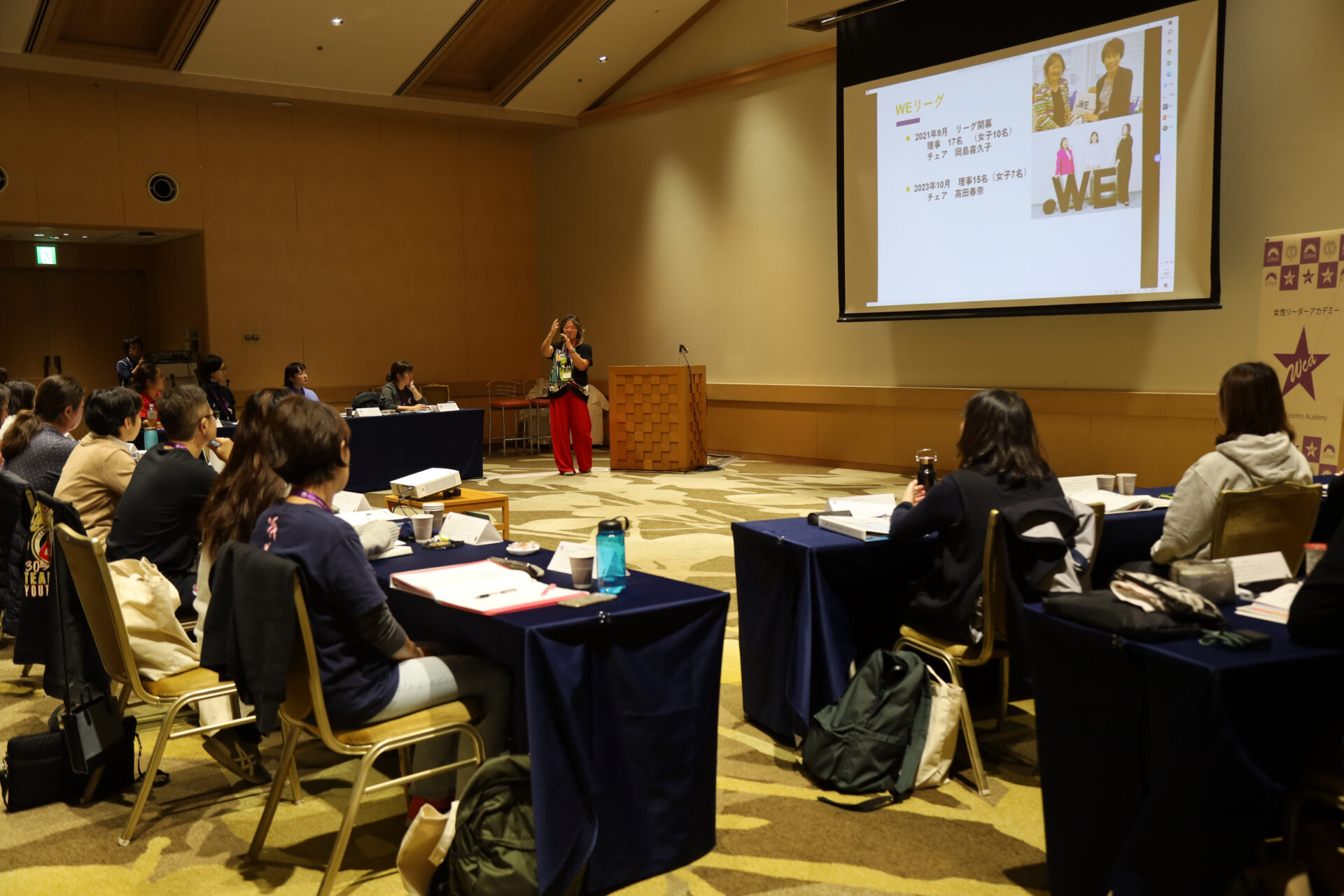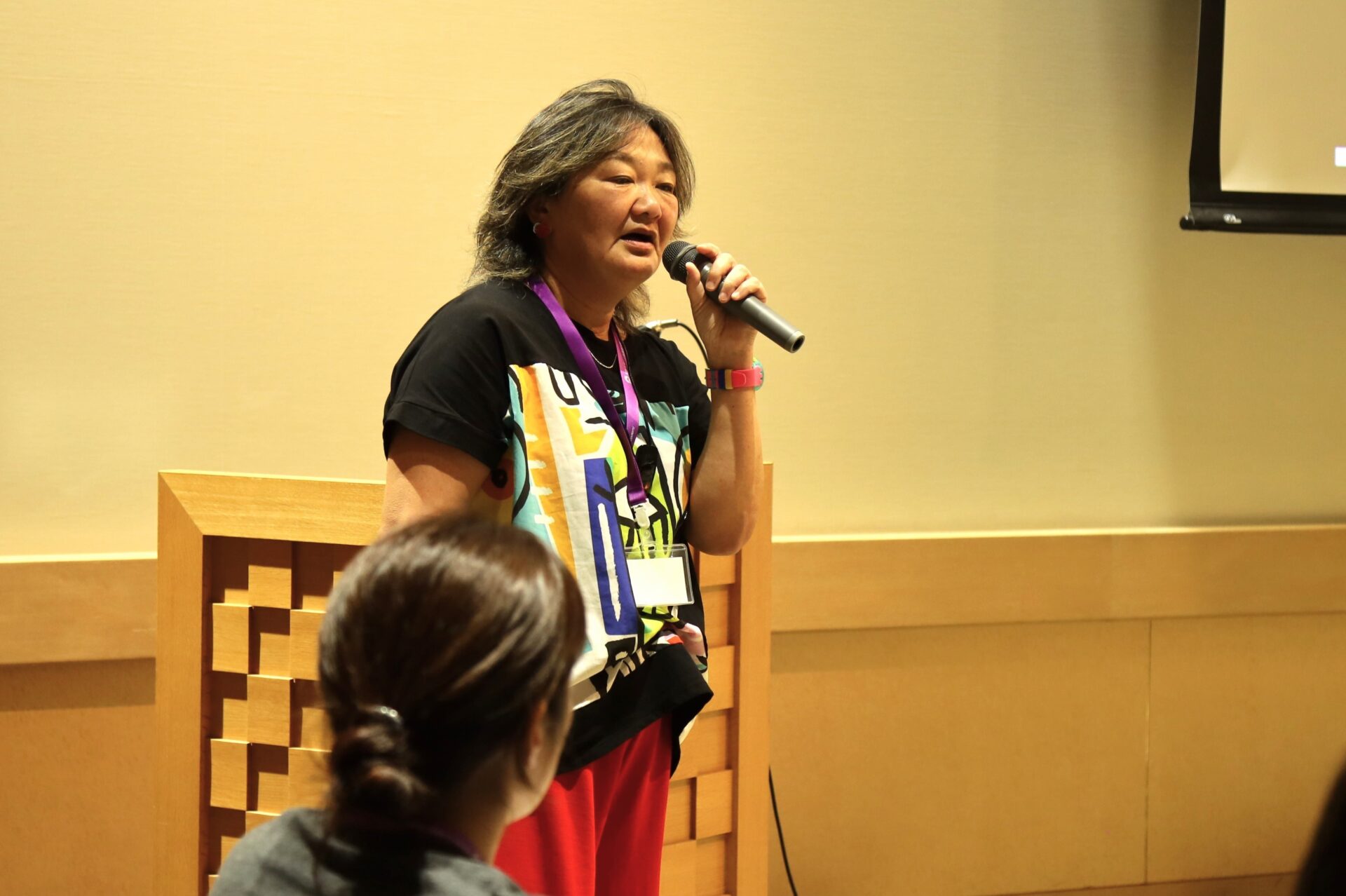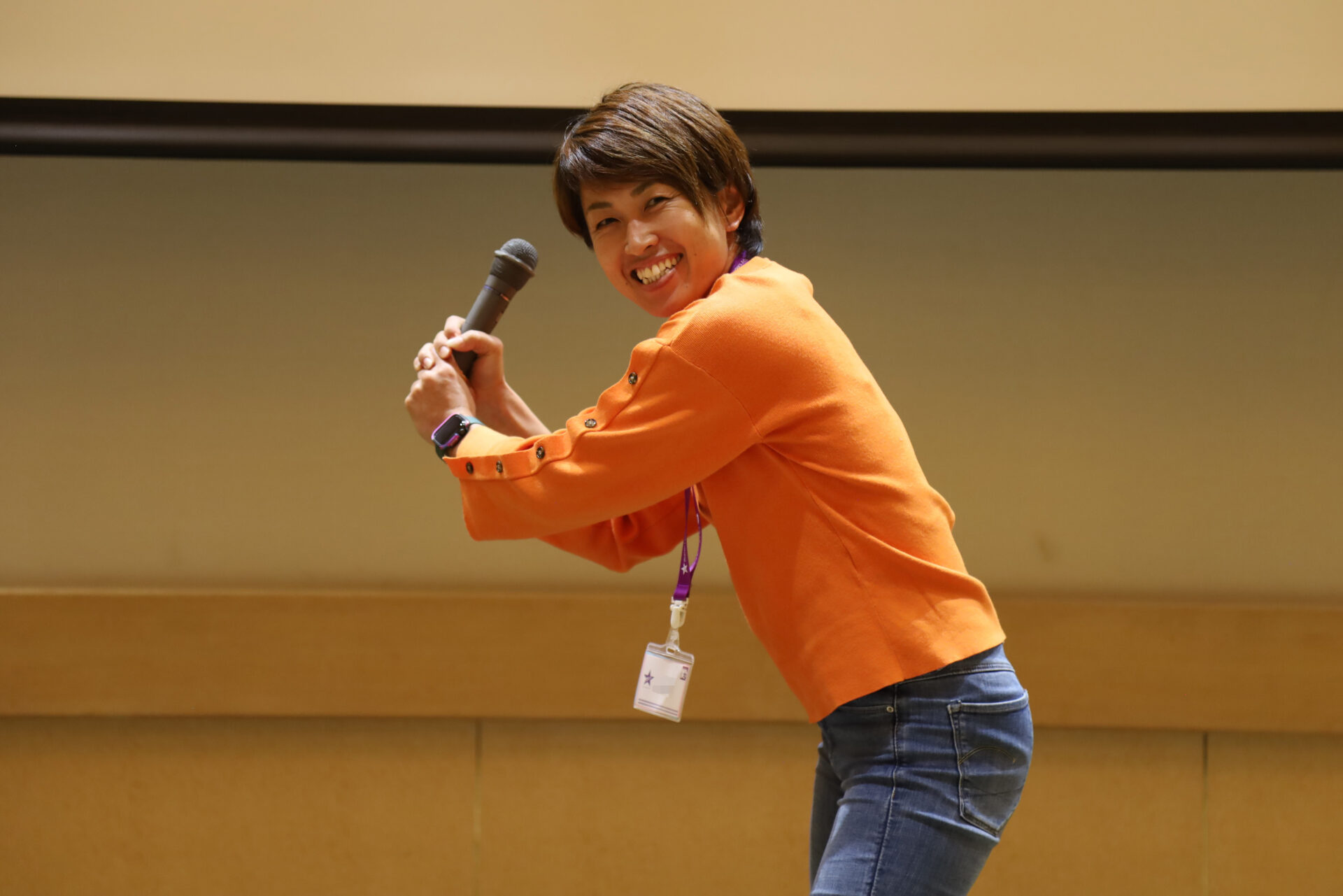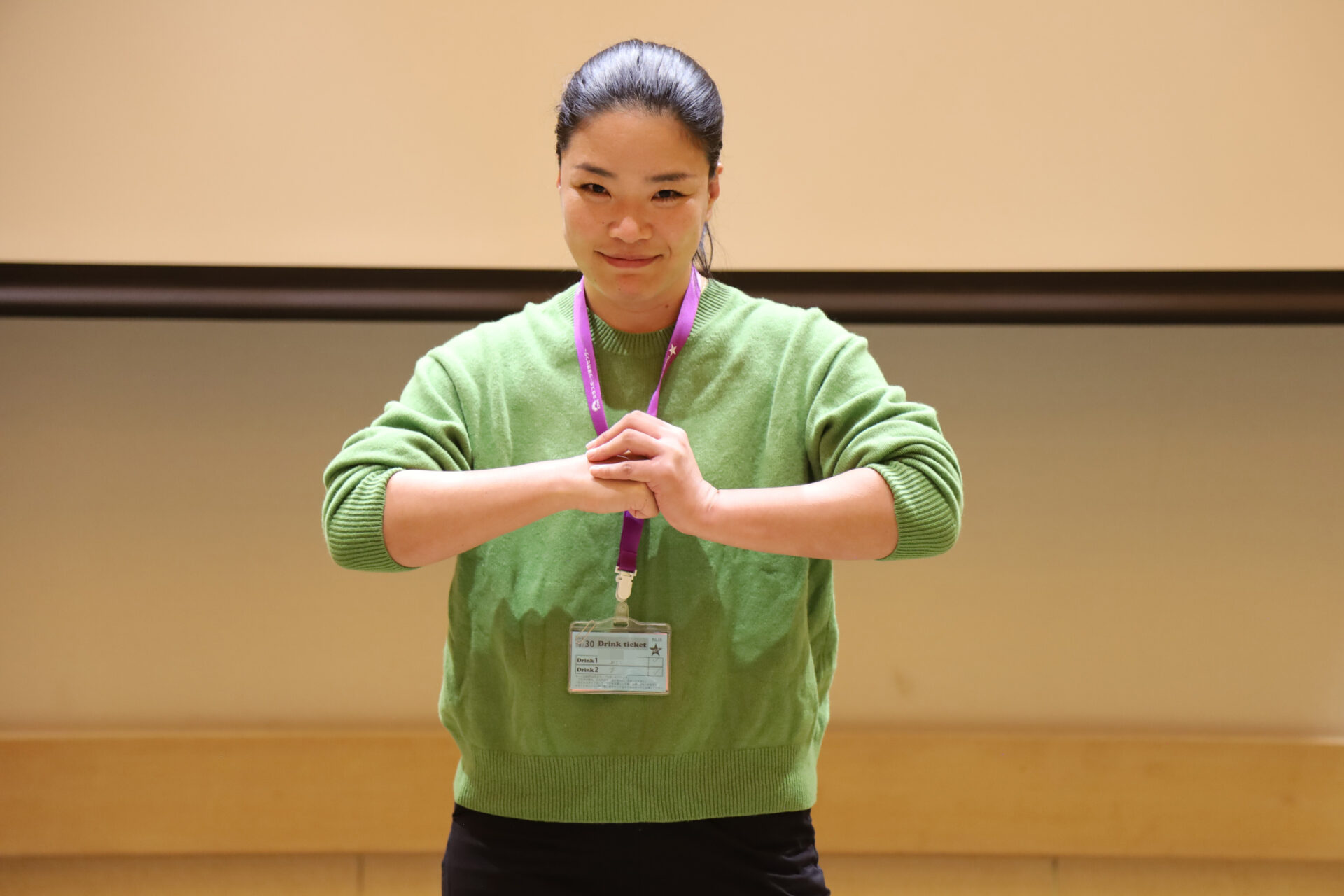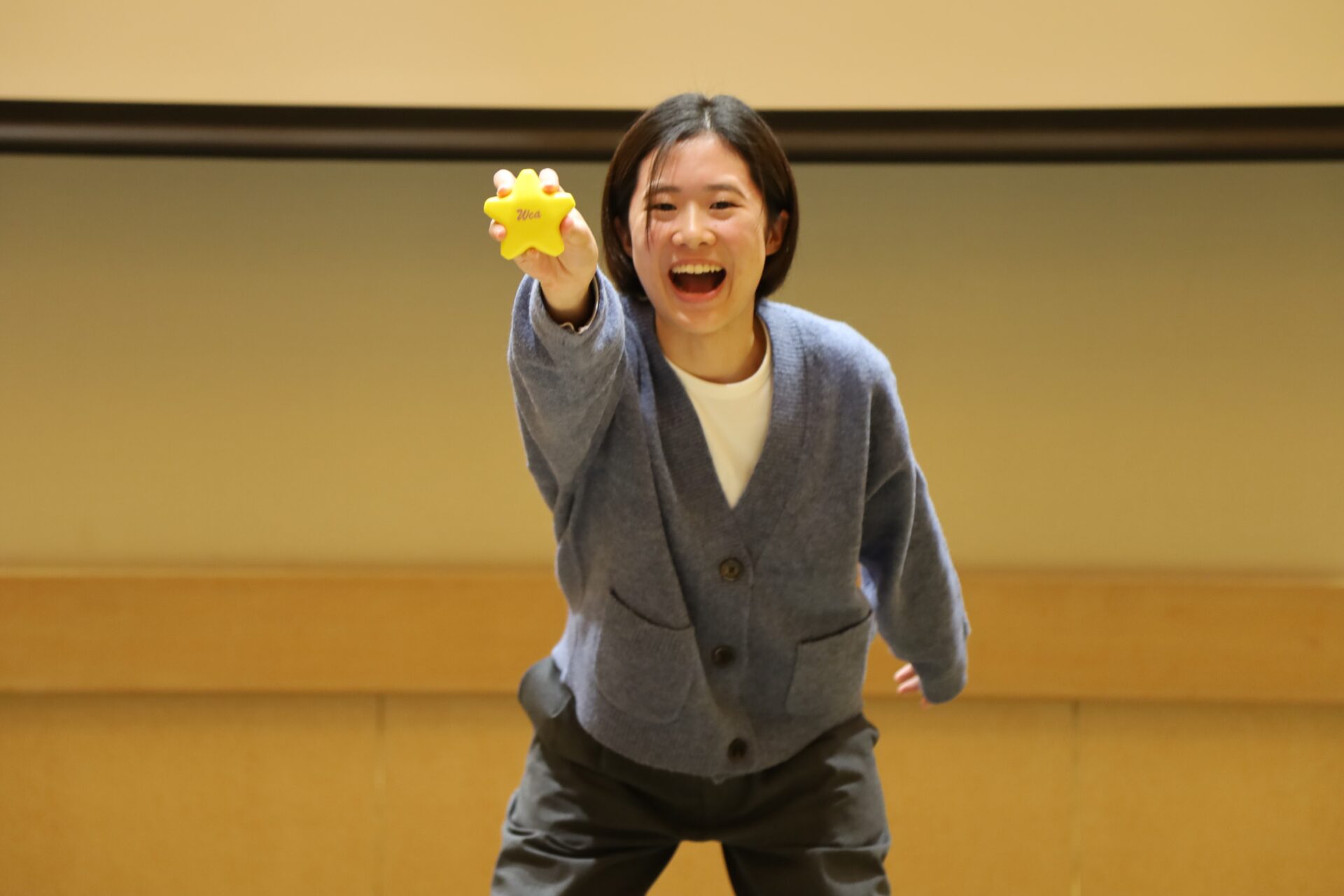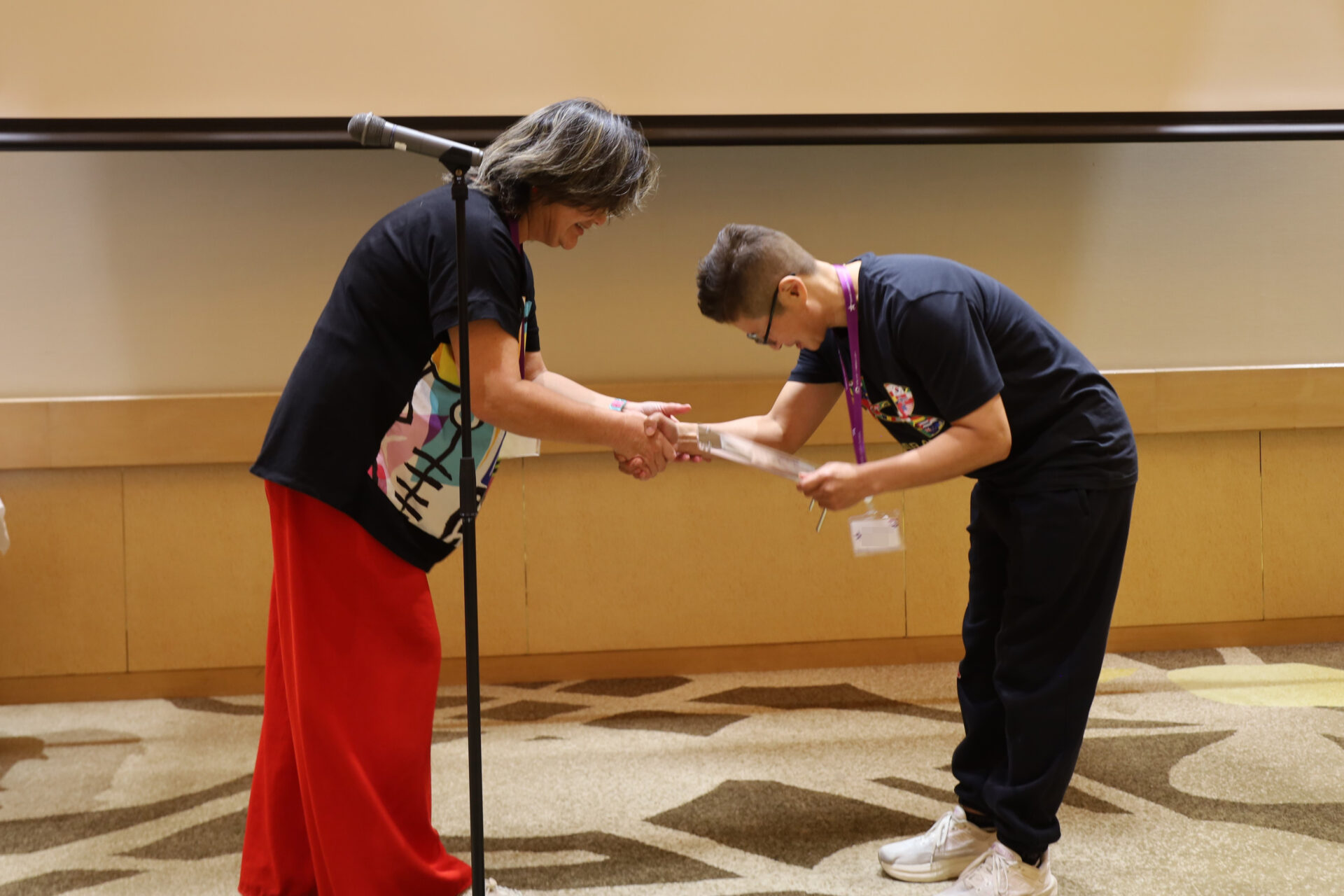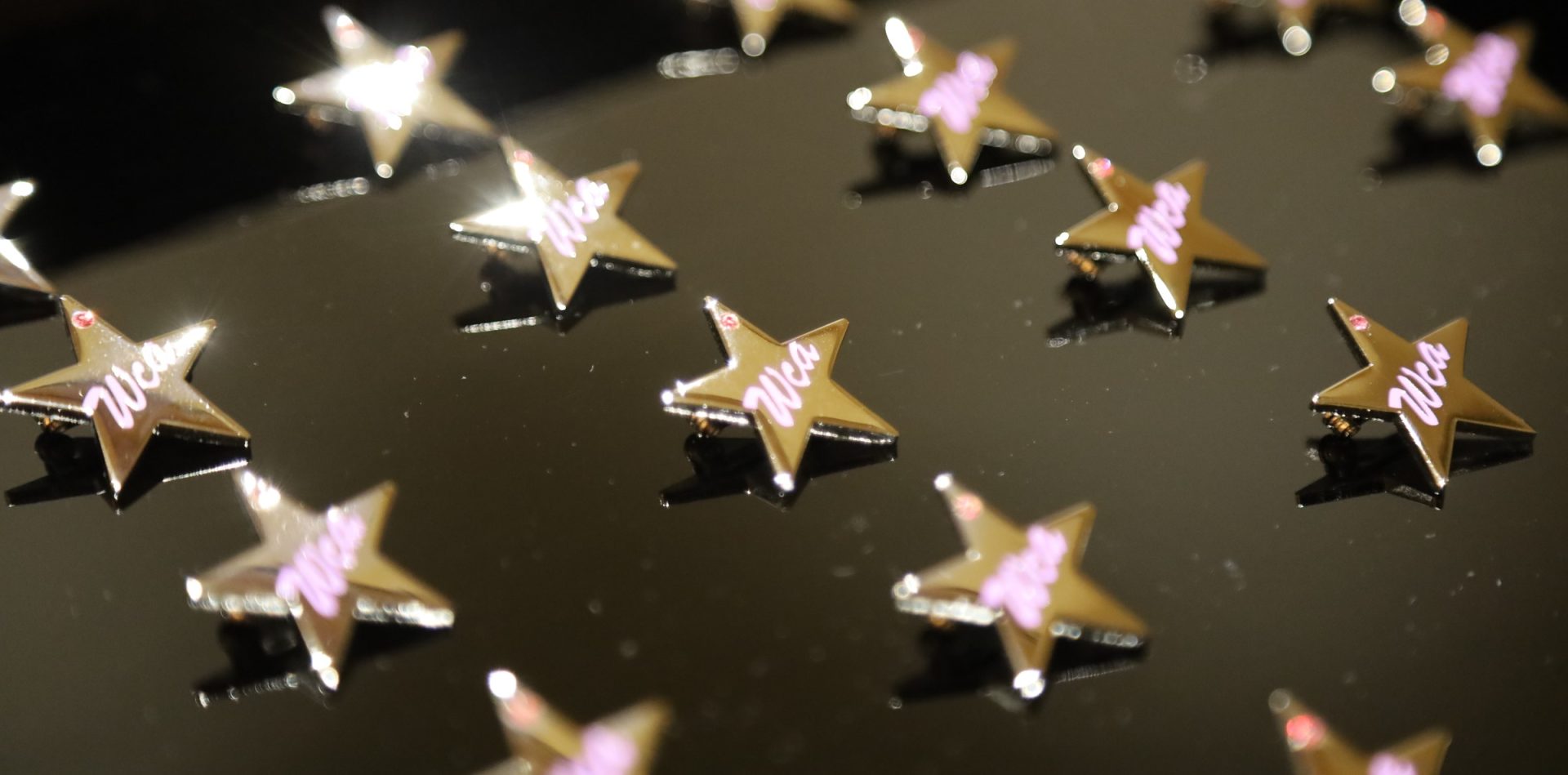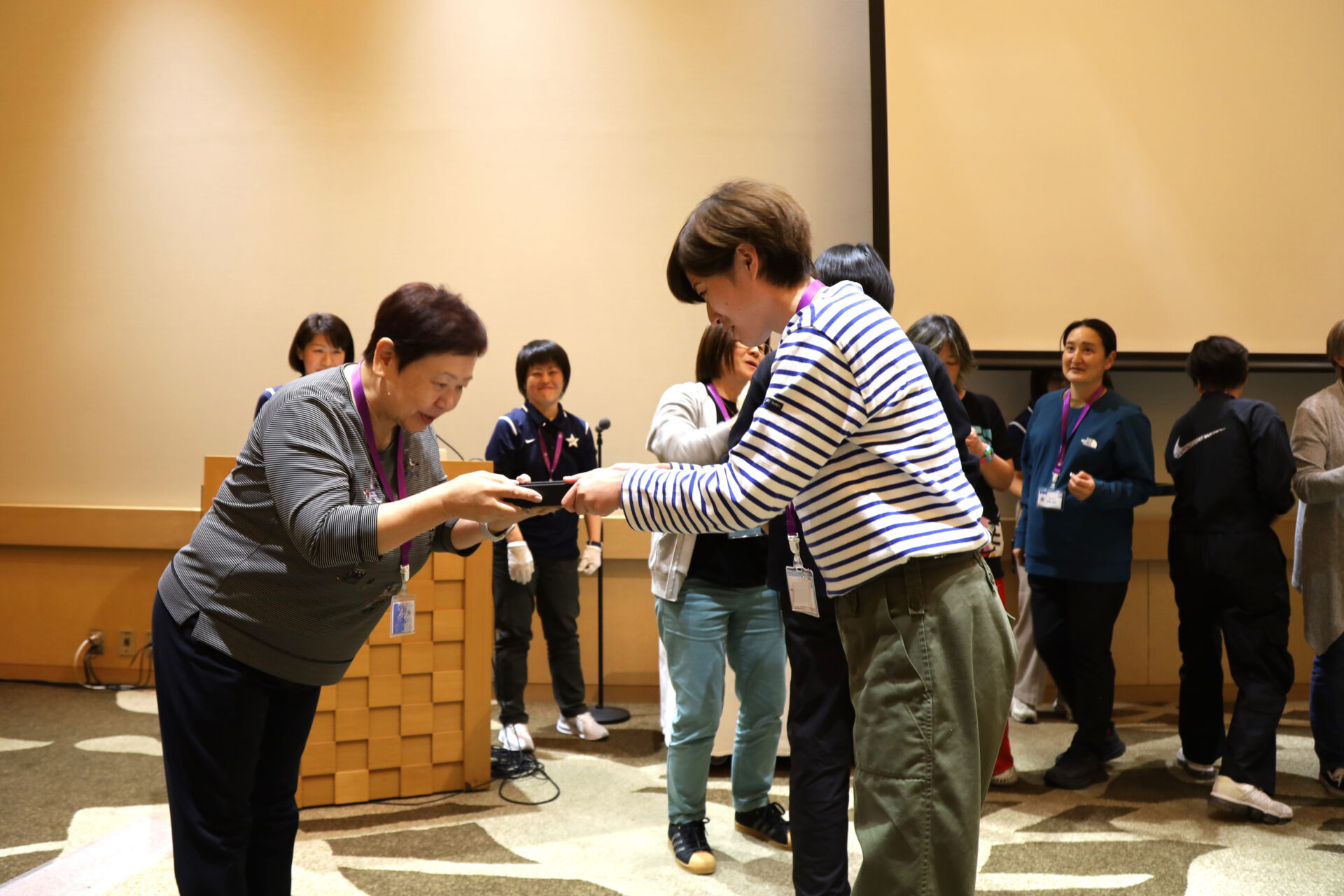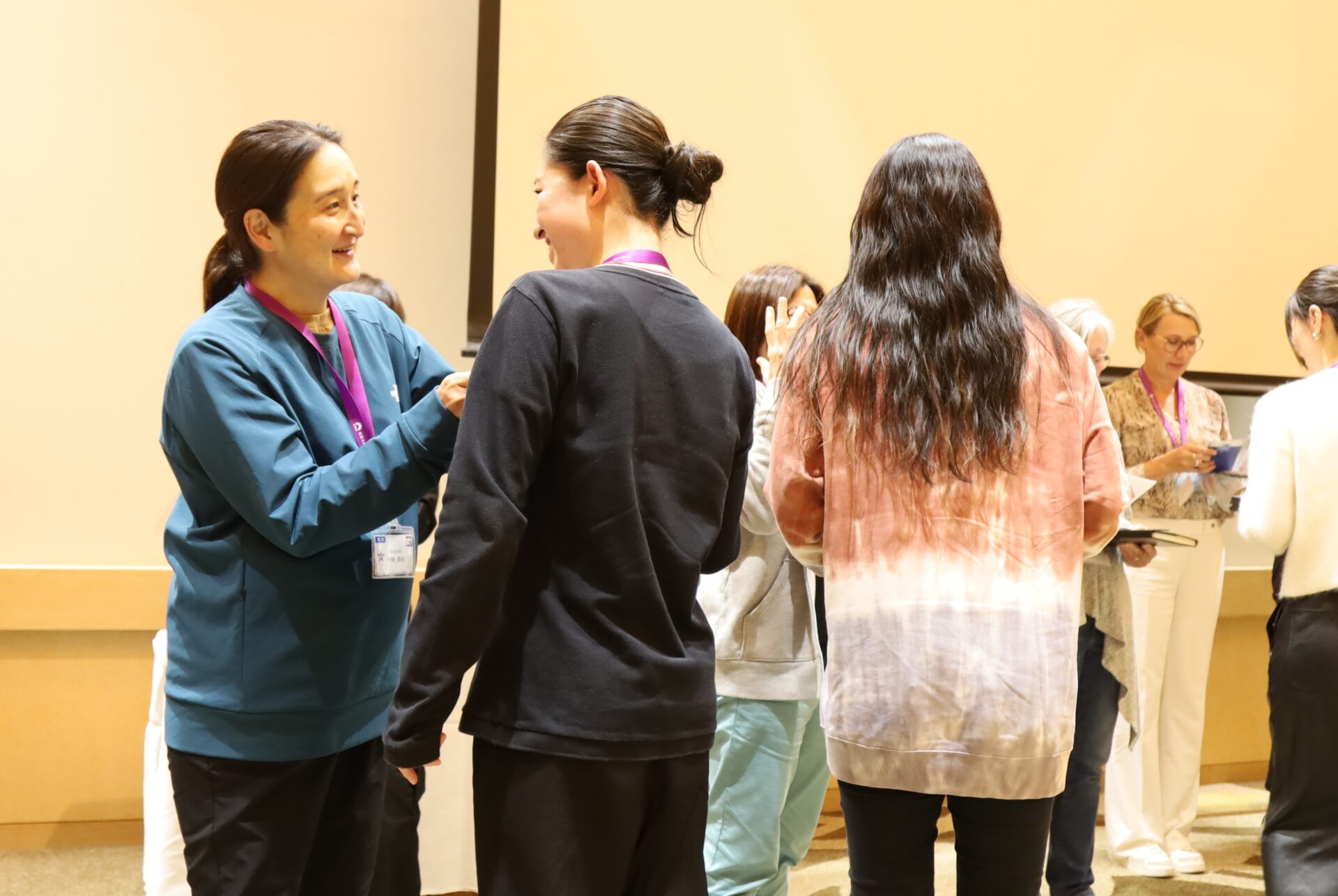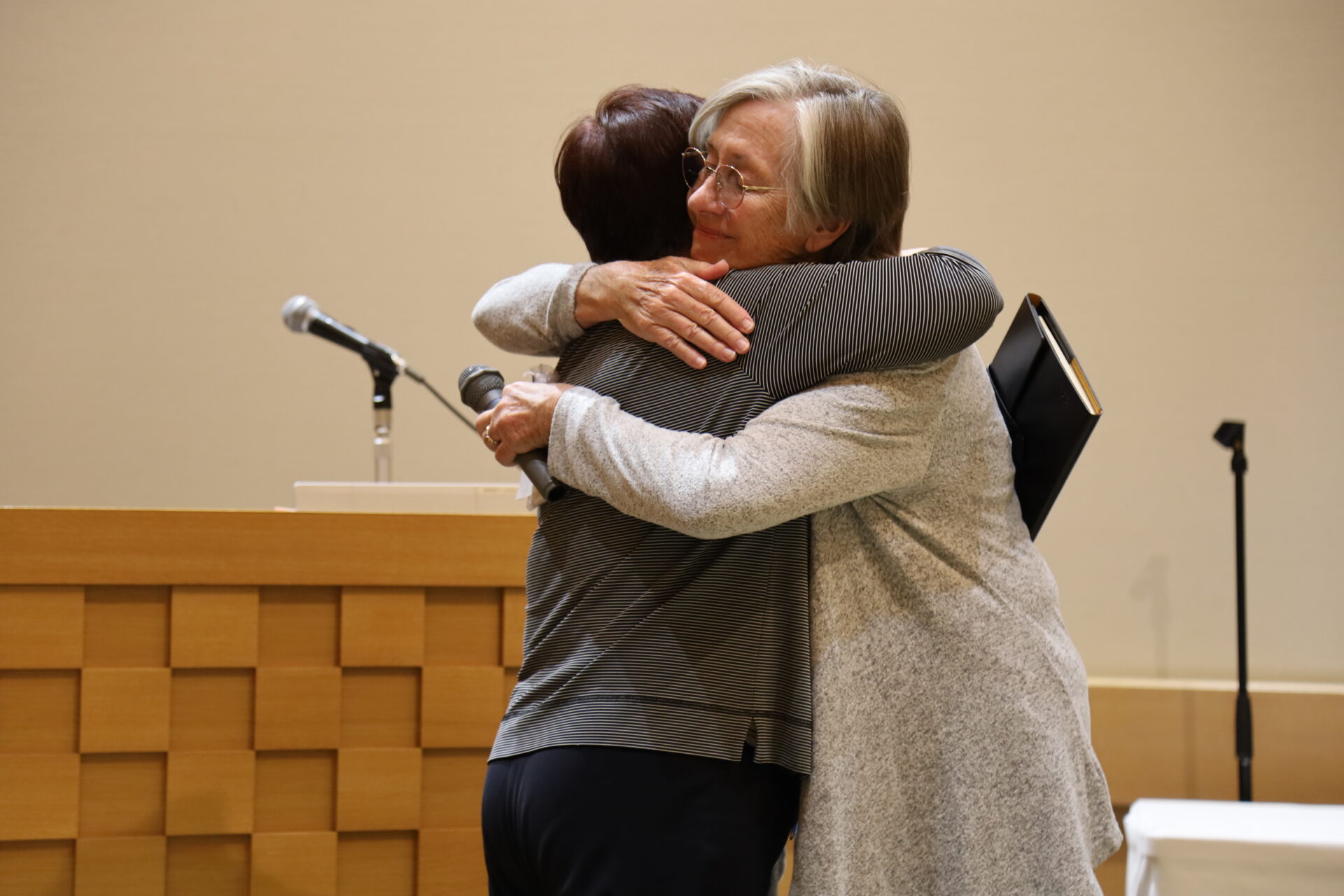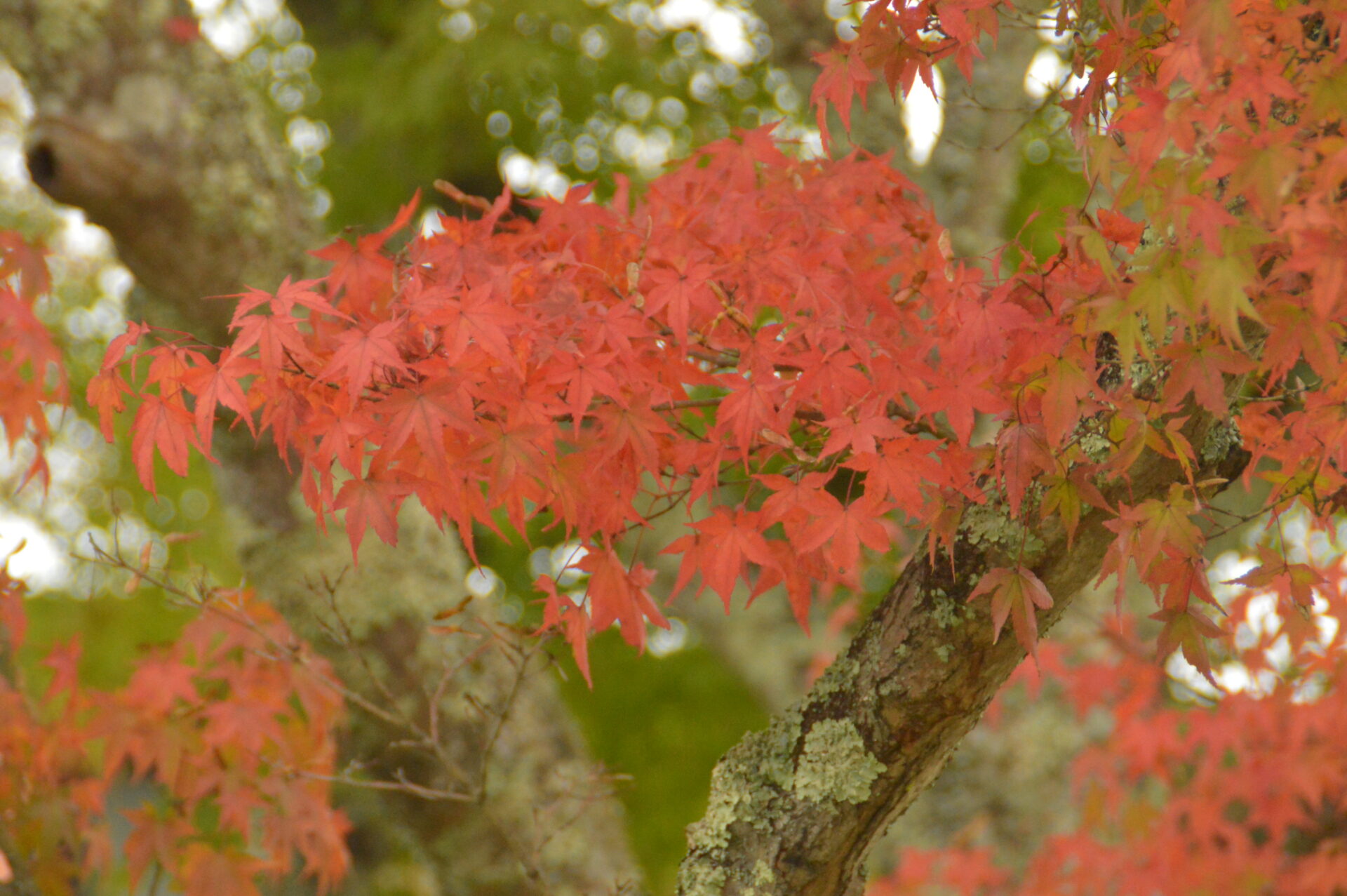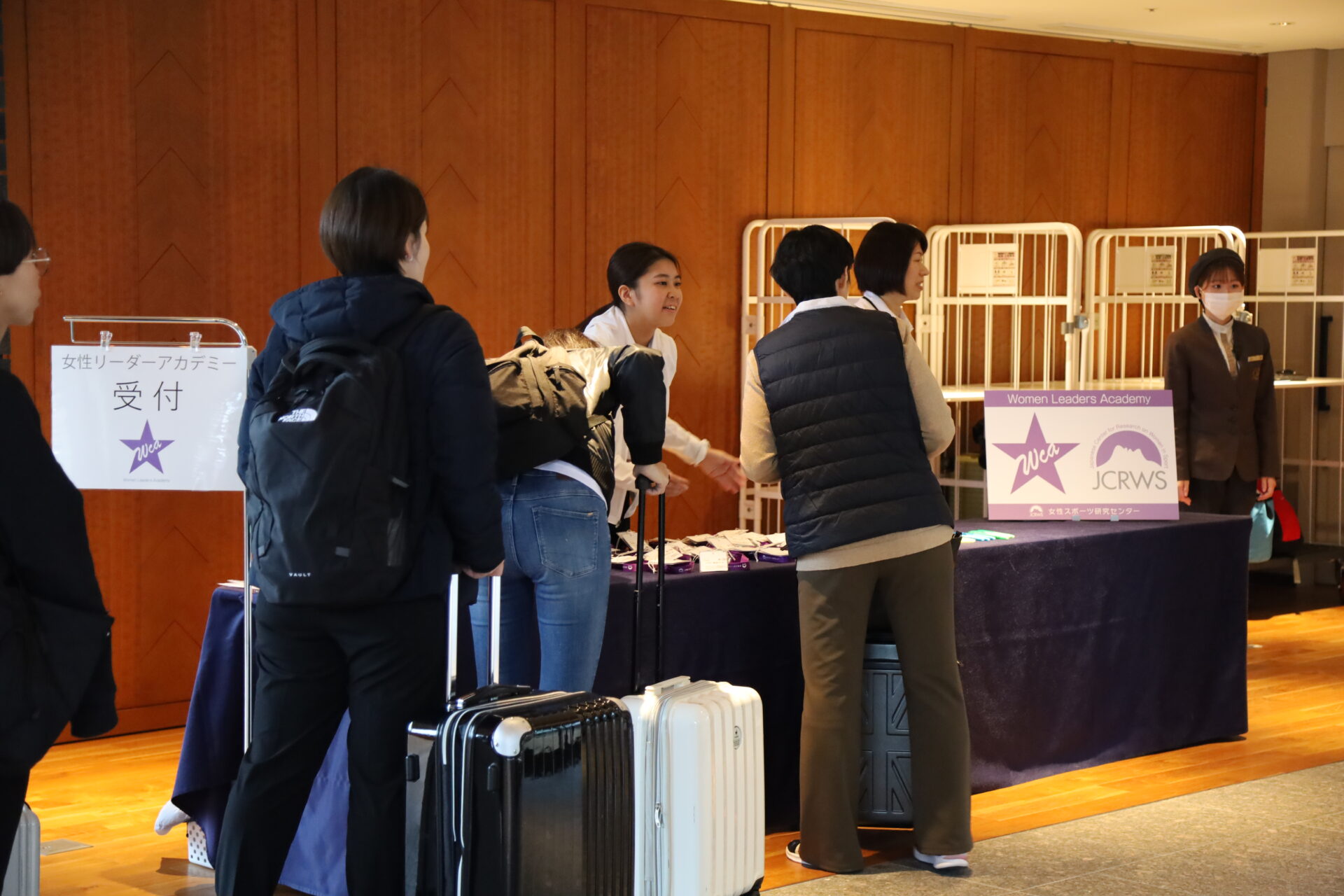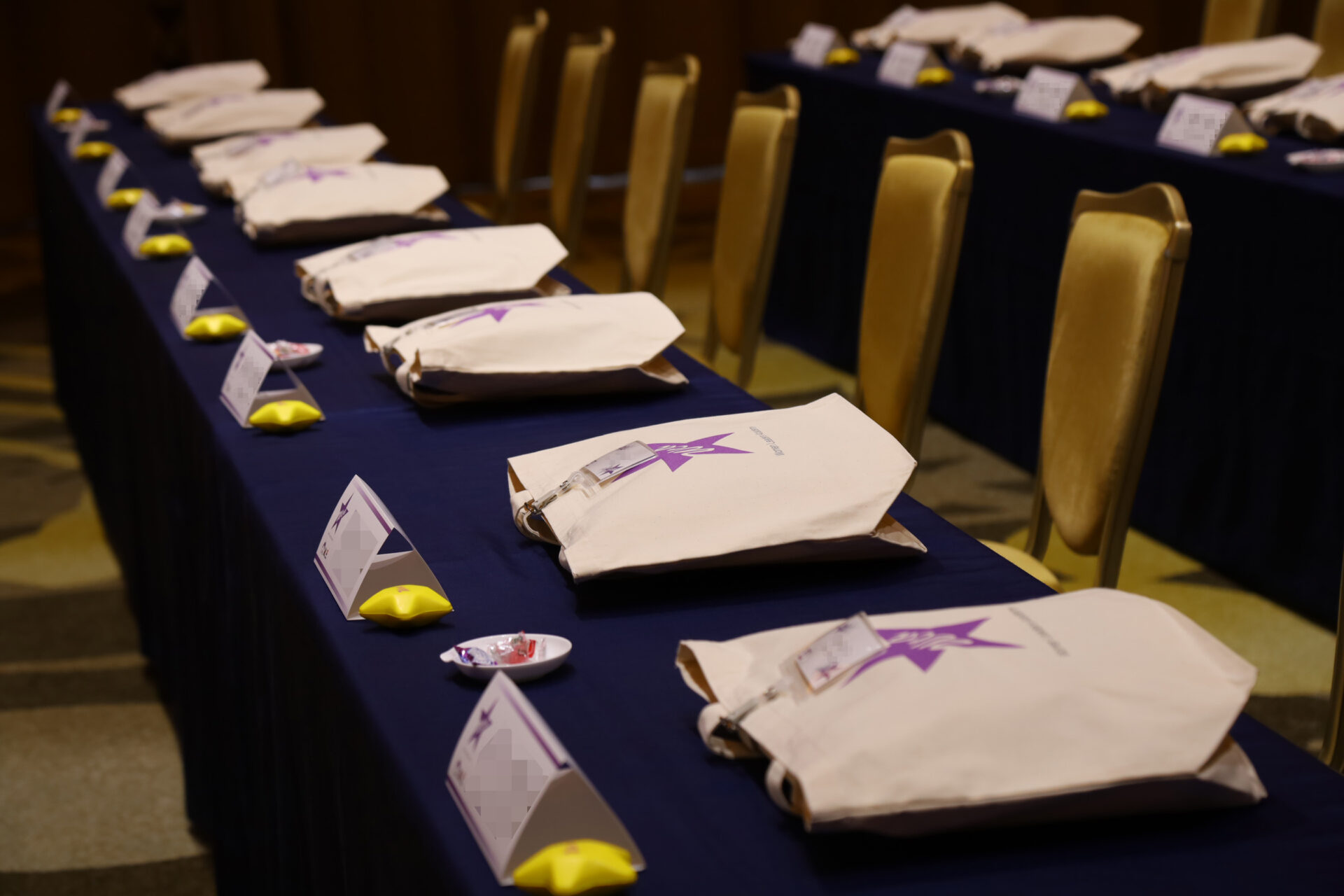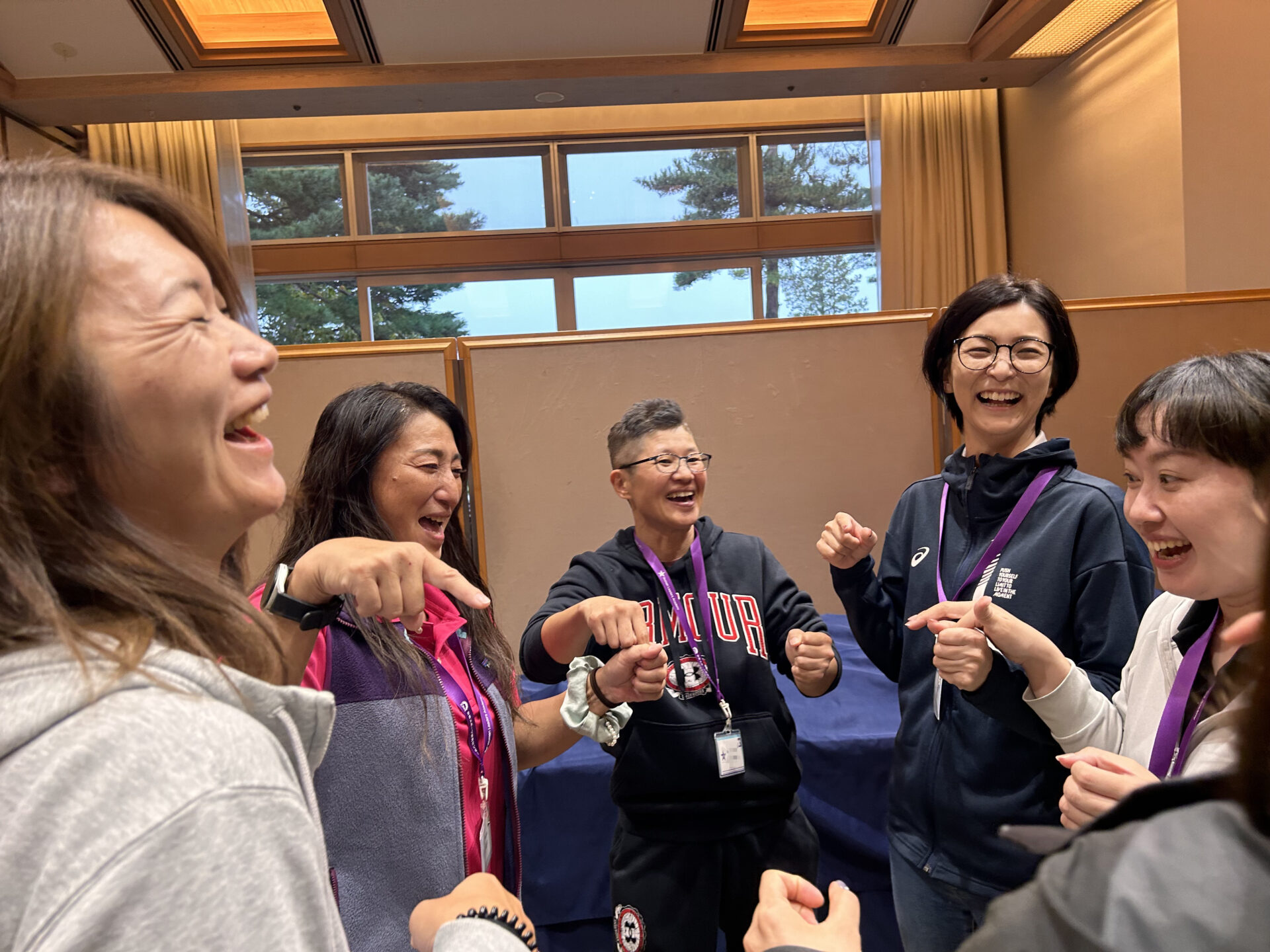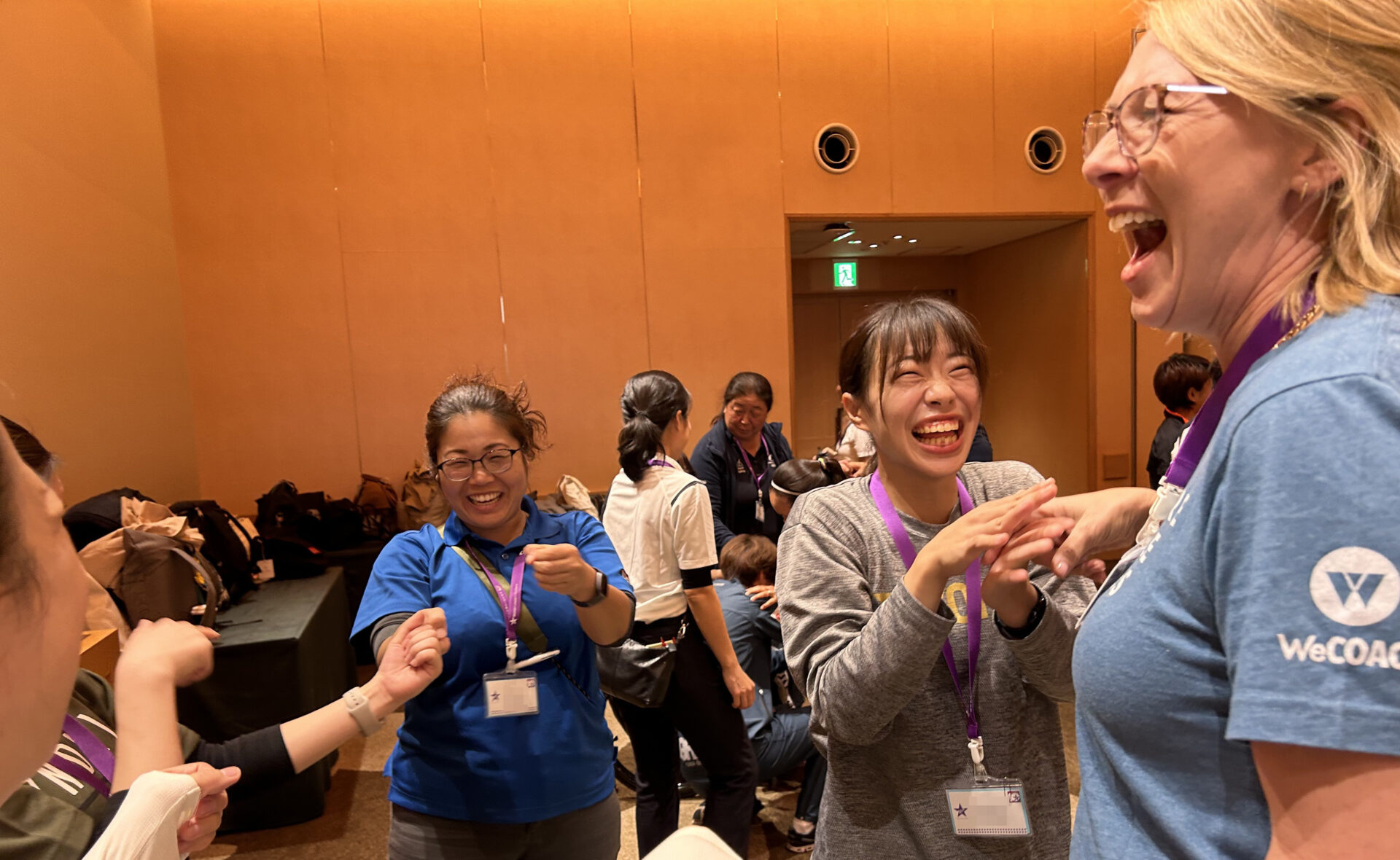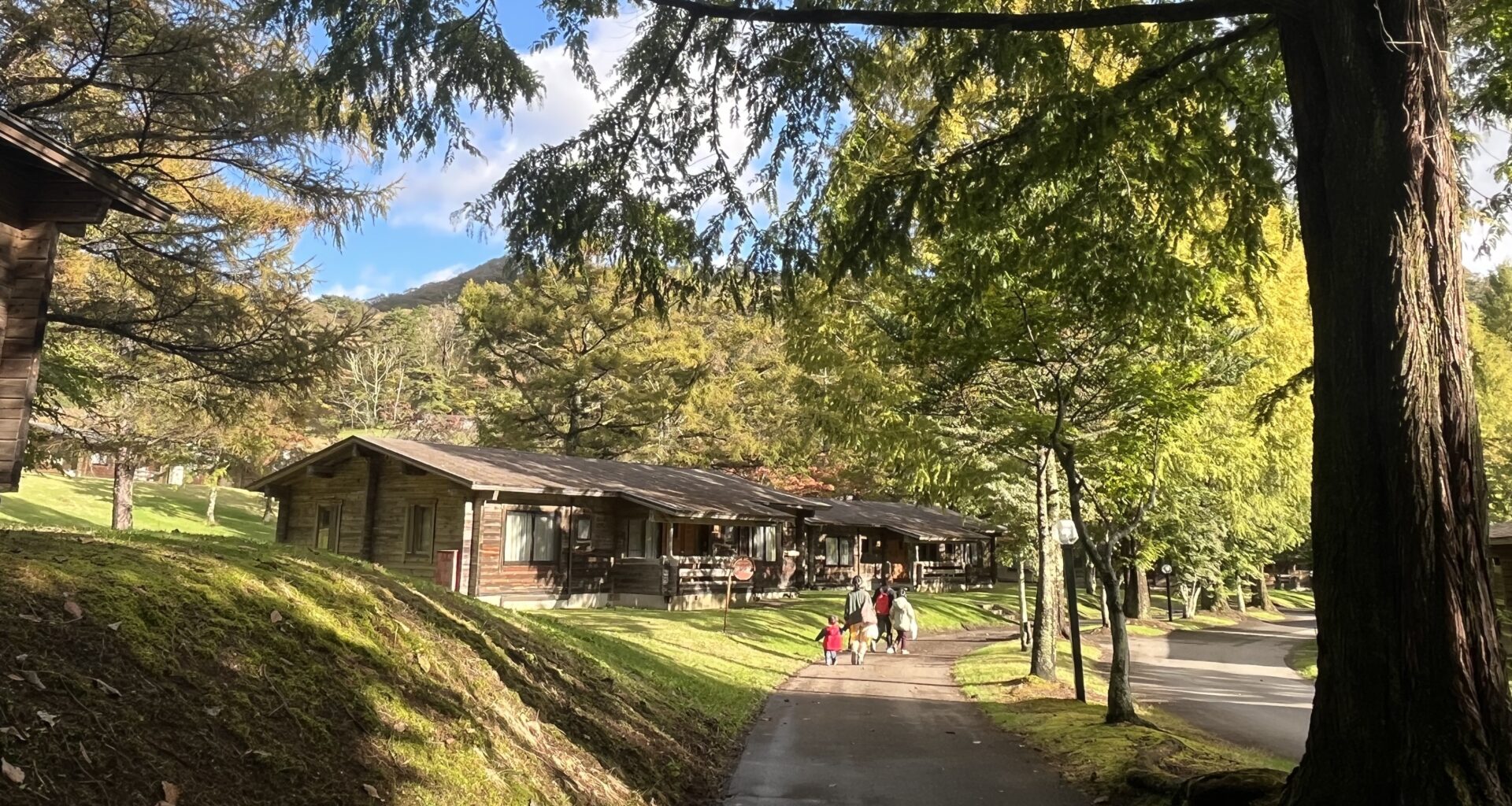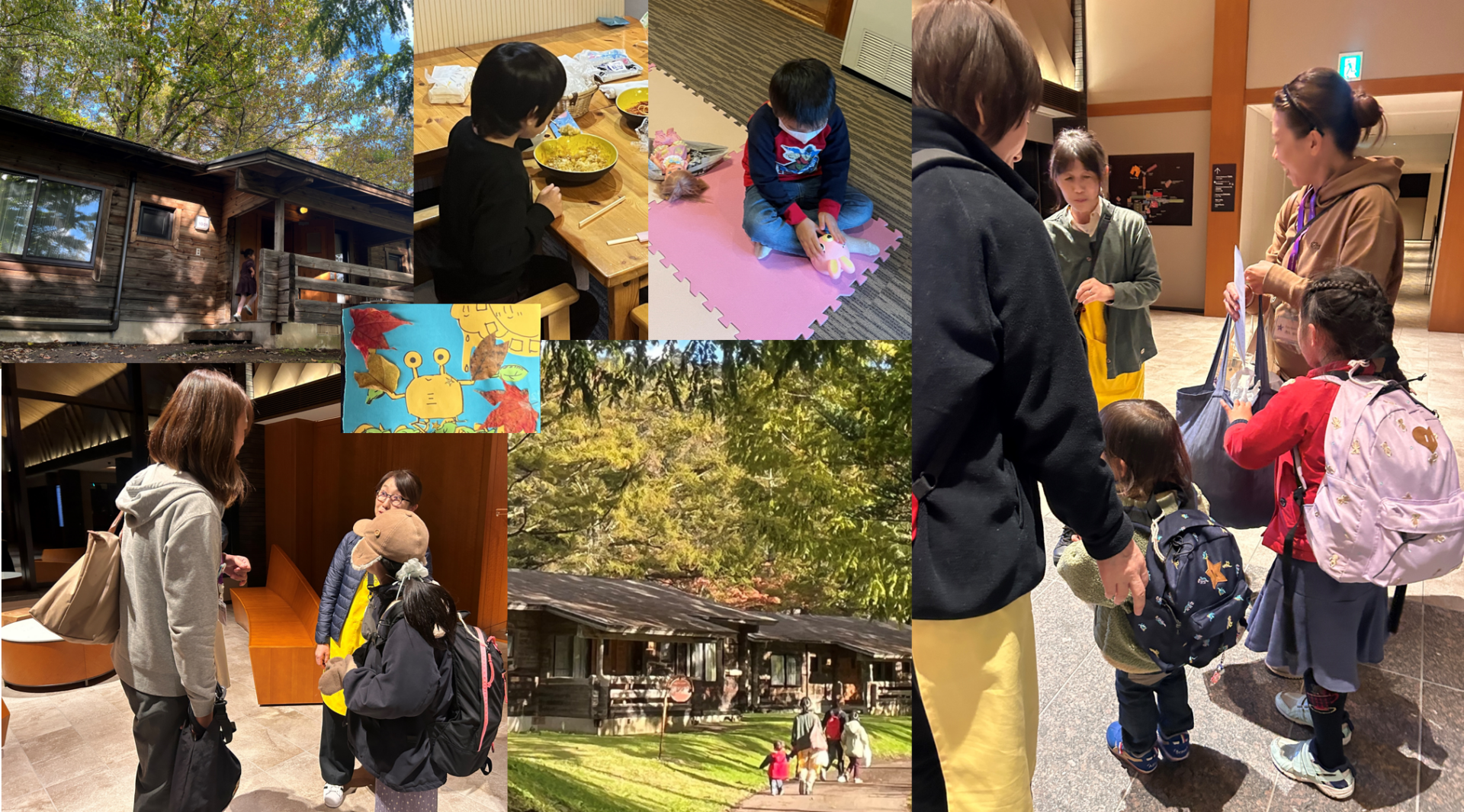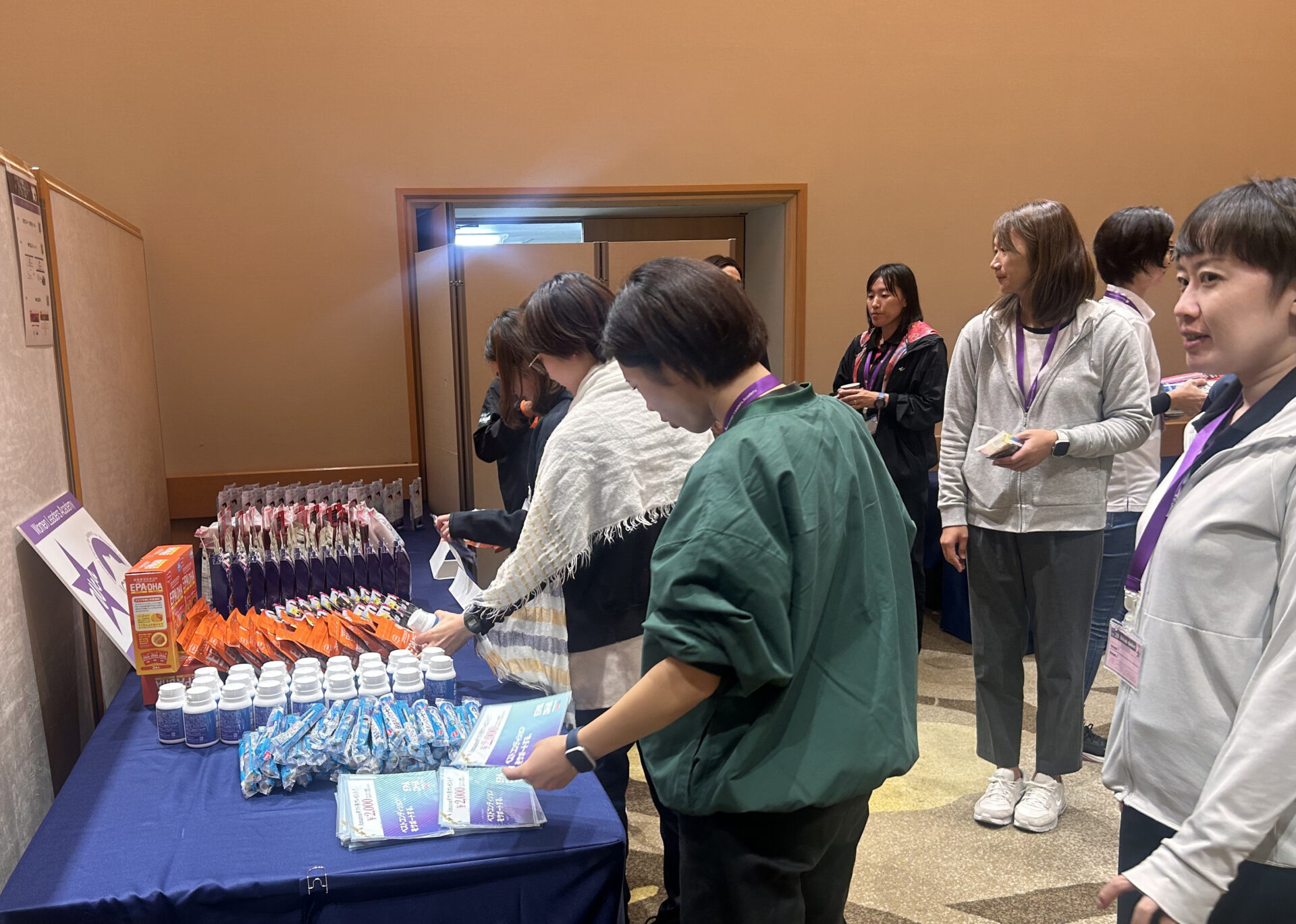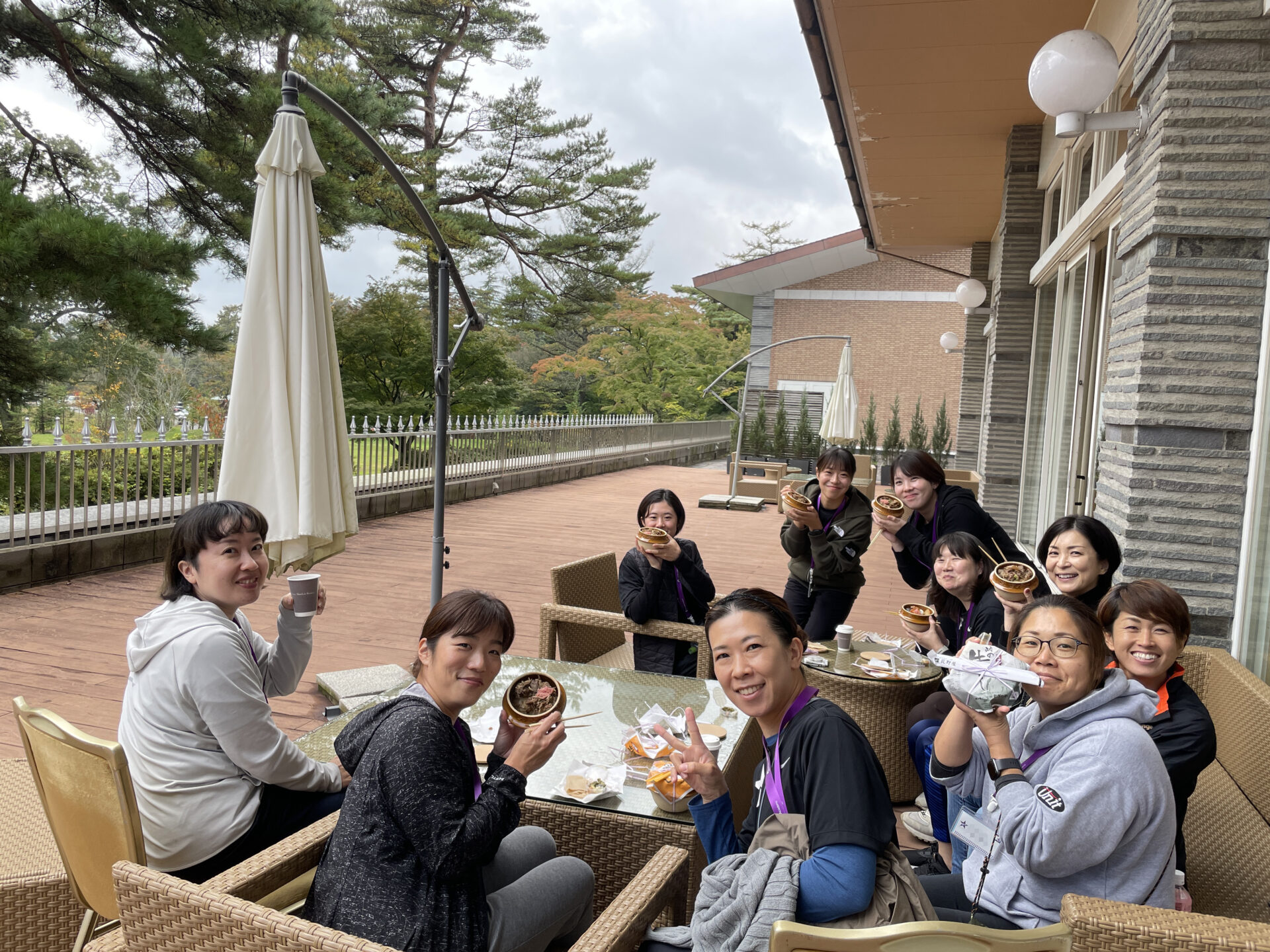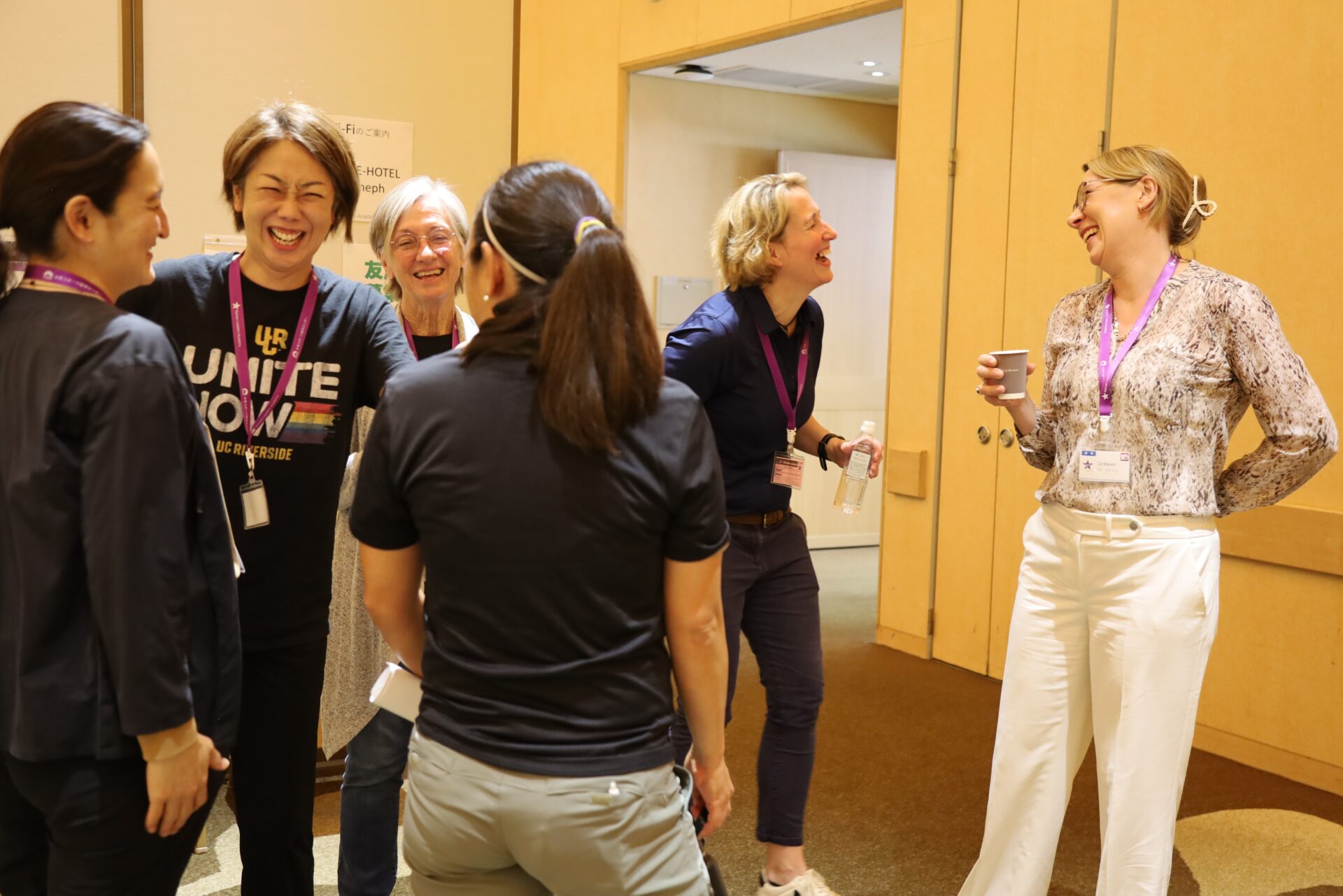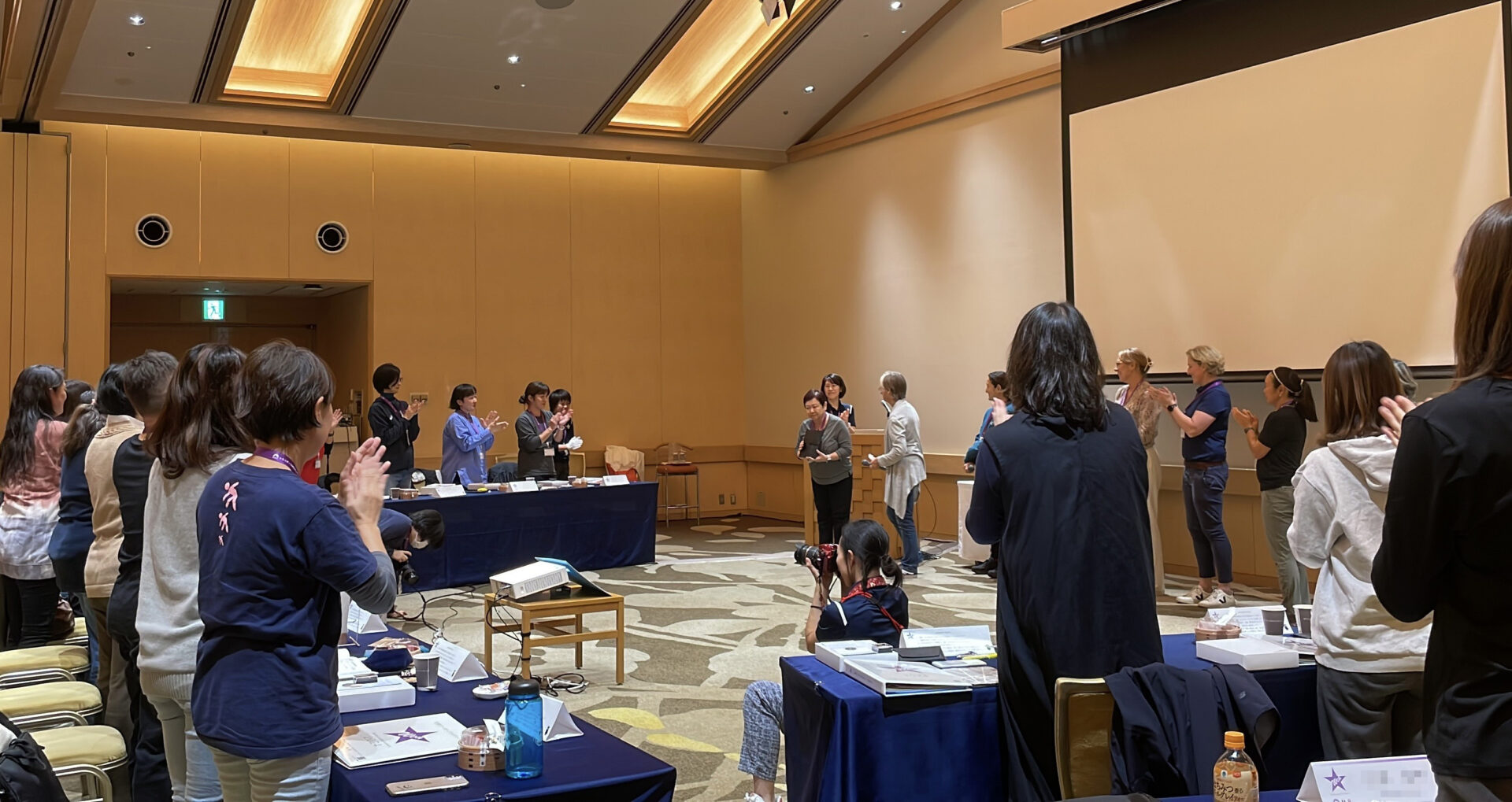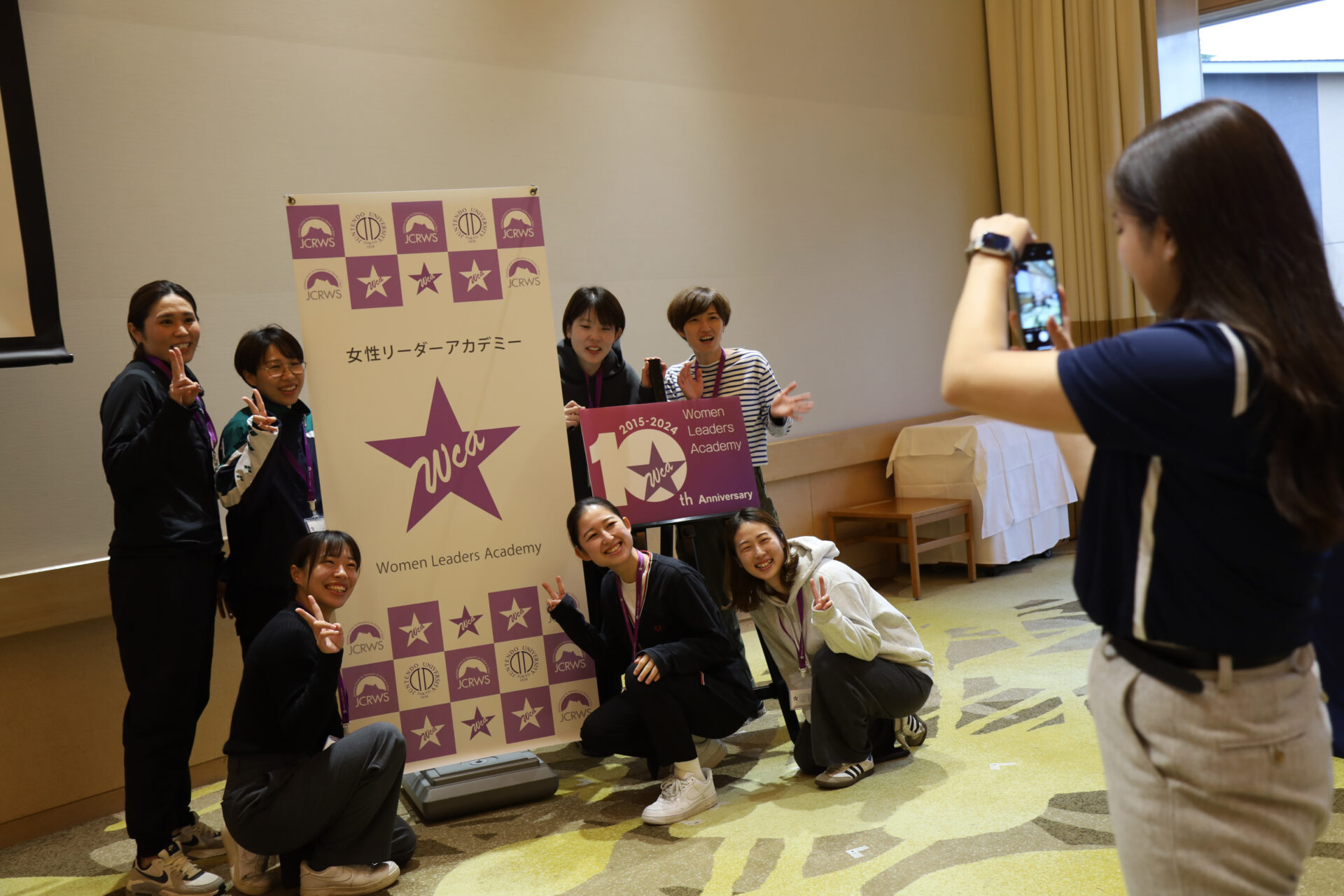
Program
Date : October 29-31, 2024
-
Day1
-
01Opening (Introduction)
-
02Women in Sport I
Dr. Etsuko Ogasawara, Executive Director, Japanese Center for Research on Women in Sport (JCRWS)
-
03Professional Coaching
Ms. Marlene Bjornsrud, Former Executive Director, Alliance of Women Coaches (WeCOACH)
-
04Motivation Strategy for Coaches
Dr. Nicole LaVoi, Co-Director, Tucker Center for Research on Girls & Women in Sport, University of Minnesota
-
05Women in Sport II
Dr. Kaori Yamaguchi, Professor, Faculty of Sports and Health Science, University of Tsukuba
-
-
Day2
-
06Conditioning for Female Athletes
Dr. Natsue Koikawa, Deputy Director, Japanese Center for Research on Women in Sport (JCRWS)
-
07Sports Nutrition
Dr. Shihoko Suzuki, Professor, Department of Nutrition, Faculty of Health and Welfare, Kanagawa University of Human Services
-
08The Significance of Diversity and Inclusion and How to Promote Them
Dr. Kanae Haneishi, Associate Professor, Western Colorado University
-
09Mental training for thinking and emotions
Dr. Miyako Tanaka-Oulevey, Certified Mental Training Advanced Consultant, Japanese Society of Sport Psychology, Project Associate Professor, Keio University
-
10CoachDISC Program
Ms. Elizabeth Masen, CEO, Athlete Assessments
Dr. Maki Itoh, Associate Professor, Sport Management Department of Sports and Health Studies, Hosei University -
11CoachDISC Case Study
Ms. Maki Moriya, President, Laurelgate Co., Ltd.
-
12Sport and Gender
Dr. Rieko Yamaguchi, Associate Professor, Faculty of Business Administration, Josai University
Ms. Miyuki Kobayashi, Executive Board, Japan Women’s Empowerment Professional Football League (WE LEAGUE)
Ms. Marlene Bjornsrud, Former Executive Director, Alliance of Women Coaches (WeCOACH)
-
-
Day3
-
13Leadership & Collaboration
Ms. Lisa O’Keefe, IWG Secretary General (2022-2026)
-
14Navigating the Future
for Women Sports LeadersPanelists:
Ms. Marlene Bjornsrud, Dr. Nicole LaVoi,
Ms. Elizabeth Masen, Ms. Lisa O'Keefe,
Dr. Kanae Haneishi, Ms. Miyuki Kobayashi
Dr. Rieko Yamaguchi, Dr. Maki Itoh,
Ms. Maki Moriya, Dr. Natsue Koikawa
Coordinator:
Dr. Etsuko Ogasawara -
15Networking
Ms. Miyuki Kobayashi, Executive Board, Japan Women’s Empowerment Professional Football League (WE LEAGUE)
-
16Closing Ceremony
-
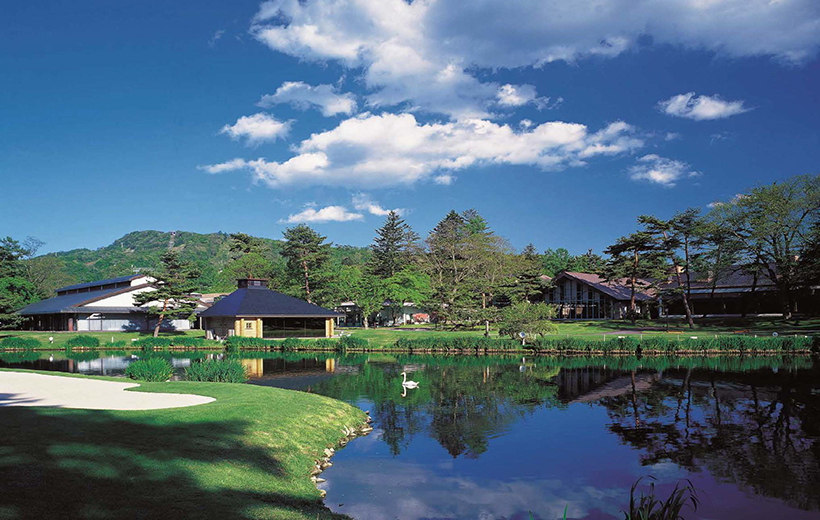
Venue: Karuizawa Prince HotelAddress: Karuizawa, Karuizawa-machi, Kitasaku-gun, Nagano, 389-0193 Japan
OrganizerJapanese Center for Research on Women in Sport (JCRWS)
Co-OrganizerJapanese Association for Women in Sport (JWS) , WeCOACH
Supporting CompanyTIDE DESIGN CO.,LTD.
Network Inc.
MOPED Inc.
SPORTSWAVE KYUSHU
Nissui Corporation
Kao Corporation
Unicharm Corporation
01Opening (Introduction)
FacilitatorsDr. Etsuko Ogasawara, Executive Director, JCRWS
Dr. Natsue Koikawa, Deputy Director, JCRWS
Ms. Akiko Sekiguchi, staff, JCRWS
“Women Leaders Academy 2024” Started
in the deepening autumn of Karuizawa!
The 10th Academy, a milestone event, was held for the first time at the end of October. In Karuizawa, where the leaves were beginning to change color, 30 participants from across the country, along with WCA alumni and lecturers, gathered together.
The event kicked off with the customary icebreaker session, helping participants loosen up both mentally and physically. During the self-introductions that followed, everyone listened attentively to their fellow participants, with whom they would spend the next three days. Gradually, the tension eased as humorous self-introductions lightened the mood, setting the stage for the first lecture.
02Women in Sport I
LecturerDr. Etsuko Ogasawara, Executive Director,
Japanese Center for Research on Women inSport (JCRWS)
The gender ratio of athletes has become balanced.
But how about coaches?
To begin, Executive Director Ogasawara discussed the development and challenges of women's sport, addressing global trends and initiatives in Japan.
At the Paris Olympic Games, the gender ratio of Japanese athletes was nearly equal. However, the IOC is currently focusing on the issue of female coaches, who account for only 13%. Dr. Ogasawara emphasized that developing female coaches is an urgent task in Japan, stating, “It’s not just about increasing the number of coaches, but also about fostering high-quality coaches, which is why the WCA has been running for 10 years”.
Furthermore, as part of the global movement in women's sports, she highlighted the work of the International Working Group on Women & Sport (IWG), the World Conference on Women and Sport, and the significance of the Brighton Declaration. She also stressed that providing strategic support for female athletes requires long-term commitment and emphasized the necessity of transforming organizational culture and creating new environments that enable women to fully participate in sports.
03Professional Coaching
LecturerMs. Marlene Bjornsrud, Former Executive Director,
Alliance of Women Coaches (WeCOACH)
InterpreterDr. Maki Itoh, Associate Professor,
Sport Management Department of Sports and Health
Studies, Hosei University
The Importance of Team Culture:
Respecting Each Other and Recognizing One’s Own Value
Ms. Marlene began by sharing her personal experiences in the sports industry and encouraged participants to reflect on the women who had significantly influenced their lives.
She then outlined key elements in building a strong team culture, emphasizing its importance with examples from U.S. women’s soccer coaches. Additionally, she highlighted the importance of self-care, recommending that participants take time each morning for self-reflection. She illustrated this point with a story about a 4-year-old girl, using it to provide insights on overcoming fear and uncertainty.
Finally, she underscored the significance of mutual respect and recognizing one’s own value. She inspired the participants with the message:
"You all have incredible value, like gold, and you are role models for those who will follow in your footsteps. Never forget that you have the power to change the world."
This powerful message left a lasting impact on the participants, motivating them for the journey ahead.
04Motivation strategy for coaches
LecturerDr. Nicole LaVoi, Co-Director, Tucker Center for
Research on Girls & Women in Sport,
University of Minnesota
Coaches Play a Vital Role
in Athletes’ Lives
Dr. Nicole LaVoi delivered a lecture on the challenges of being both a woman and a coach in the sports industry.
She discussed the systemic barriers and environments that female coaches face, particularly the double standards that many of the participants are currently experiencing. Throughout her lecture, she generously shared research-based data and theories, explaining their significance and practical applications. She urged participants to take an active role in transforming a sports system that fails to support and value women, emphasizing the need for bottom-up change.
Additionally, Dr. LaVoi addressed the issue of burnout, a challenge many coaches encounter, and introduced strategies to overcome it. As she provided concrete solutions, participants seemed to gain clarity and relief from their concerns.
Finally, she left them with a powerful message:
"Never forget that you are essential to your athletes."
05Women in Sport II
LecturerDr. Kaori Yamaguchi, Professor,
Faculty of Sports and Health Science,
University of Tsukuba
Women in the Future of Sport:
The Importance of Speaking Up and Taking Action
Dr. Yamaguchi began by highlighting Japan’s low ranking in the Global Gender Gap Index—118th out of 140 countries. While women score relatively high in health and education, their representation in politics and economics remains significantly low, with a noticeable lack of female leaders. She explained that society and sports are a reflection of each other, emphasizing the necessity of increasing women’s participation as coaches, referees, and executives in the sports world. She also discussed the history and current status of women in judo, noting a recent breakthrough: for the first time, a woman was appointed as head coach of a women’s team. Calling it “a significant step forward”, she expressed her optimism for continued progress.
Encouraging the participants, she stated:
"It is essential for us, as women, to take part in shaping the future of sport, to voice our ideas, and to take action,”
Dr. Yamaguchi emphasized the importance of gaining support from understanding men and building strong, mutually supportive networks. She urged participants to cherish the connections made at WCA and to pass them on to future generations, ensuring that the progress made today continues to inspire those who follow.
06Conditioning for Female Athletes
LecturerDr. Natsue Koikawa, Deputy Director,
Japanese Center for Research on Women in Sport (JCRWS)
Recognize Athletes’ Signals
– Leverage Your Network to Respond
In 2014, while participating in the NCAA’s WCA in the United States, Dr. Koikawa observed a stark difference in athlete care: “In the U.S., the specialized staff handle the mental and physical care of athletes, whereas in Japan, coaches themselves must acquire medical and nutritional knowledge”. With this insight, she generously imparted the essential information needed to help Japanese athletes maintain their health and perform at their peak. In addition, she shared the latest updates on health challenges that female athletes are particularly vulnerable to.
Drawing on her practical experience, Dr. Koikawa provided concrete examples and practical tips for recognizing athletes’ warning signals and responding effectively. She explained how these insights can be directly applied to enhance athlete conditioning. Concluding her lecture, she urged the participants to “Make full use of the knowledge gained in this session and the networks established at WCA”.
07Sports Nutrition
LecturerDr. Shihoko Suzuki, Professor,
Department of Nutrition, Faculty of Health and Welfare,
Kanagawa University of Human Services
In an Era of Drastically Changing Attitudes Toward Food
The Importance of Sports Nutrition
Dr. Suzuki—who provided nutritional support to athletes during Paris 2024—delivered a practical, in-depth overview of the role of certified sports nutritionists and the specific nutritional strategies that can enhance athletic performance. Emphasizing that an athlete’s career can be profoundly influenced by effective nutrition, she stressed the need for evidence-based, specialized nutritional management that is also tailored to each individual’s condition. She illustrated her points with several concrete examples.
In addition to addressing nutritional management for top athletes—including Olympians and Paralympians—Dr. Suzuki shared the latest evidence-based insights on topics such as energy intake for junior athletes, as well as the use of supplements and recovery snacks. In today’s rapidly evolving food environment—shaped by shifts in lifestyle and the widespread availability of convenience store fare—this session provided a valuable opportunity to reexamine the critical importance of sports nutrition.
08The Significance of Diversity
and Inclusion and How to Promote Them
LecturerDr. Kanae Haneishi, Associate Professor,
Western Colorado University
The Sports World as a Microcosm of Society
– The Necessity of Self-Awareness and Understanding Others
Dr. Haneishi, who has served as a WCA instructor since last year, began her lecture by sharing her background—detailing her current work in coach development at her university as well as her completion of the NCAA’s WCA program in 2006. She recounted an enlightening experience with the Japanese Association for Women in Sport (JWS), explaining that her exposure to global perspectives made her realize, “There are so many brilliant female leaders shining on the world stage”.
She emphasized that the sports arena mirrors society, pointing out prevalent issues of discrimination and exclusion within the field. According to Dr. Haneishi, addressing these challenges requires strong female leadership, and she underscored the vital role of leadership in driving positive change.
In addition, she discussed the importance of self-awareness and understanding others, urging participants to first reflect on their own identities and the groups to which they belong. Dr. Haneishi also introduced the concept of Universal Design for Learning, highlighting the need to tailor interactions and feedback to each individual rather than applying a one-size-fits-all approach.
09Mental training for
thinking and emotions
LecturerDr. Miyako Tanaka-Oulevey, Certified Mental Training Advanced Consultant, Japanese Society of Sport Psychology, Project Associate Professor, Keio University
All Emotions Matter: Understanding Stress,
Coping Strategies, and Deepening Self-Awareness
In her lecture, Dr. Miyako Tanaka-Oulevey provided an in-depth exploration of mental training, focusing on the importance of stress coping, sharing personal experiences, and offering practical techniques. She clearly defined “stress coping”, drawing from her own experiences as both an athlete and a coach, and discussed how methods for managing stress have evolved over time. Additionally, she addressed the development of self-assurance, explaining that self-assurance is not simply about proclaiming “I am great”, but rather about having the courage to assess one’s current situation and decide on the best course of action even in challenging times. She noted that this resilient form of self-assurance is particularly attainable in sports following moments of defeat.
Dr. Tanaka-Oulevey also emphasized that coaches should share their personal experiences and insights with athletes, thereby more effectively conveying “the true, invisible value of sport”. During the Q&A session, she provided valuable advice on how to communicate with athletes and stressed the importance of establishing mutual values. Her guidance, rooted in her own achievements as a top-class athlete, proved to be invaluable for the participants.
10CoachDISC Program
LecturerElizabeth Masen, CEO, Athlete Assessments
Dr. Maki Itoh, Associate Professor,
Sport Management Department of Sports and Health
Studies, Hosei University
Not the Personalities, but Focus on Action!
Understanding the Evaluation Tool “CoachDISC”
Ms. Elizabeth Masen, CEO of Athlete Assessments—a company supporting a wide range of clients—opened her lecture by emphasizing, “Every action has meaning, and understanding these behaviors is crucial.” In her presentation, she offered an in-depth explanation of “CoachDISC”, an assessment tool developed by Athlete Assessments that focuses on observable actions rather than inherent personality traits. CoachDISC categorizes individuals into four types based on their action styles. Ms. Masen clearly outlined the characteristics of each type and explained how these different styles interact to foster mutual understanding.
In the latter part of the session, the discussion shifted to the practical applications of CoachDISC in team management and leadership. She proposed that leaders can leverage this knowledge to harness the diversity of team members by tailoring coaching and feedback to each individual’s specific type. This approach, she argued, is essential for effective leadership and building cohesive teams.
11CoachDISC Case Study
LecturerMs. Maki Moriya, President, Laurelgate Co., Ltd.
Reflection Is Important for Coaches Too
– Keep Brushing Up
After deepening their understanding of CoachDISC, participants moved on to Ms. Moriya’s session, which focused on applying these insights practically. She began by emphasizing the importance of providing feedback to athletes, outlining effective methods for doing so. “Feedback isn’t mere criticism; it’s a tool to foster growth”, she explained, noting that aligning feedback with the recipient’s values makes it even more effective.
In the latter part of the session, participants were divided into groups to work through various case studies, practicing how to tailor feedback to individuals with different action styles. In a dynamic role-play exercise, group representatives took on the role of coaches while Ms. Moriya acted as the athlete, allowing everyone to observe and discuss the best approaches. Additional input from other groups further enriched the learning experience, offering a range of perspectives on how to apply CoachDISC in real-world settings.
Ms. Moriya concluded the session with a powerful message: “Coaches must also engage in self-reflection. By reviewing and applying your experiences, you not only enhance your coaching skills but also broaden your personal horizons. Keep brushing up on yourselves.”
12Sport and Gender
LecturerDr. Rieko Yamaguchi,
Associate Professor, Faculty of Business Administration, Josai University
Ms. Miyuki Kobayashi,
Executive Board, Japan Women’s Empowerment Professional Football League (WE LEAGUE)
Ms. Marlene Bjornsrud,
Former Executive Director, Alliance of Women Coaches (WeCOACH)
Evolving Concepts of Gender Equality
– Embracing Diversity and Fostering Mutual Understanding
In the final lecture of Day 2, titled “Sport and Gender”, the speakers examined how, despite the frequent use of the term “gender equality” in many contexts, deep-rooted structural issues continue to persist. They pointed out that these challenges are also present in the sports world, where differences in media representation and working conditions between men and women remain significant. The lecturers stressed the importance of ongoing efforts to promote gender equality in all aspects of sport.
Toward the end of the session, a workshop on LGBTQ+ issues was conducted, providing participants with an opportunity to better understand the challenges faced by sexual minorities as well as society’s responses to them. While the visibility of LGBTQ+ individuals is increasing, the workshop highlighted that each person’s situation is unique and that issues of gender and sexuality ultimately affect everyone. The session concluded with a powerful reminder of the need for collective understanding and the embracing of diversity in sport.
13Leadership & Collaboration
LecturerMs. Lisa O’Keefe, IWG Secretary General (2022-2026)
Interpreter Dr. Kanae Haneishi, Associate Professor,
Western Colorado University
Leadership Is About Inspiring Others to Overcome Barriers
– Be a Force for Change in Japan!
Ms. Lisa O’Keefe—whose impressive career includes playing for the Scotland national rugby team—began her lecture by stating, “I have experienced many successes and failures, and I will share my real-life experiences with you”. She recounted her time with Sport England and explained the “This Girl Can” campaign, which was launched to promote women’s participation in physical activity. In England, where men generally exercised more than women, there was a clear need to address this gender gap. The campaign focused on removing the psychological barriers that often prevent women from engaging in sports and exercise, and it quickly gained international attention in over 110 countries.
Ms. O’Keefe then discussed the essence of leadership—having a clear vision and the willingness to share it. She emphasized that achieving any goal requires a team effort and that collaboration with diverse stakeholders is essential to elevate the role and value of women in sport. In closing, she urged the audience: “Leadership is about inspiring people to believe that, even when obstacles arise, they can overcome them. Everyone here has that capability. Don’t wait for someone to tell you what to do—you have the power to change things. Be the force that transforms Japan!”
14Navigating the Future
for Women Sports Leaders
PanelistsMs. Marlene Bjornsrud, Dr. Nicole LaVoi,
Ms. Elizabeth Masen, Ms. Lisa O'Keefe,
Dr. Kanae Haneishi, Ms. Miyuki Kobayashi
Dr. Rieko Yamaguchi, Dr. Maki Itoh,
Ms. Maki Moriya, Dr. Natsue Koikawa
Coordinator:Dr. Etsuko Ogasawara
All the Lecturers Gather!
Sharing the “Actions” They Have Taken
At the outset of this final session, Dr. Ogasawara, serving as the session’s coordinator, shared an inspiring story about her first encounter with Ms. Lisa O’Keefe. After attending a previous lecture, she met Ms. O’Keefe—who had spoken at the 2016 conference—and, on that very day, offered her the opportunity to become a WCA lecturer. “From that moment, we became a team”, Dr. Ogasawara recalled, reflecting on their ongoing collaboration and shared accomplishments. She also highlighted Ms. O’Keefe’s international work as the Secretary General of IWG and provided an overview of the upcoming "IWG Global Summit" (formerly known as the "World Conference on Women and Sport"), scheduled for 2026. In the first part of the session, the lecturers shared the various actions they have taken throughout their careers. Dr. Ogasawara joyfully announced that three WCA alumni had recently been appointed as coaches or head coaches of the Japanese national team, commending these women for their visionary efforts and proactive spirit.
Following this, a Q&A segment allowed participants to engage directly with the lecturers. Questions ranged from the importance of data and career choices to leadership styles and beyond, with the panel offering practical, specific advice on each topic.
In the final segment, each participant had the opportunity to share their key learnings and reflections from the three-day event. Many expressed a firm commitment to applying what they had learned within their own careers and organizations. The session proved to be an exceptionally stimulating and valuable learning experience for all involved.
15Networking
LecturerMs. Miyuki Kobayashi, Executive Board,
Japan Women’s Empowerment Professional
Football League (WE LEAGUE)
Yell from Seniors
– Putting Your Goals into Words and Moving Forward
The final session, “Networking”, provided participants with an opportunity to reflect on the three days of learning at the Academy and to reconsider their future goals and mission, sharing these insights with their peers. Before opening the session for discussion, Ms. Kobayashi explained the significance and philosophy behind the establishment of the WE League (Japan Women’s Professional Soccer League), an organization in which she is actively involved. She highlighted that the WE League’s initiatives—promoting the advancement of women and creating equal opportunities in the sports world—have garnered recognition from other sports organizations both in Japan and overseas, while also addressing several ongoing challenges.
During this session, a video message was presented from Ms. Maki Tsukada, a first-generation WCA graduate who, in this 10th anniversary year of WCA, has become Japan’s first women’s judo coach. Ms. Tsukada, who was also the inaugural recipient of the WCA Best Leader Award, shared that her three days at the WCA gave her a clear vision of the kind of leader she aspires to be. She encouraged the 10th cohort of participants by saying, “I believe this program will inspire you to take on various challenges—keep striving and do your best!”
In response, Ms. Kobayashi stressed to the participants the importance of articulating their goals. “The first step is to put your goals into words”, she explained, emphasizing that clearly defining one’s ambitions is essential for moving forward. The fact that past WCA alumni have declared their goals here—and then taken action to become influential female leaders—served as a powerful source of inspiration for all in attendance.
16Closing Ceremony
“Take that first step toward a world of possibilities!”
The closing ceremony began with the announcement of the “Best Leader Award”, chosen by the peers who spent the past three days together. Ms. Nahoko Fujioka was named the recipient. Presenter Ms. Kobayashi awarded Ms. Fujioka a commemorative shield, saying, “I was truly impressed by the way you reached out and engaged with everyone over these three days”. In response, Ms. Fujioka expressed her gratitude and strong resolve: “Thanks to all of you who have encouraged me, I will not only continue to study hard but also make sure to put what I’ve learned into practice”.
Next, each lecturer delivered an encouraging message to the participants. They spoke about the essence of leadership and the continuous need for personal growth, sharing their hopes for the participants’ future success. Following these inspiring words, Ms. Marlene presented a message book to Center Director Ogasawara as a token of gratitude for sustaining the Academy through its 10th session. “These are heartfelt messages from everyone here”, she explained. This prompted the 10th session graduates—whose messages filled the book—to stand up one by one, leading to a moving standing ovation.
Finally, Center Director Ogasawara expressed her heartfelt thanks to the 10th cohort for joining the Academy’s anniversary celebration. She recounted a success story of a former graduate and urged the participants with these powerful words: “Take that first step in a direction full of valuable possibilities. But remember, don’t try to go it alone—if you share your vision and work hard, collaborators will appear. Find the courage to take that first step”. With the addition of 30 unique “WCA 10th graduates”, the total number of WCA alumni now stands at 305 across all 10 sessions.


